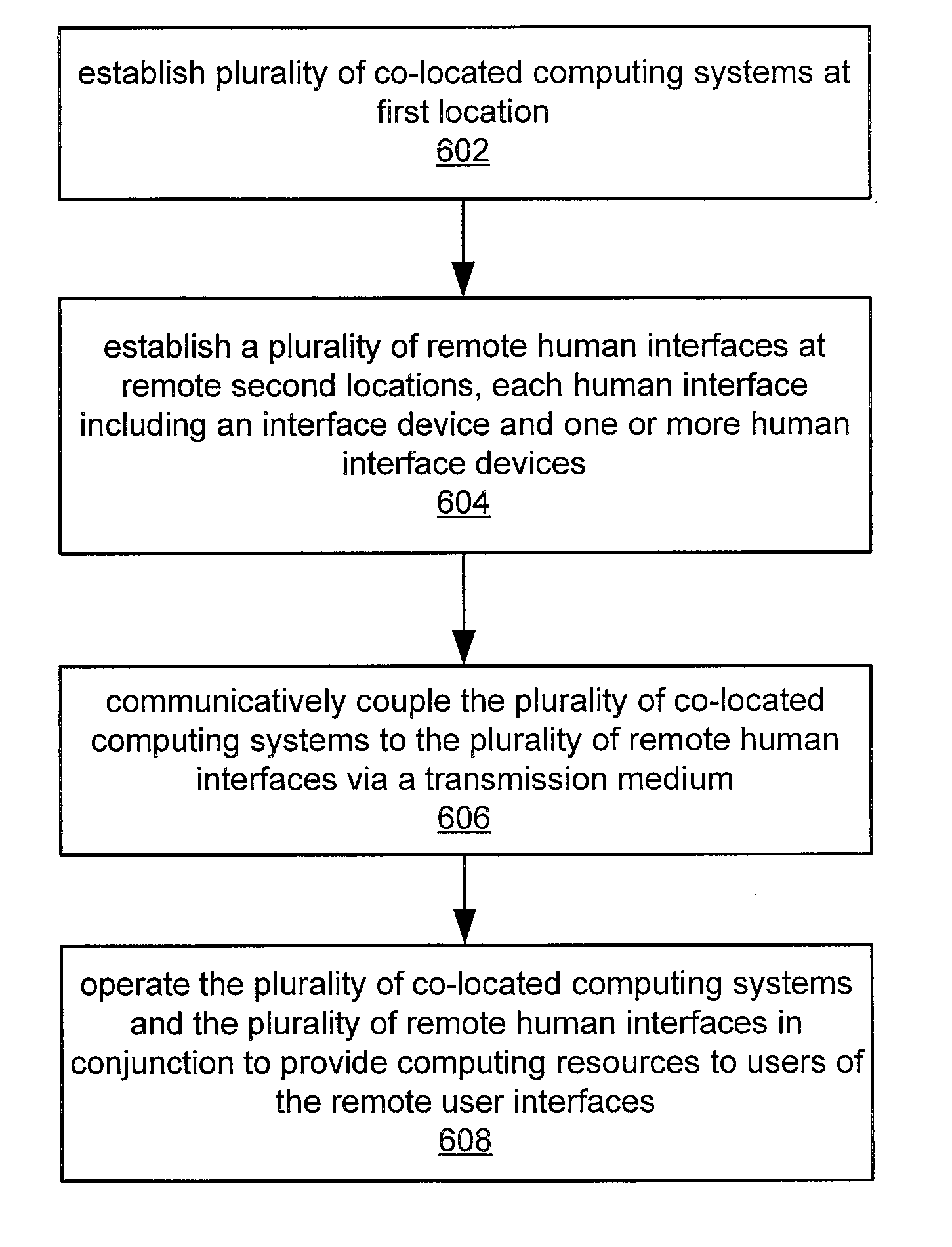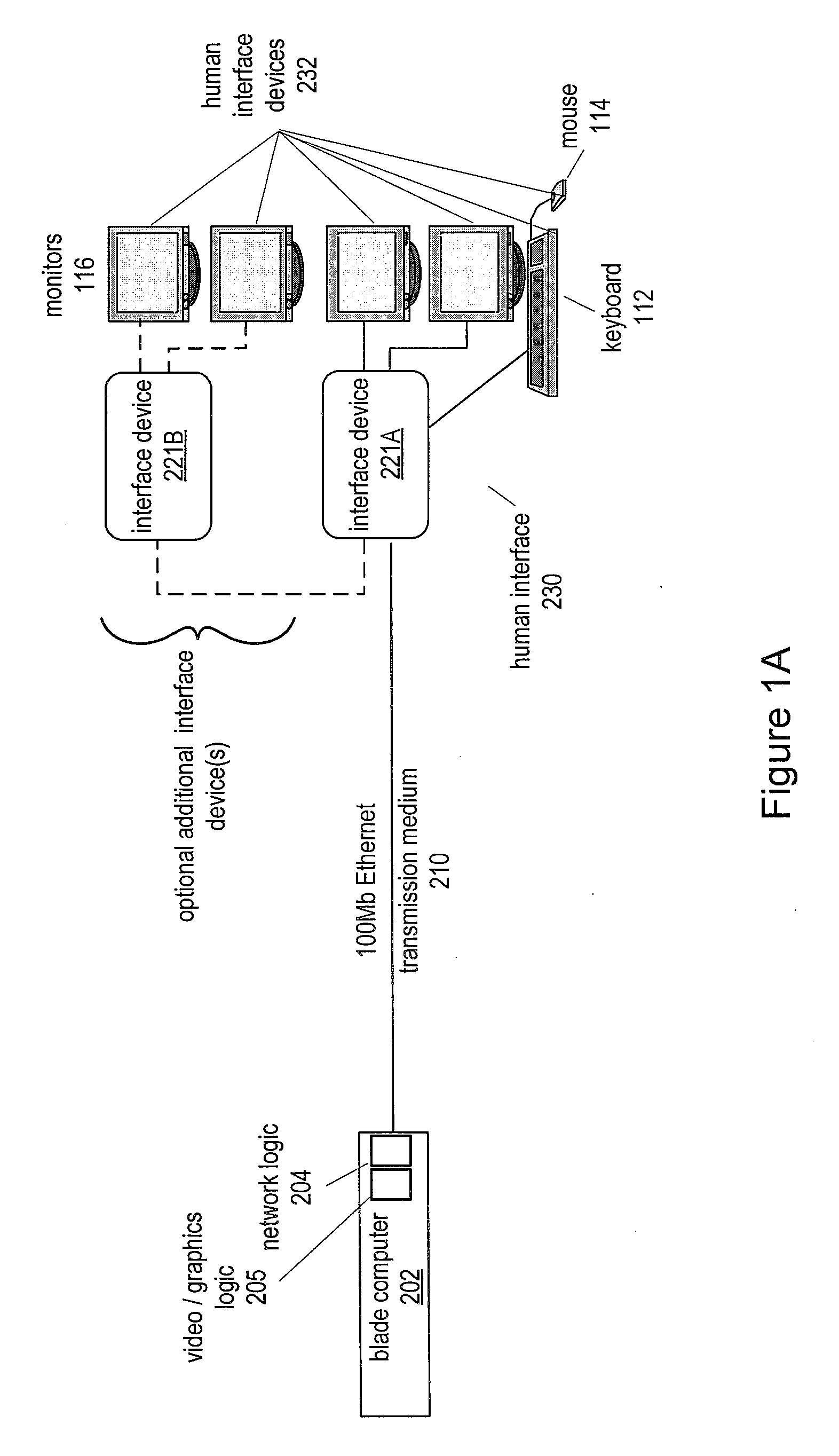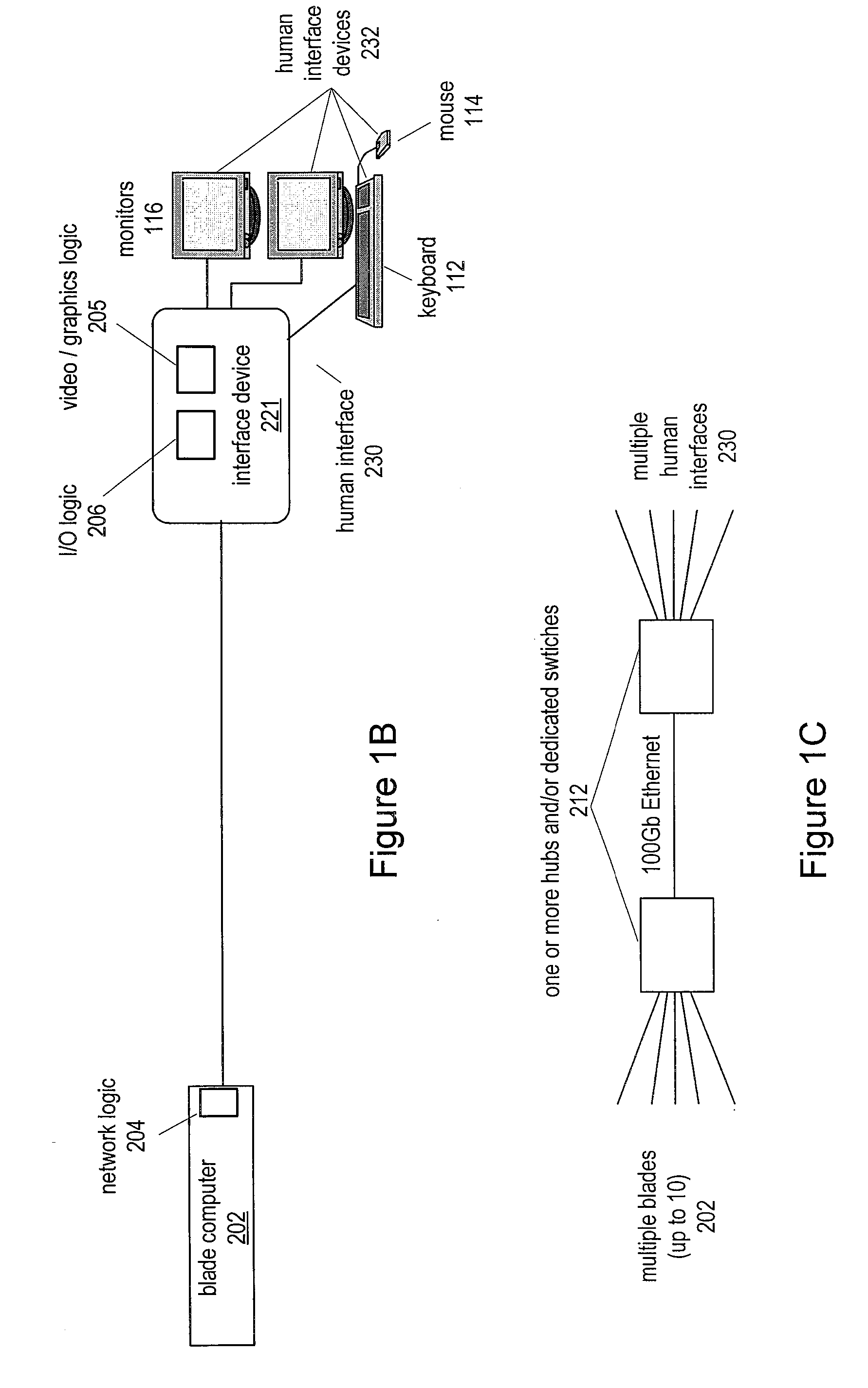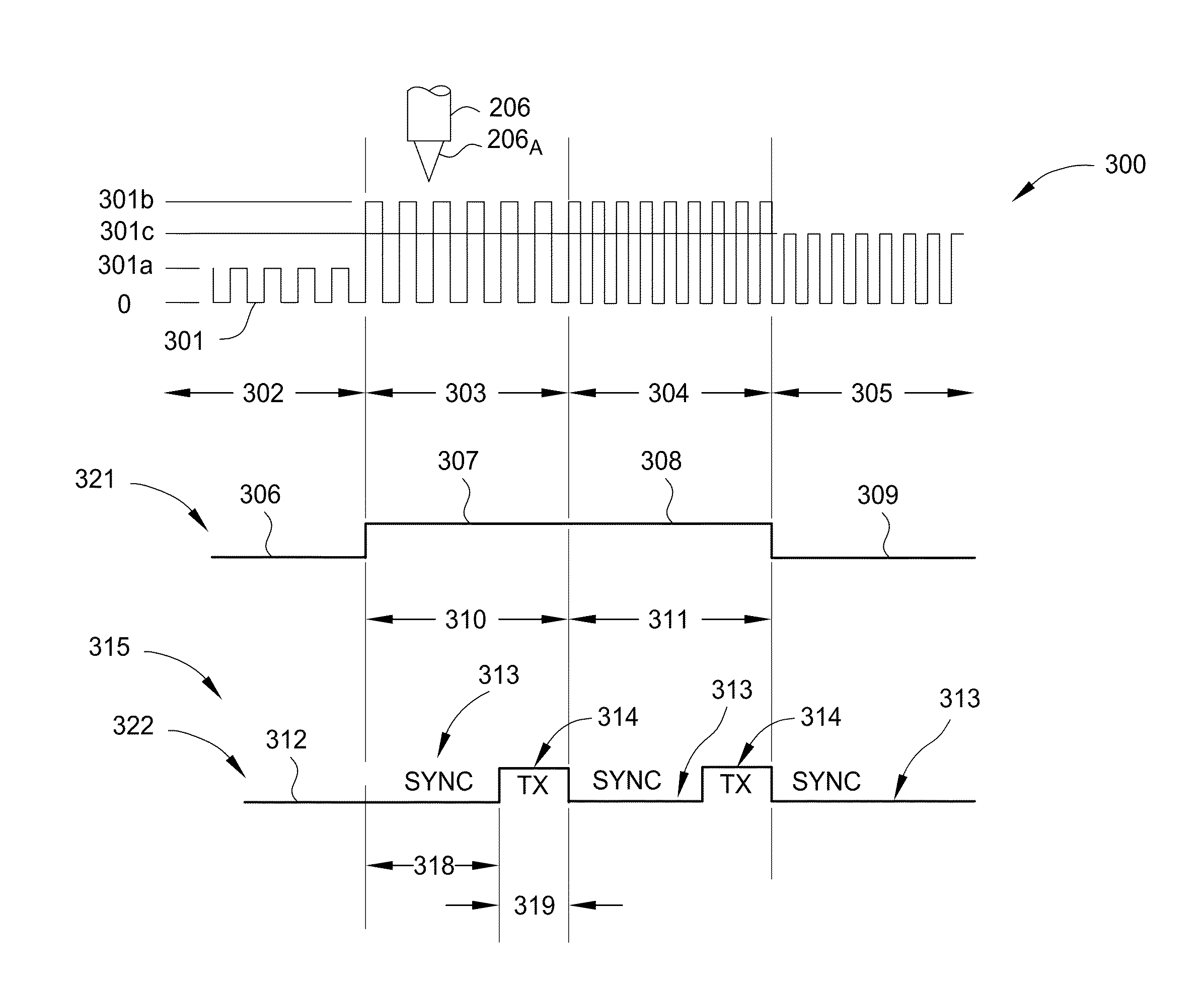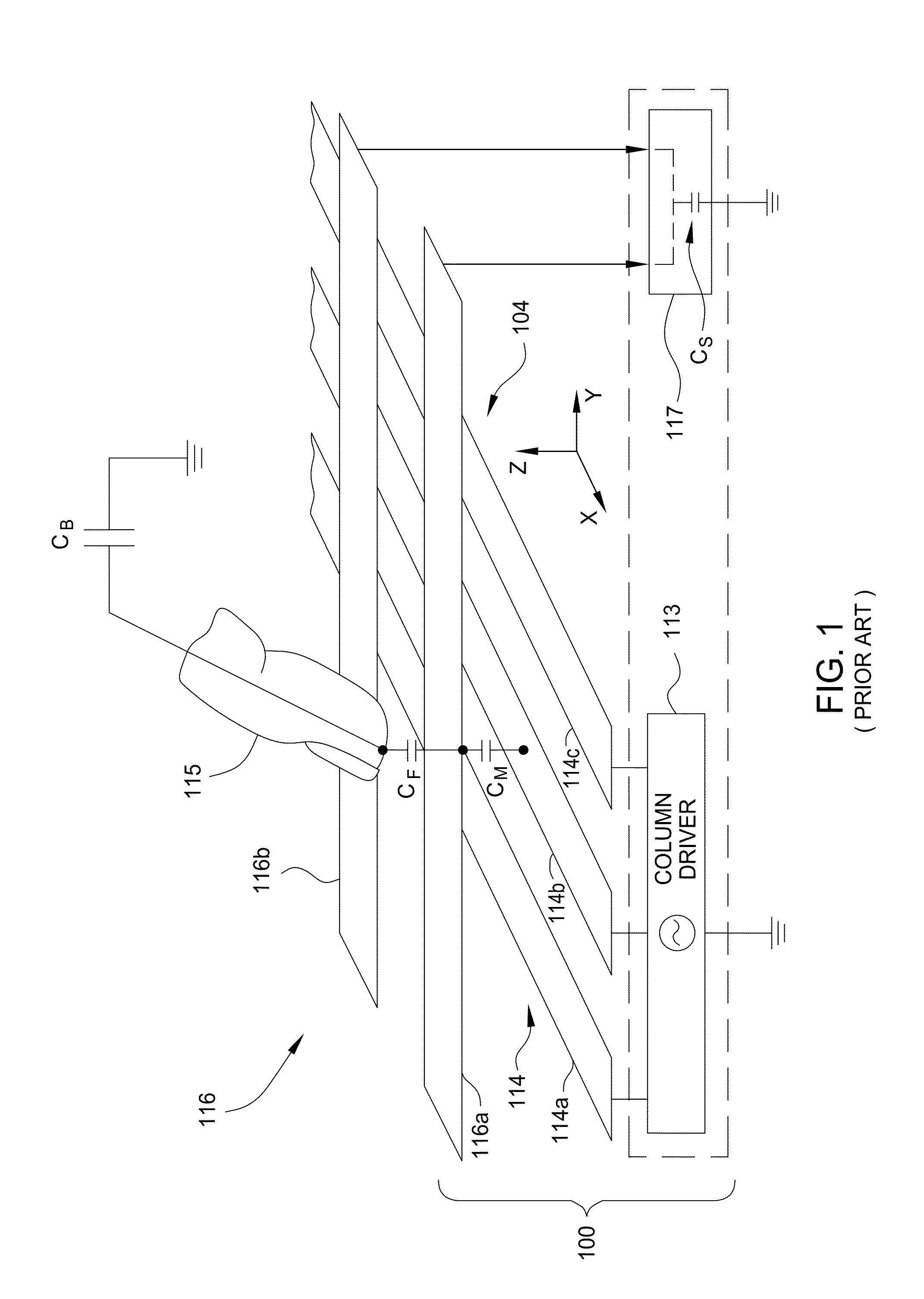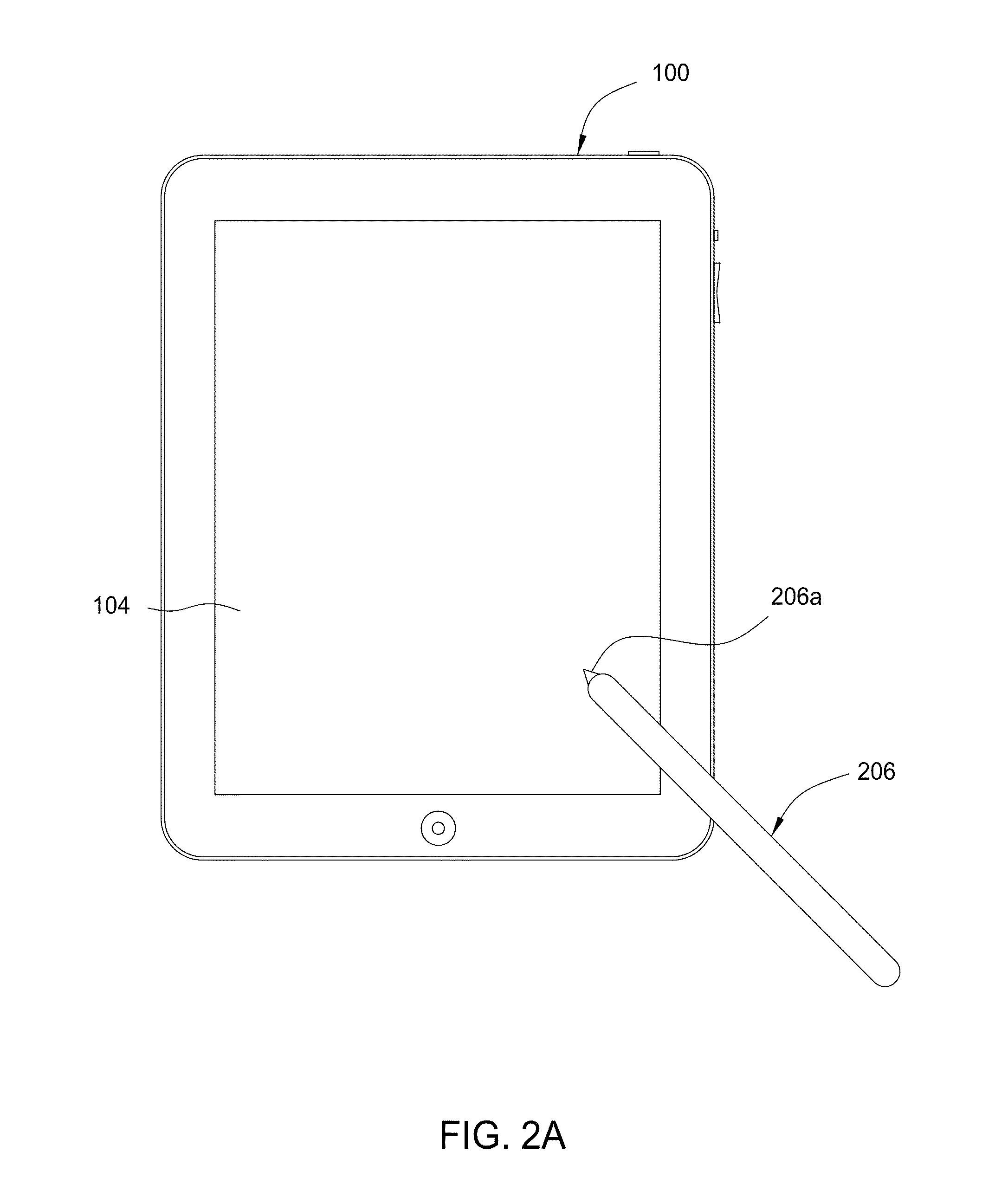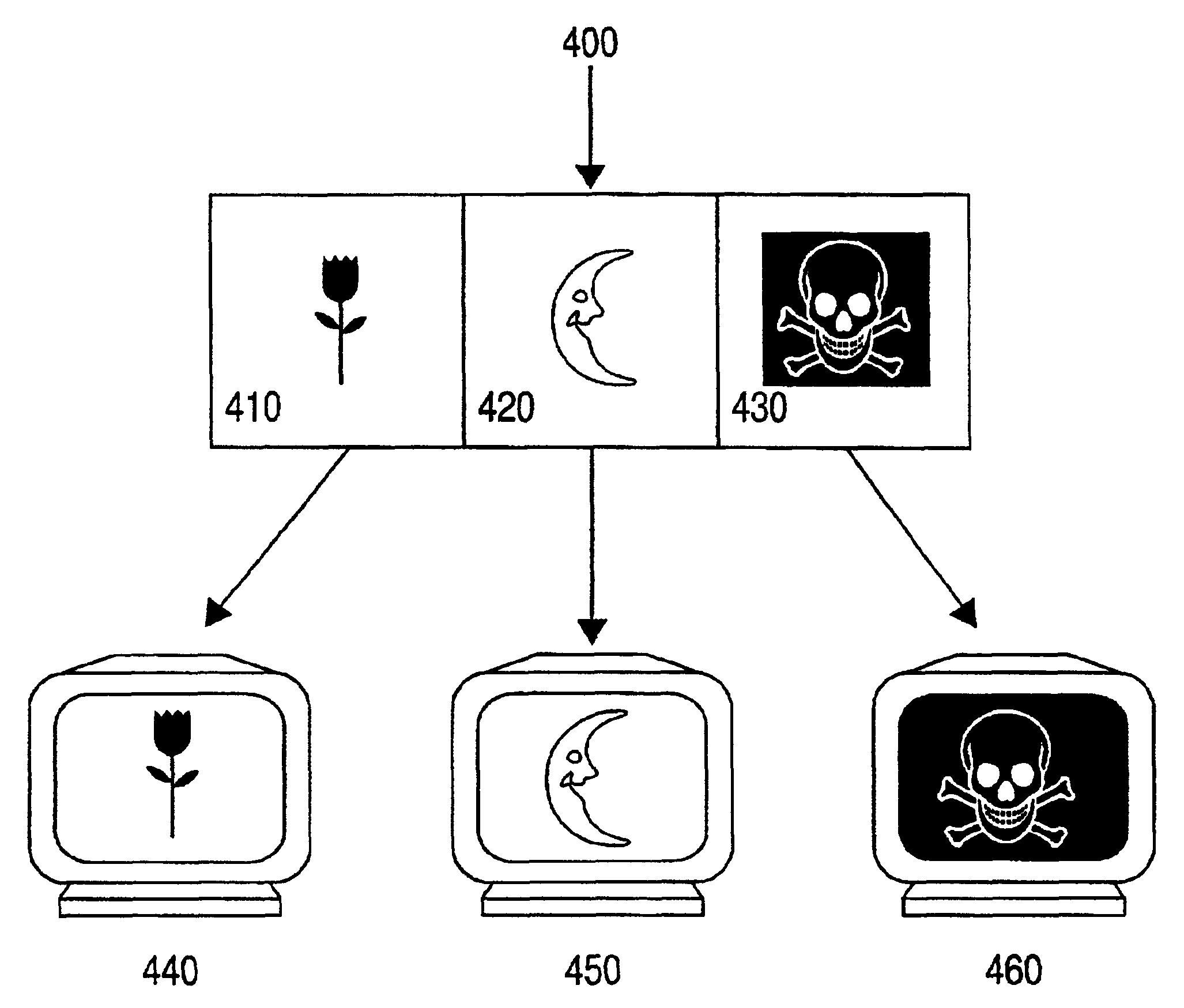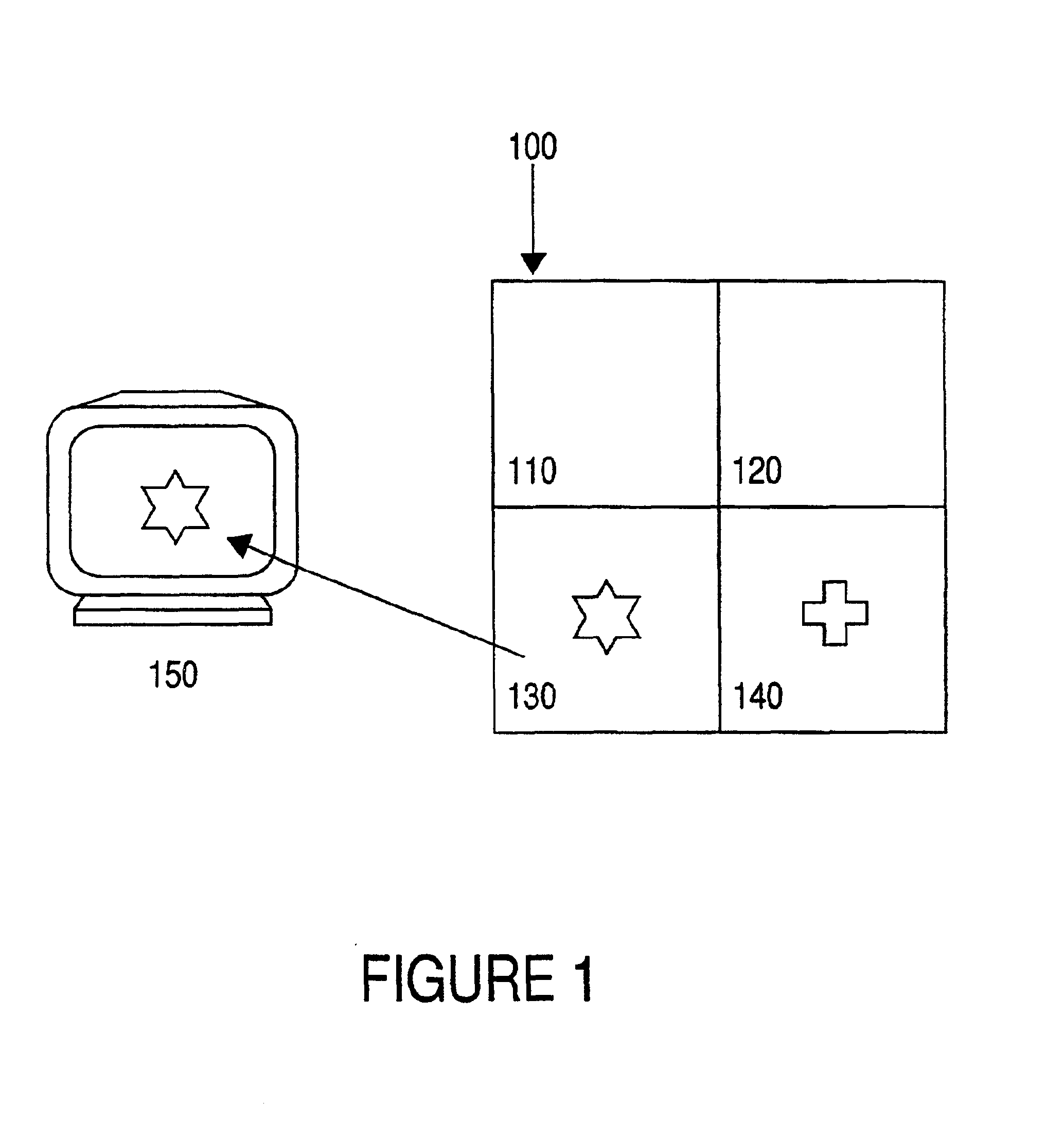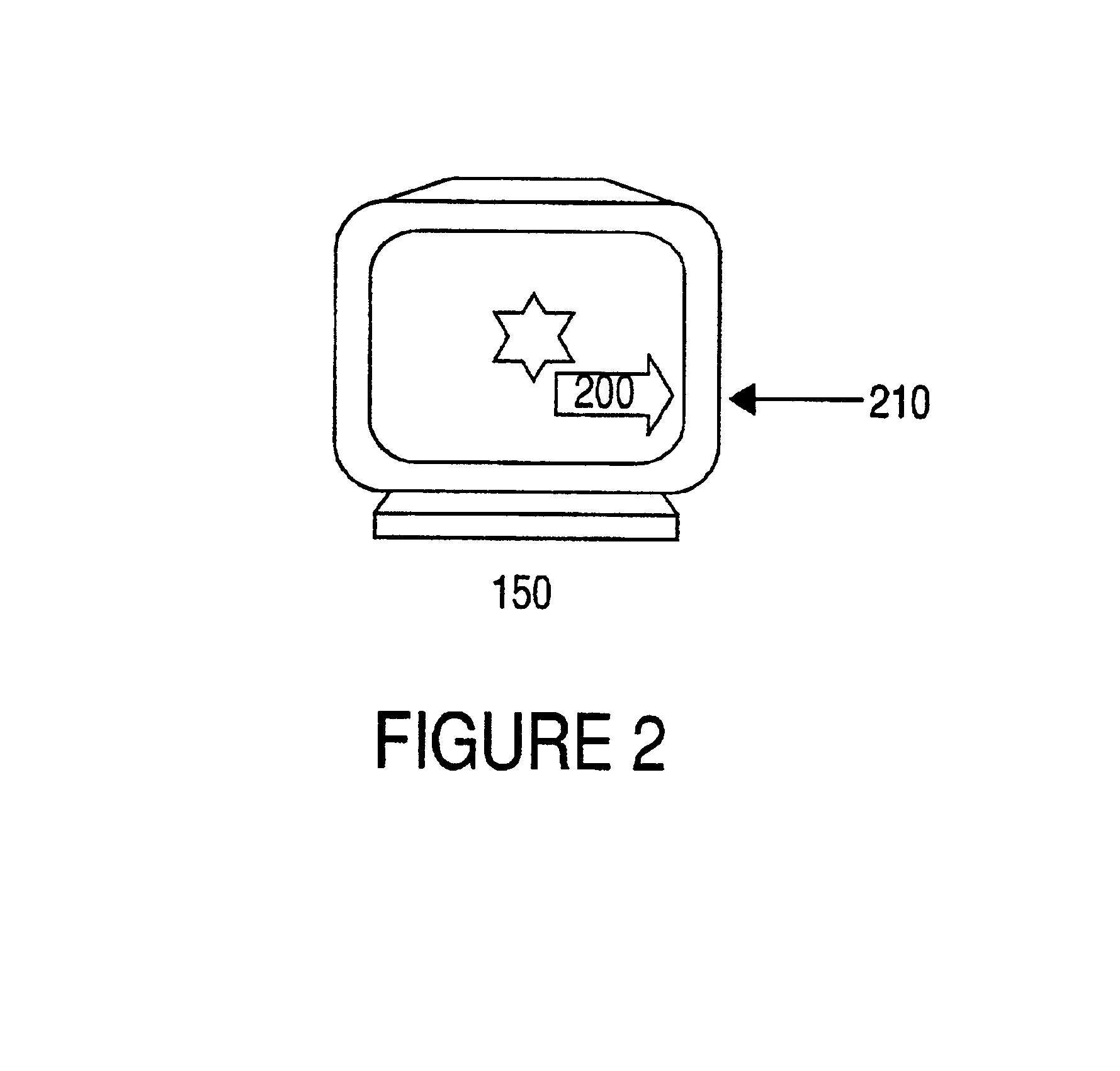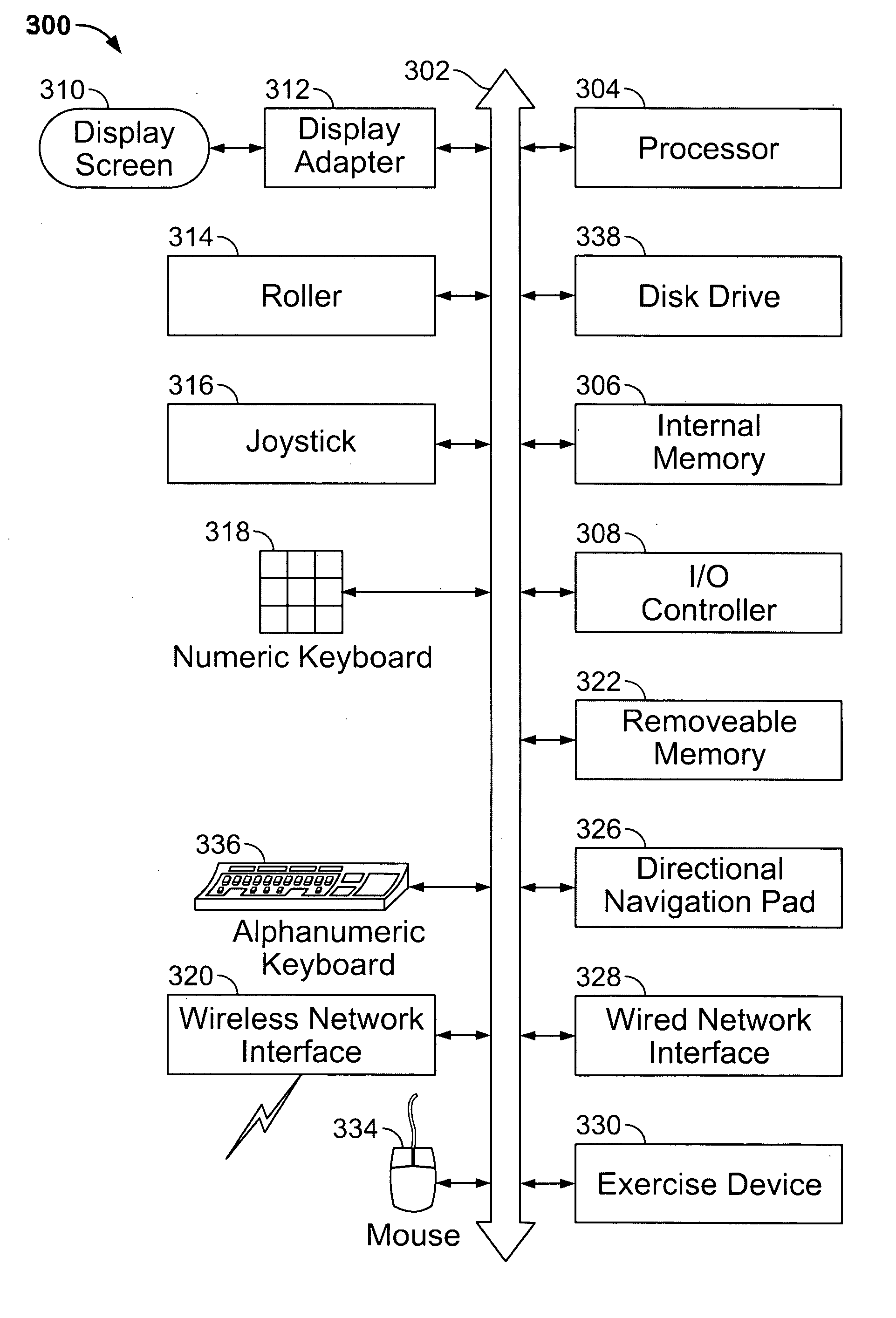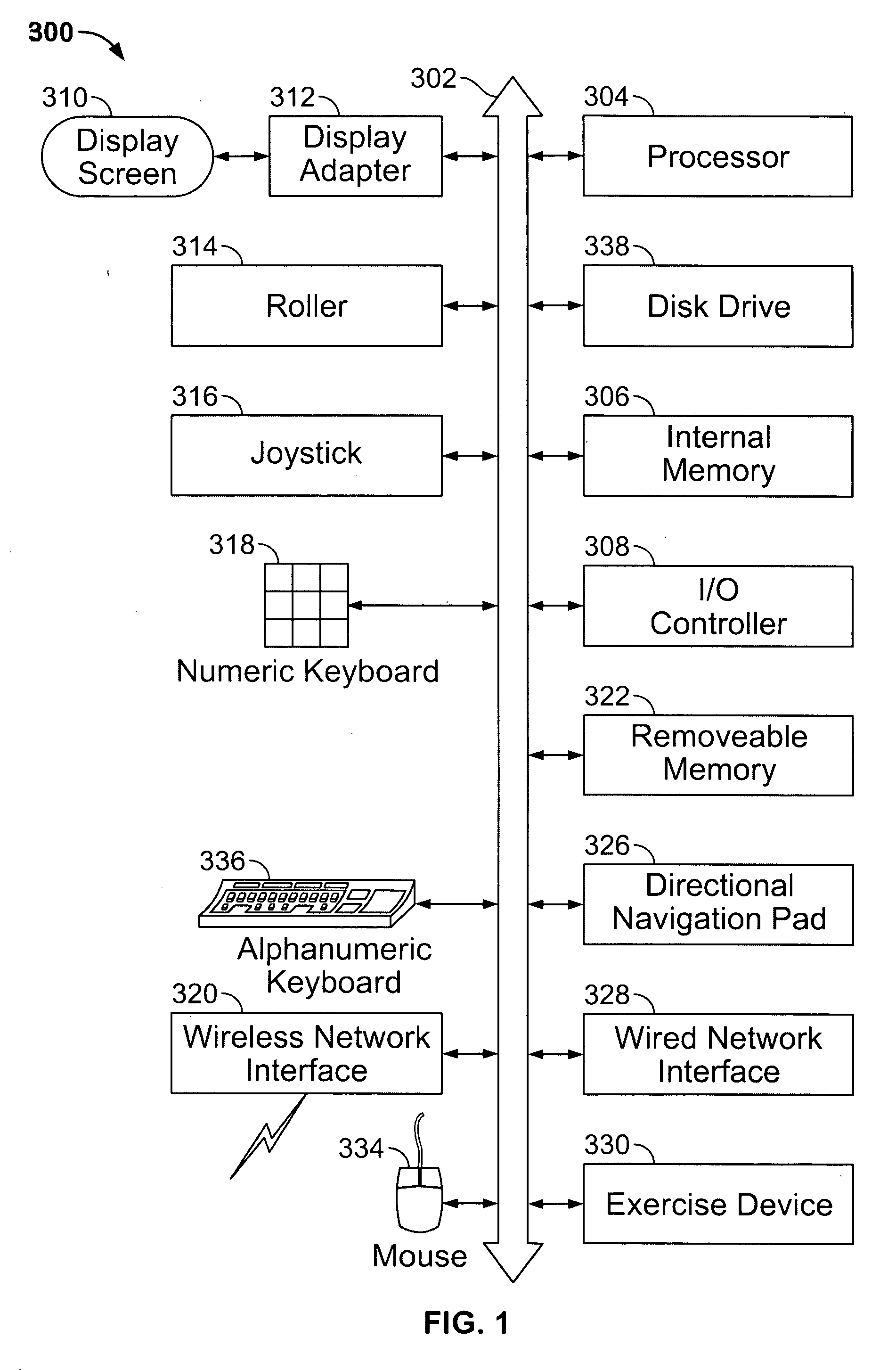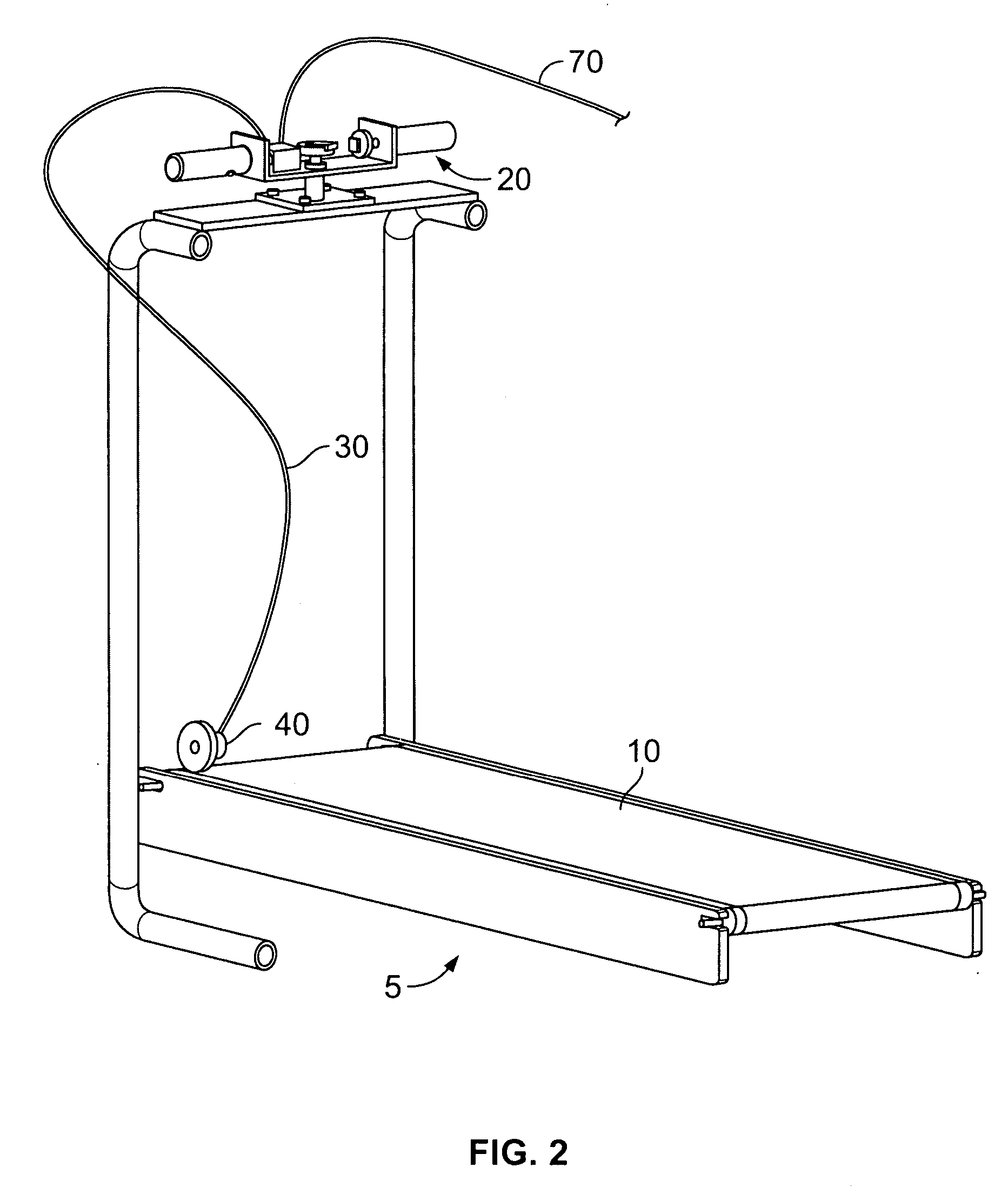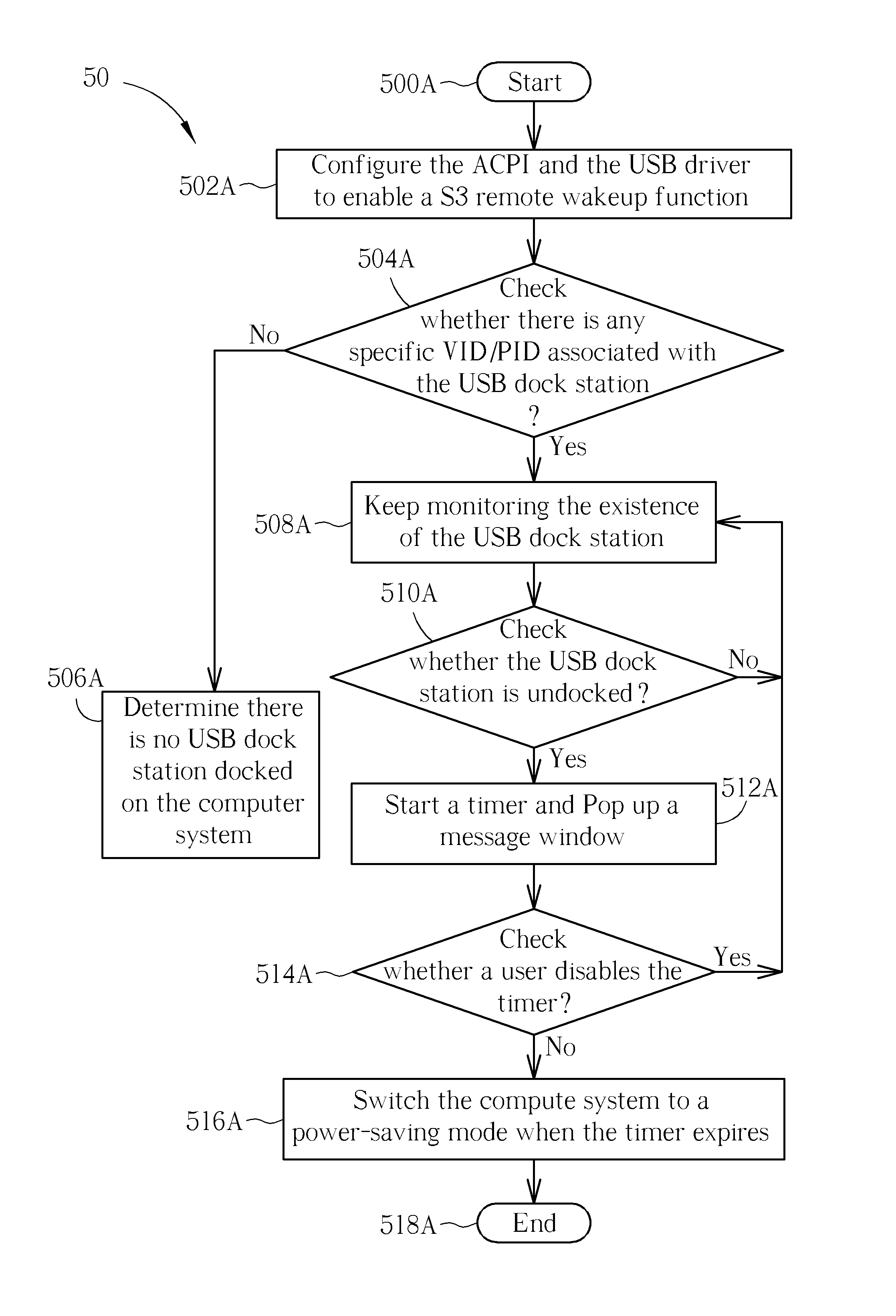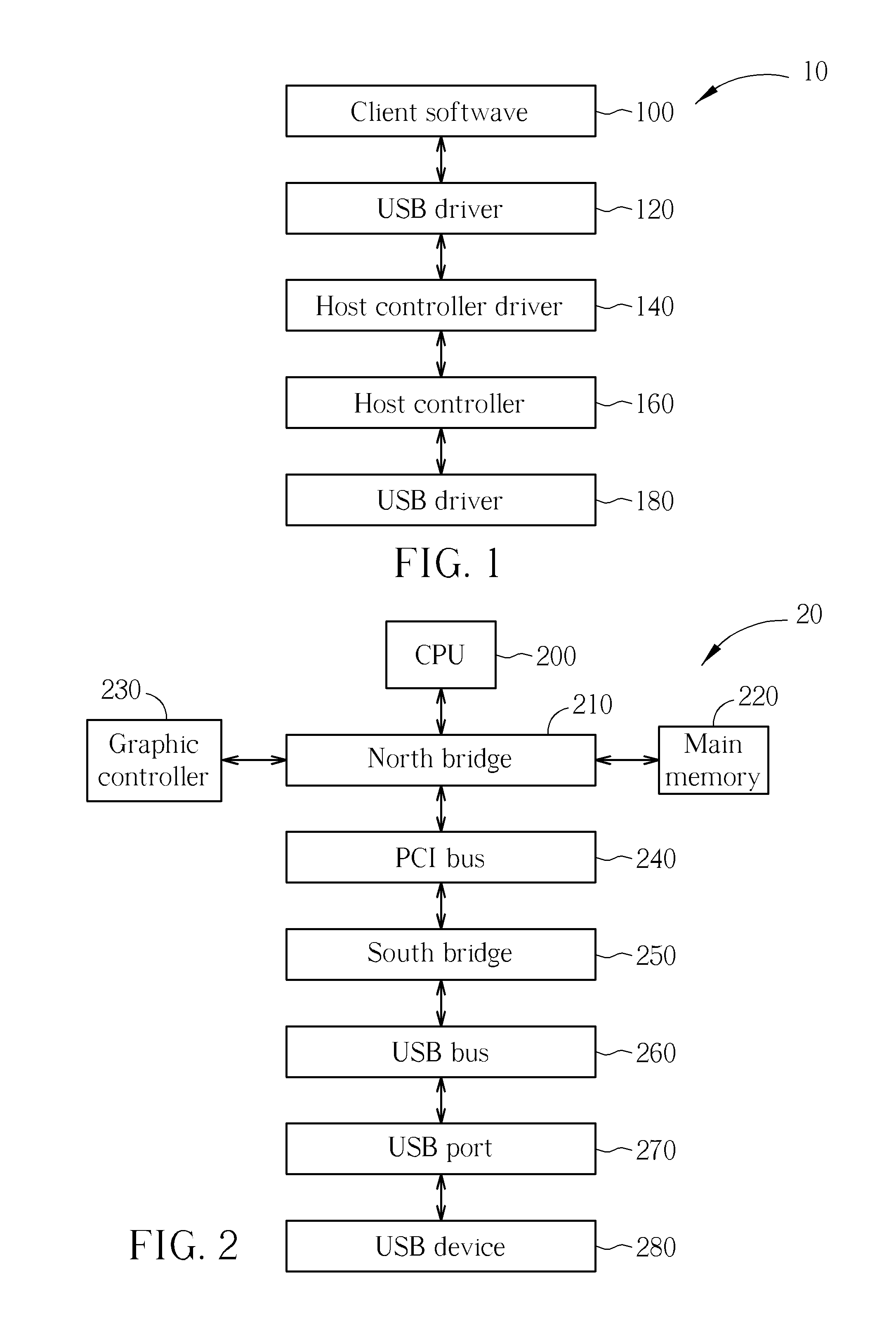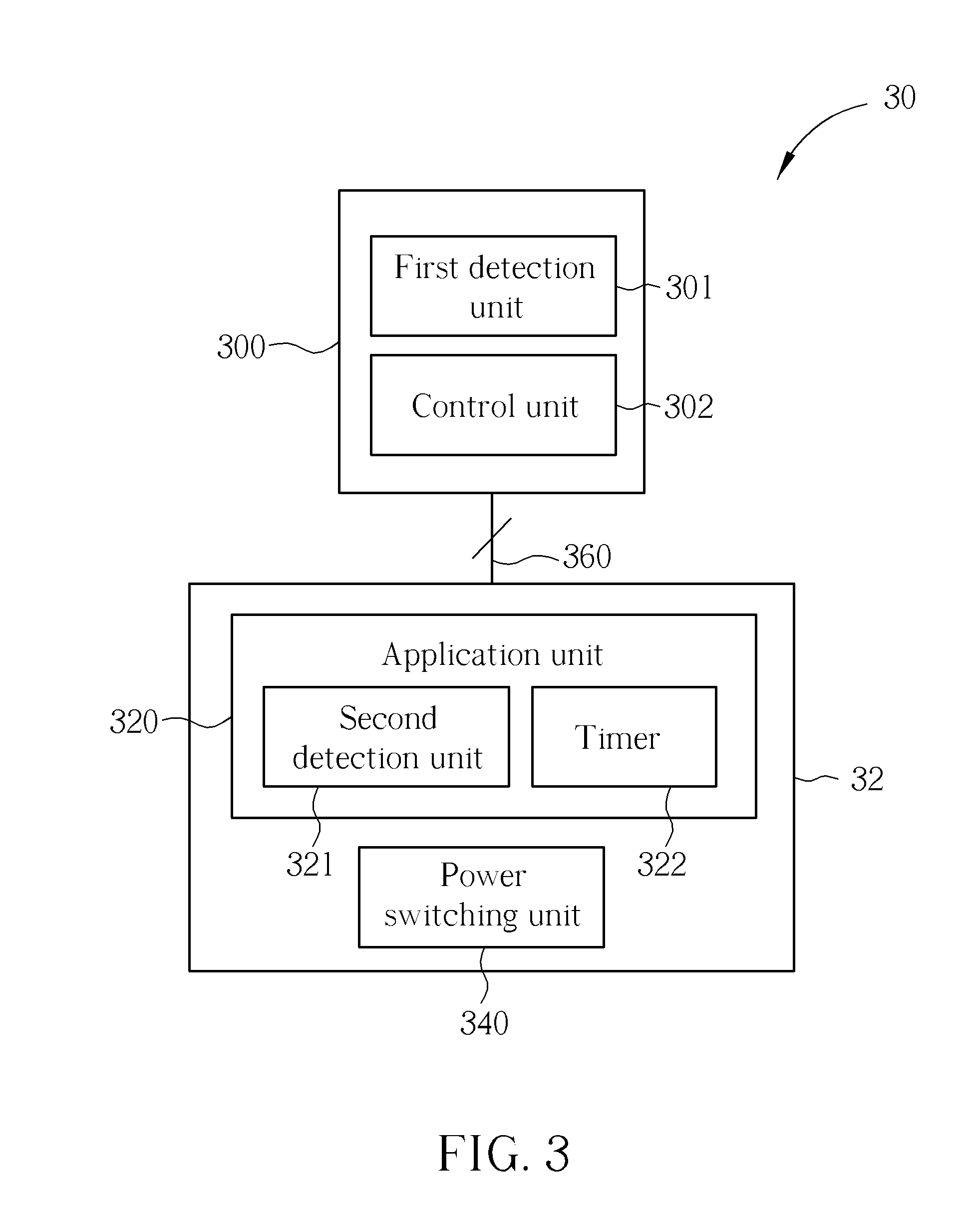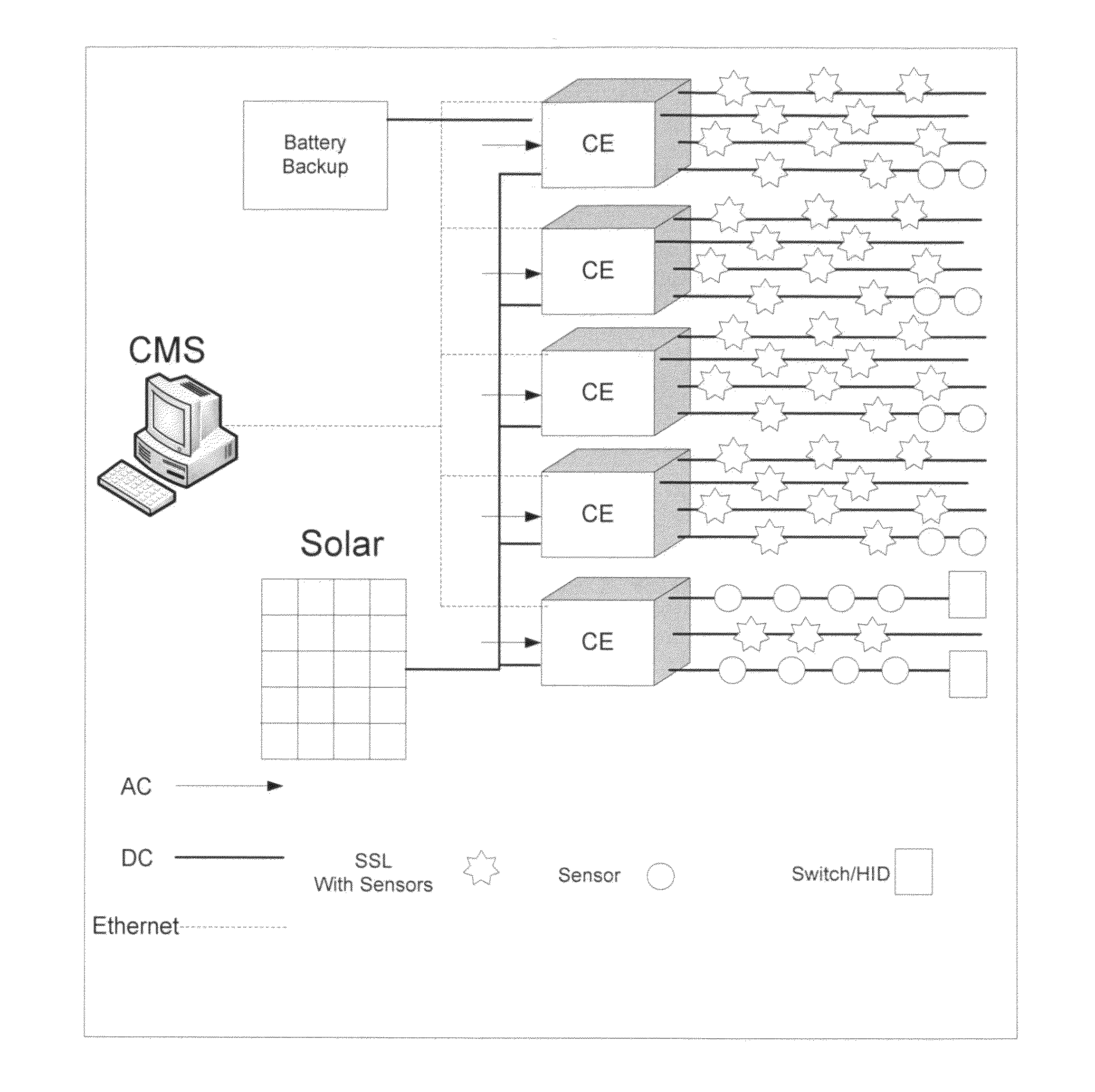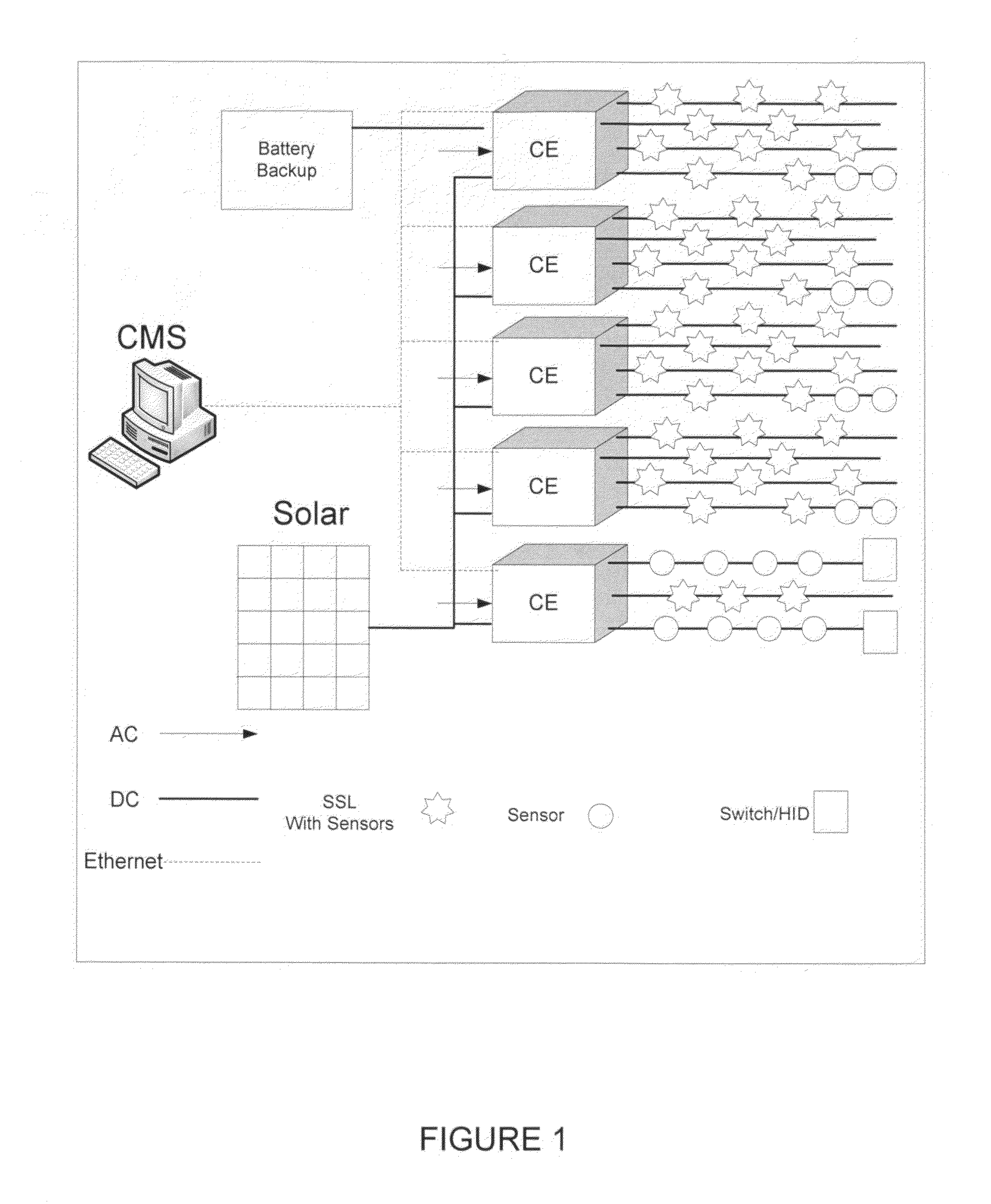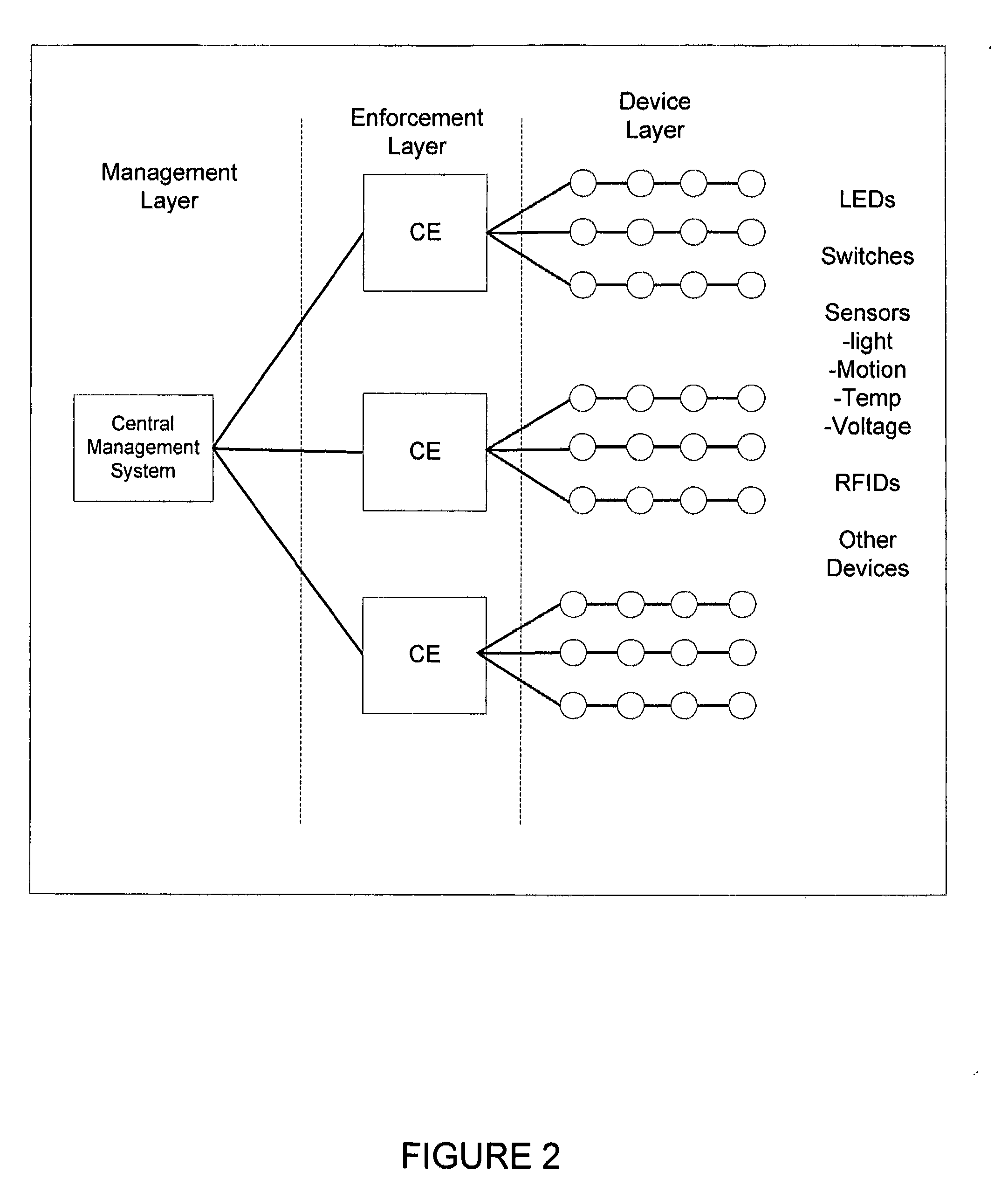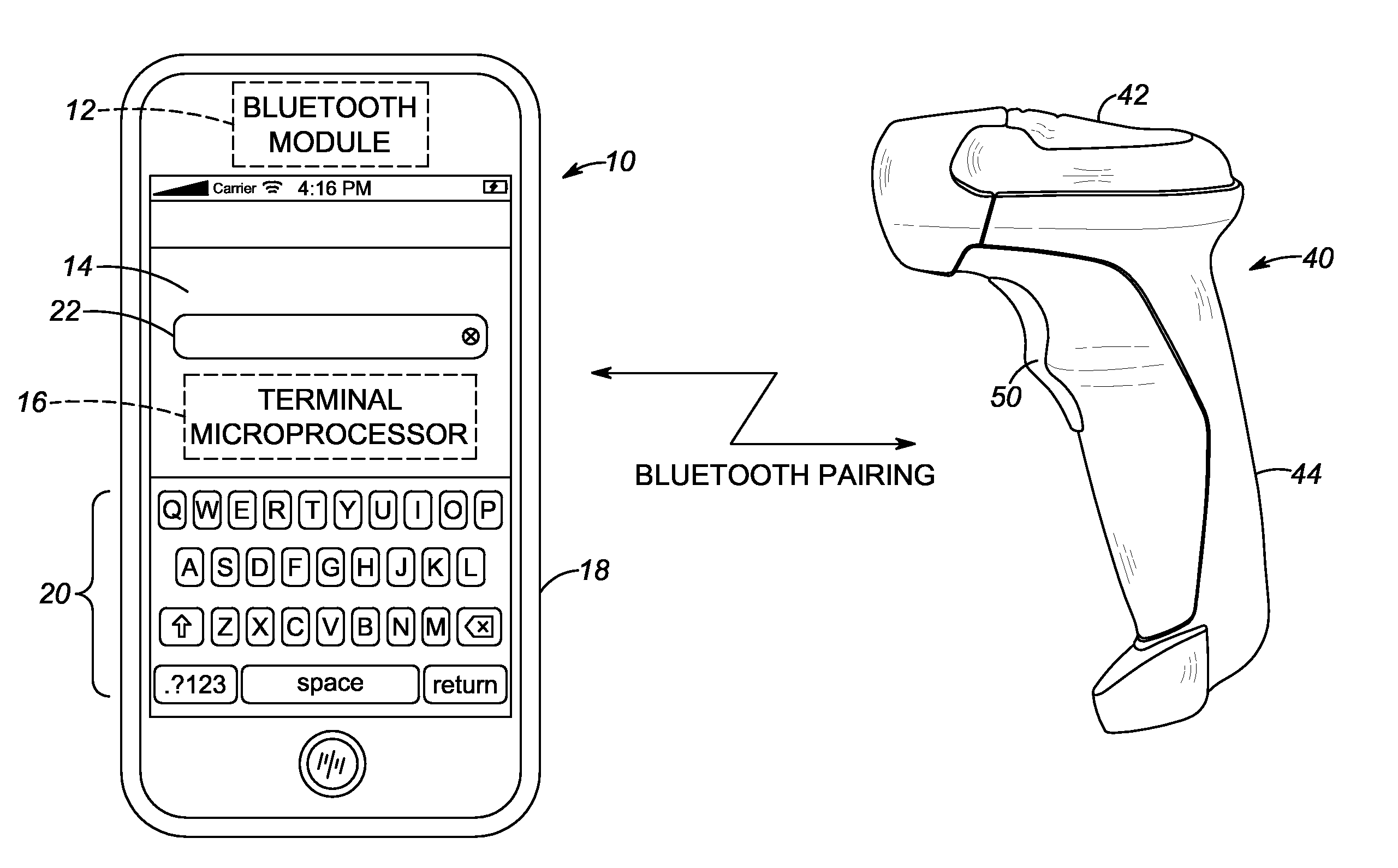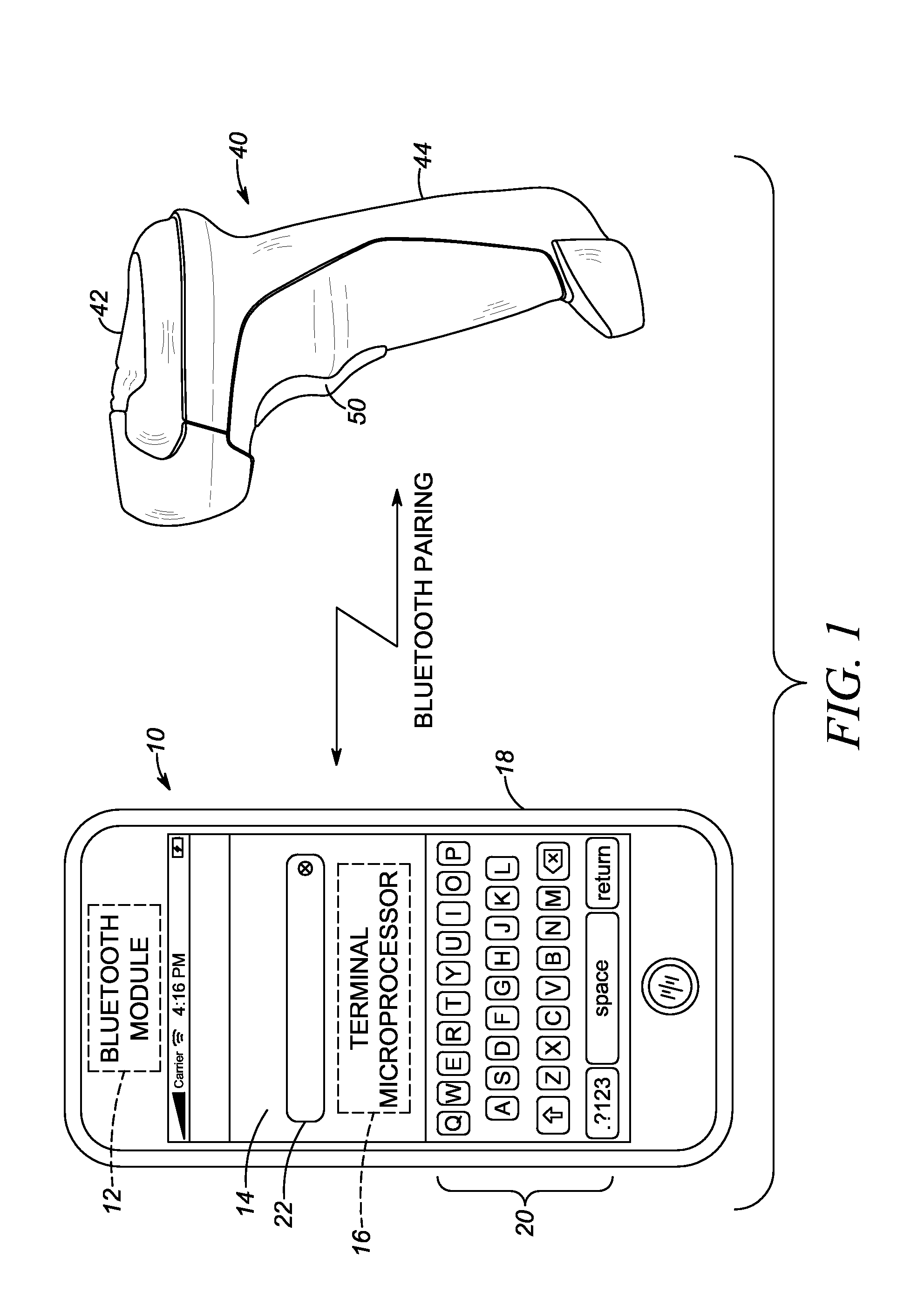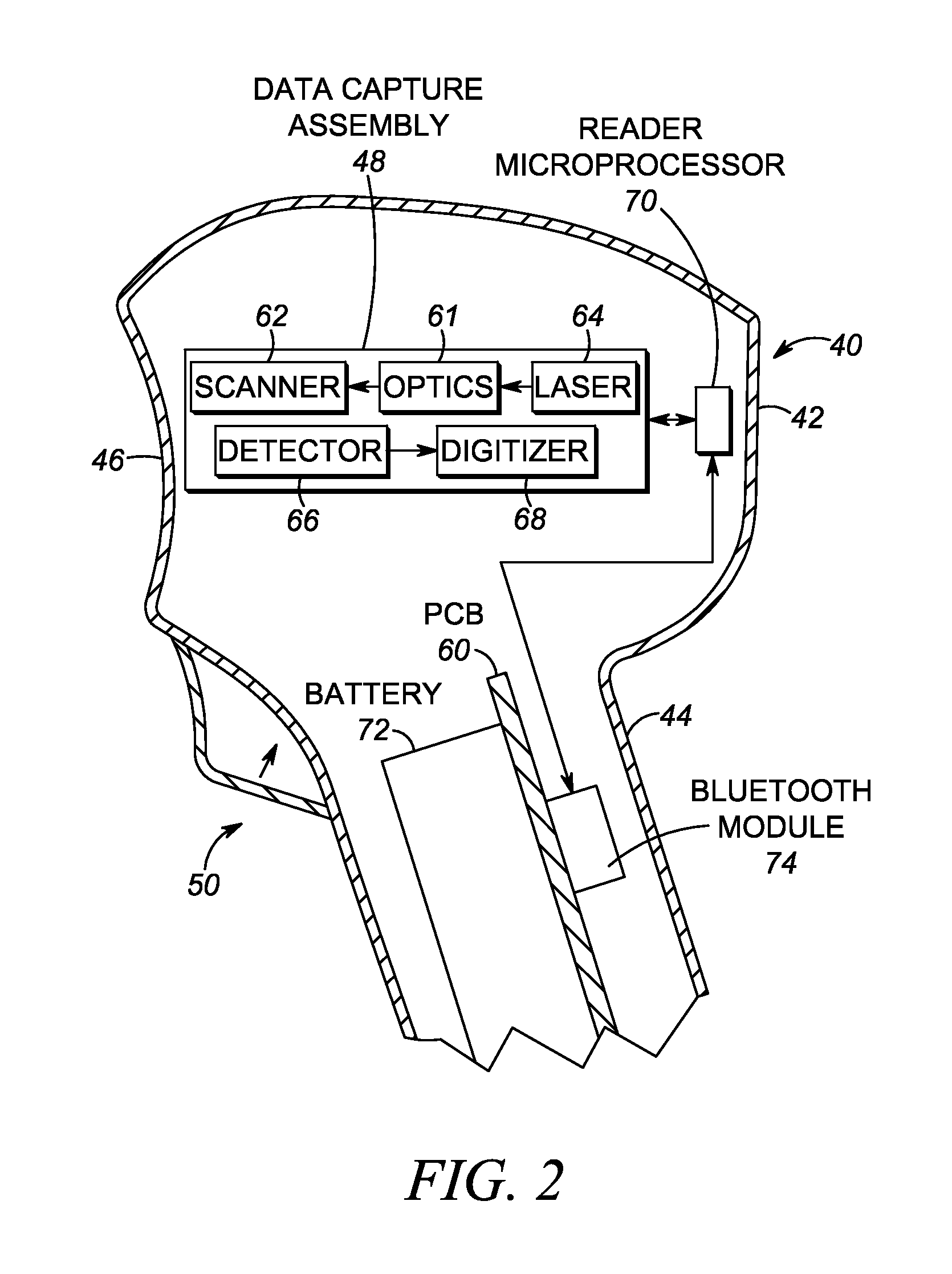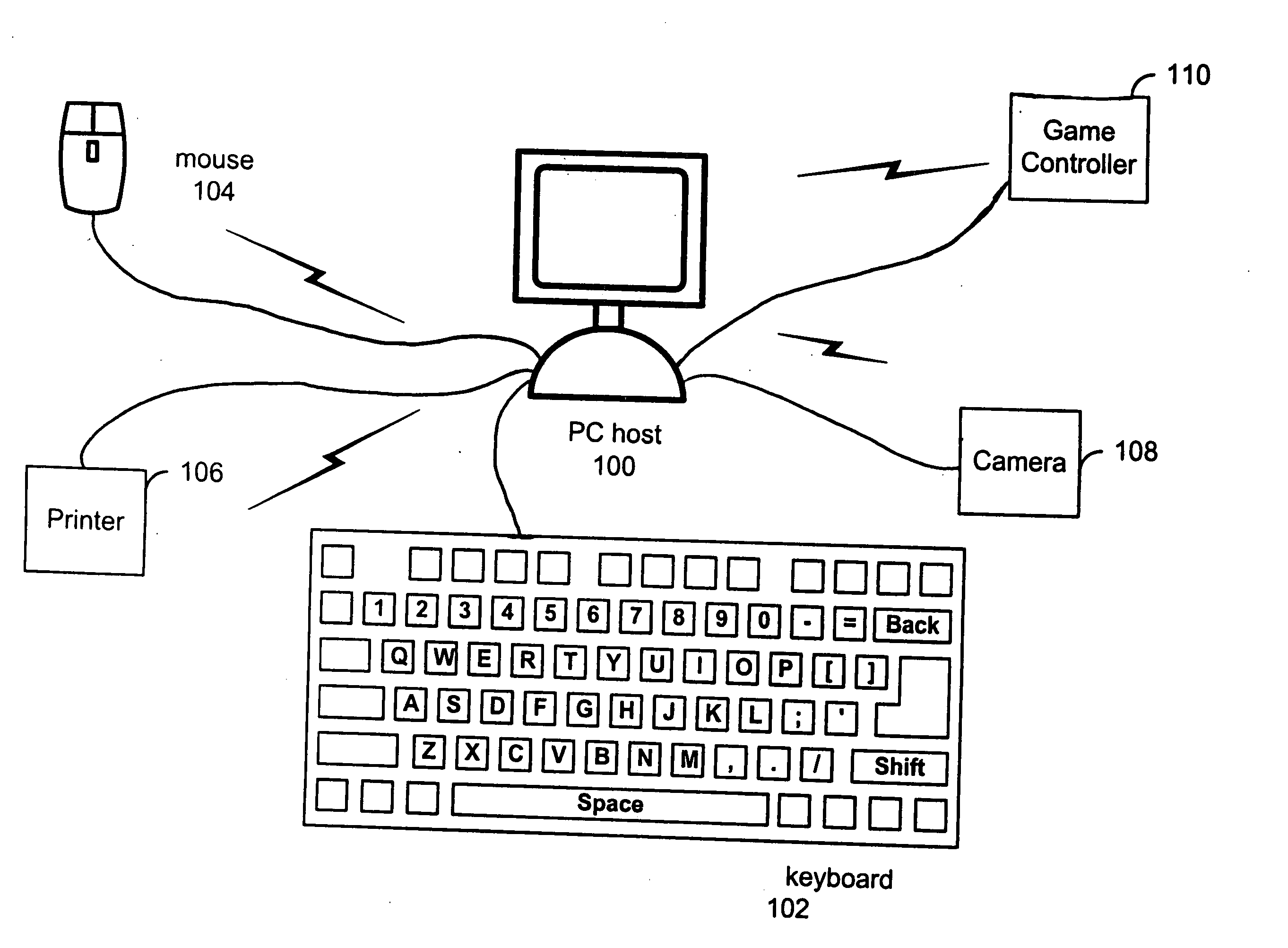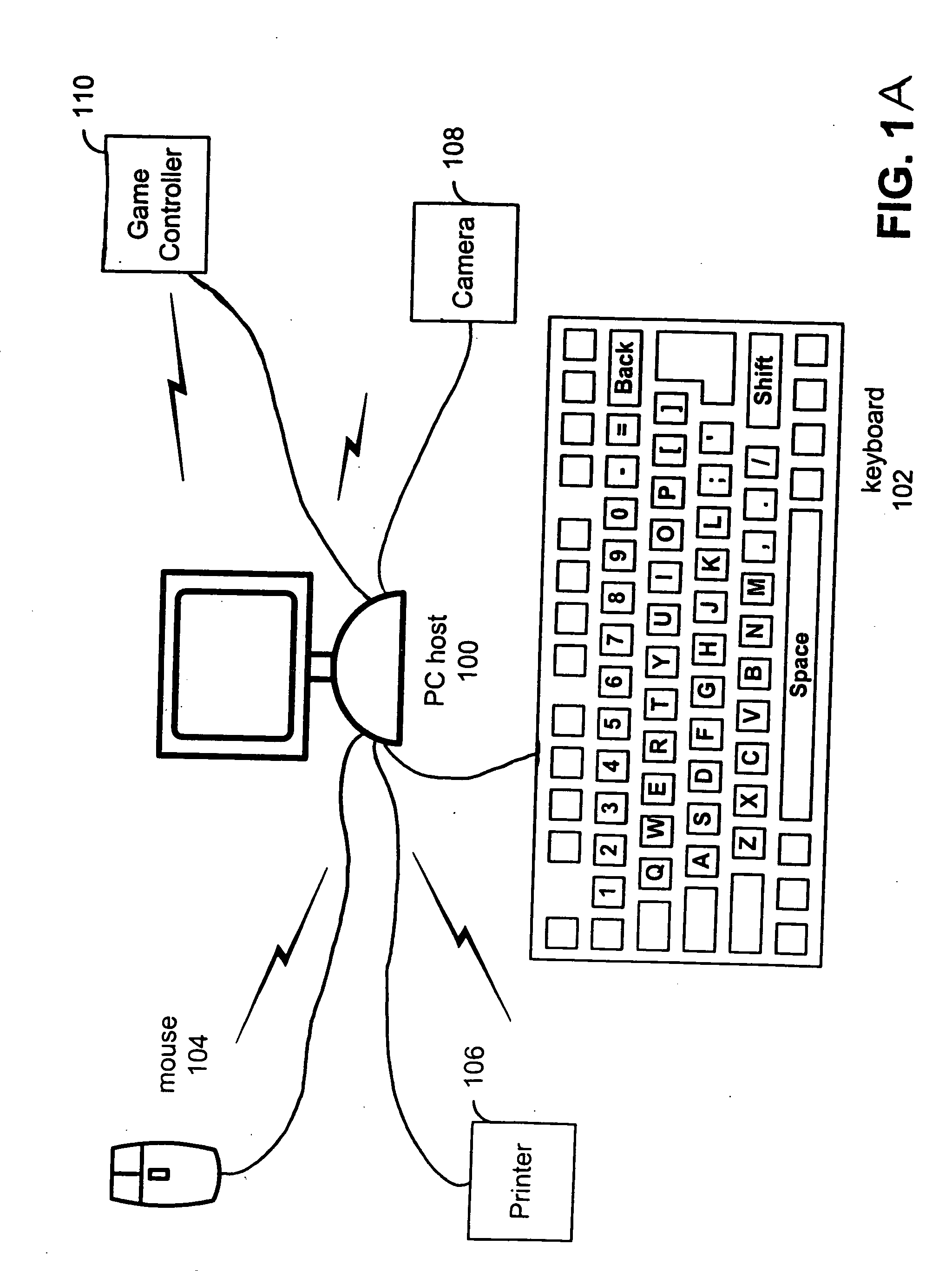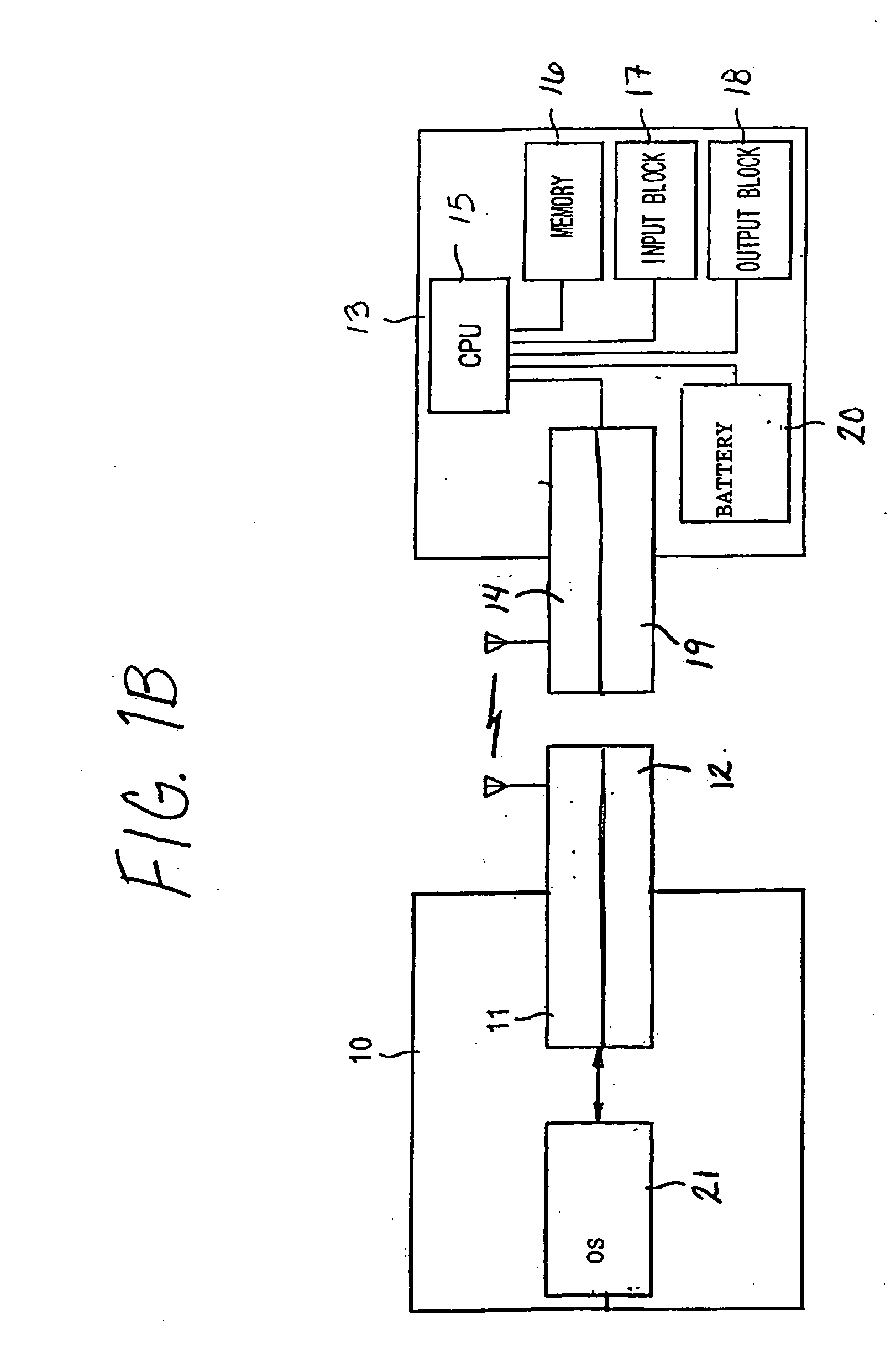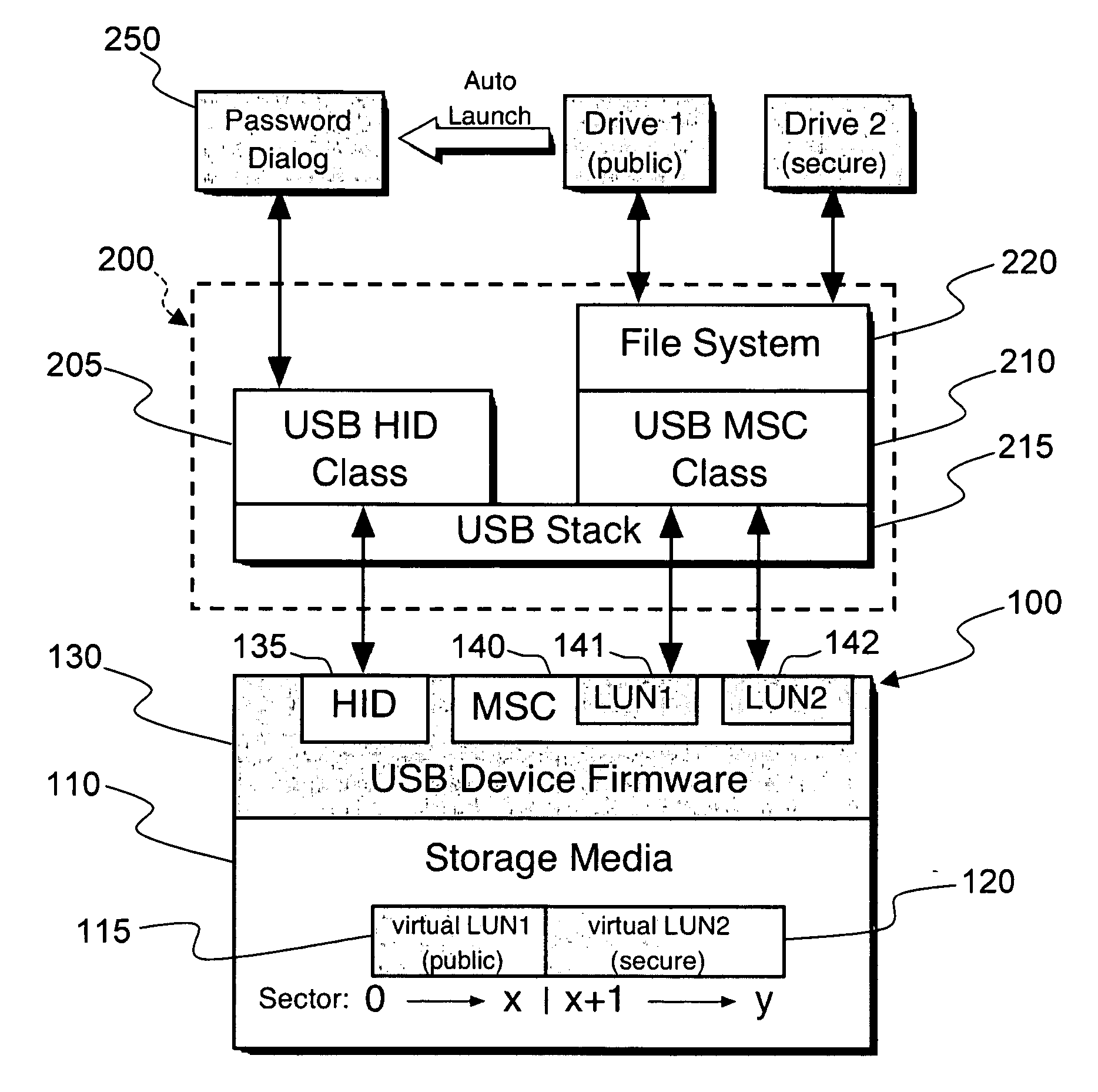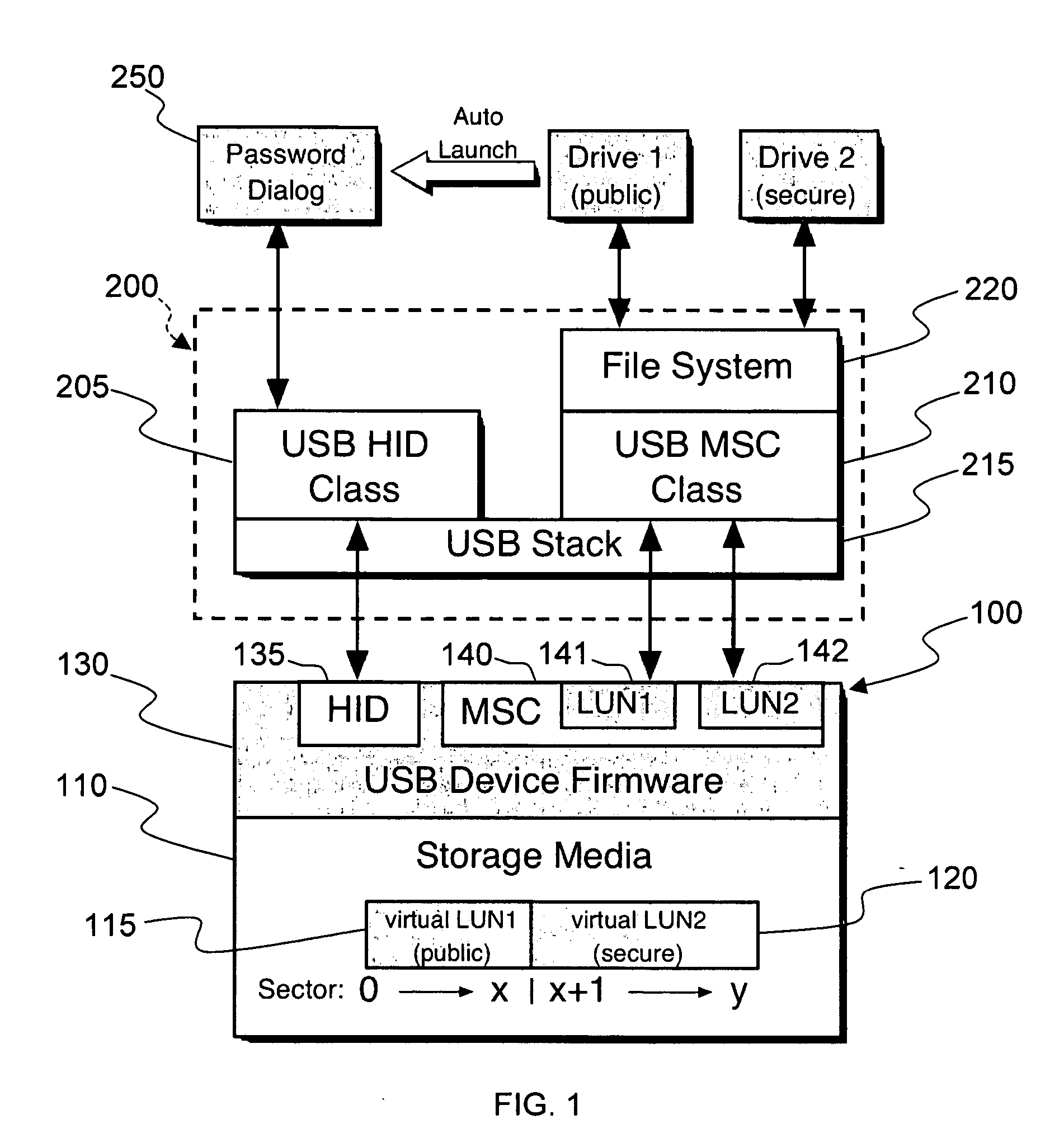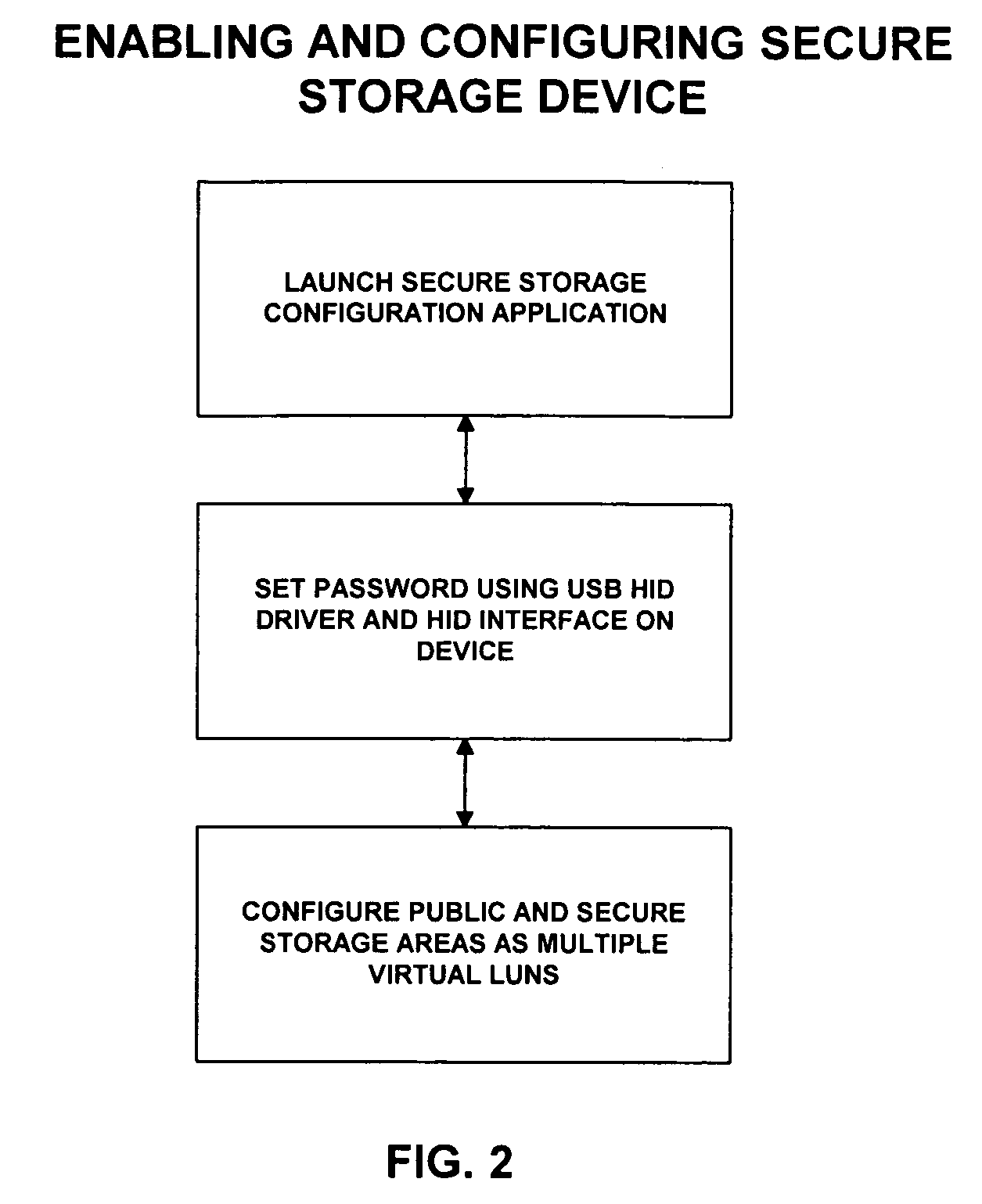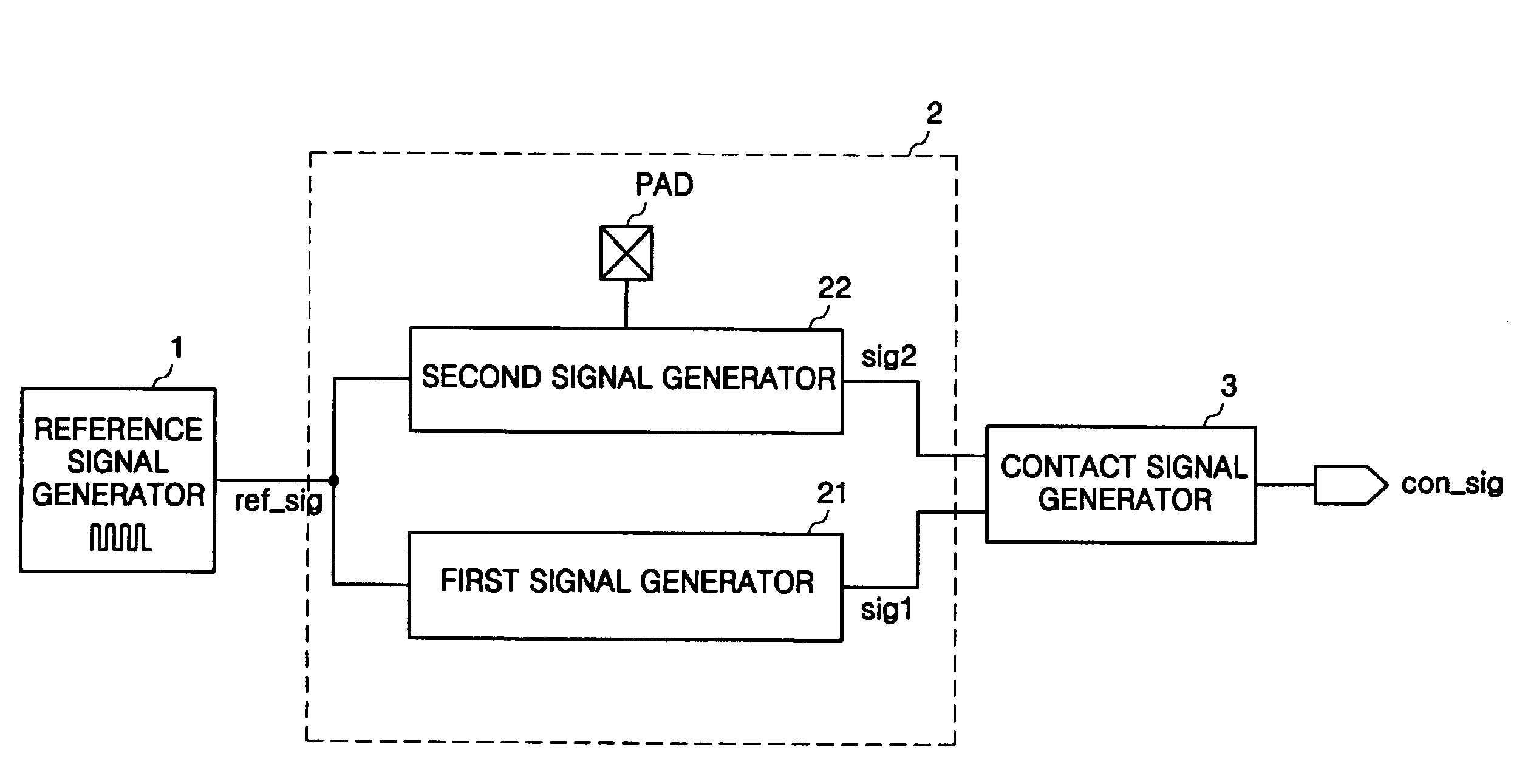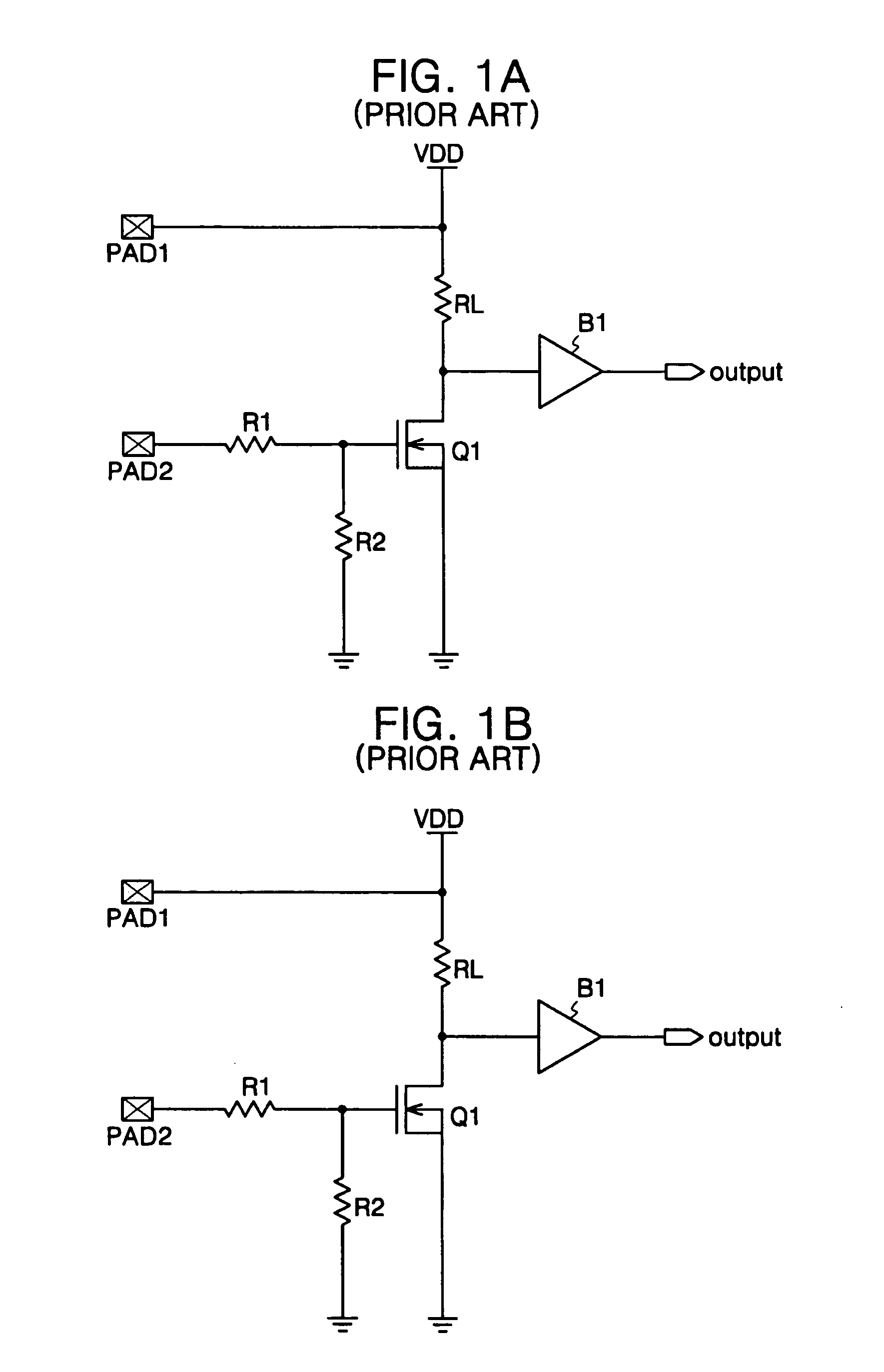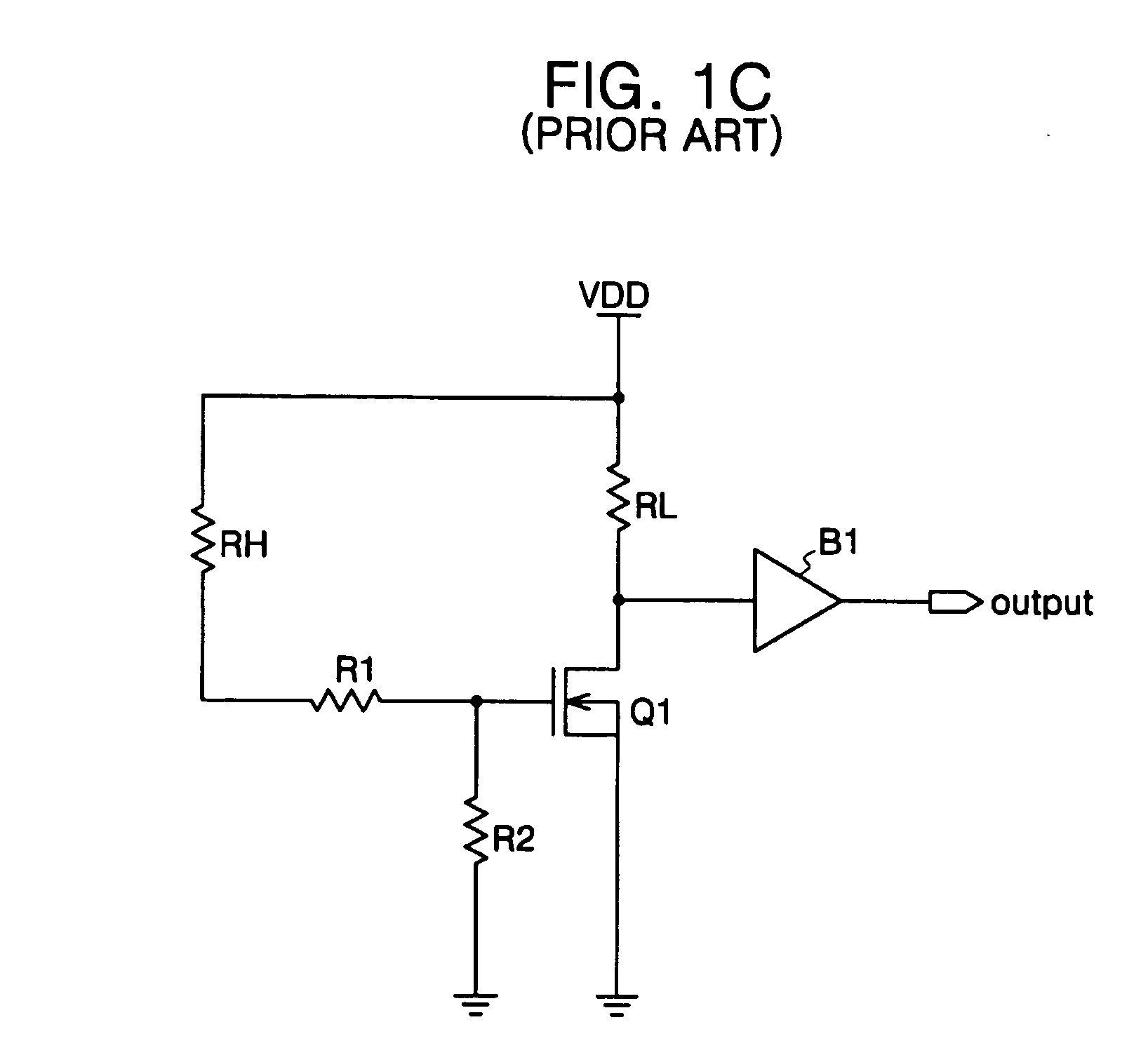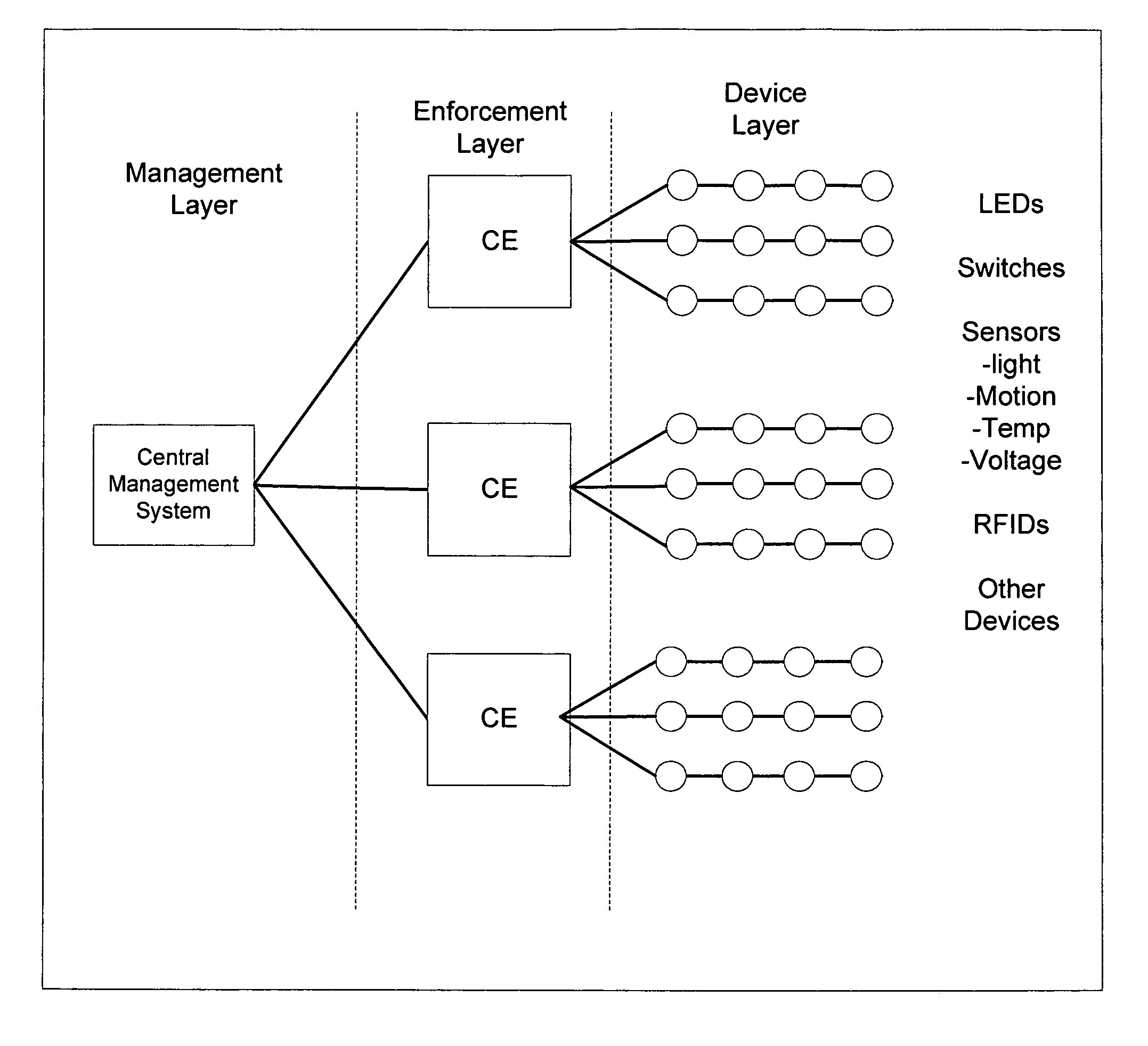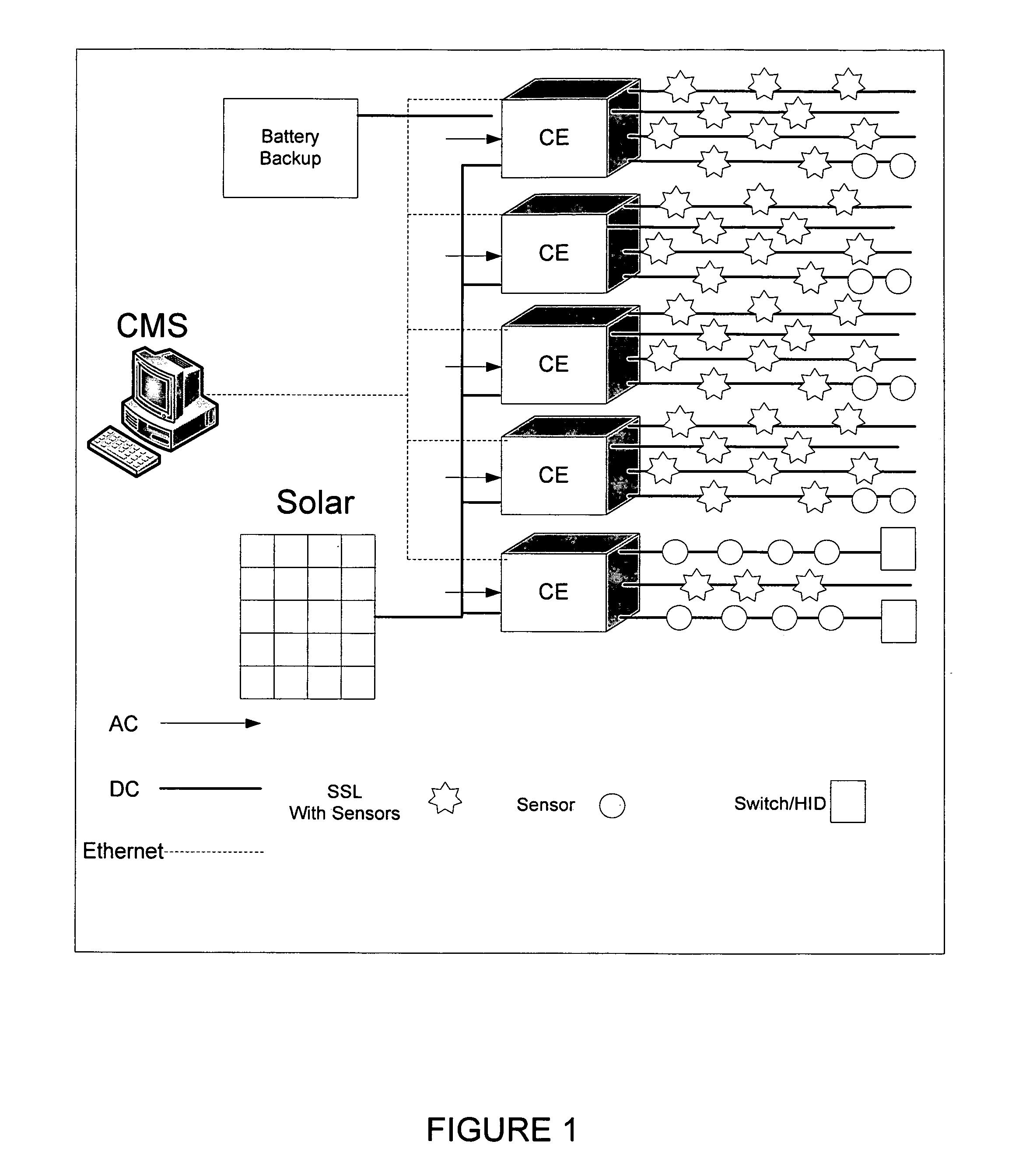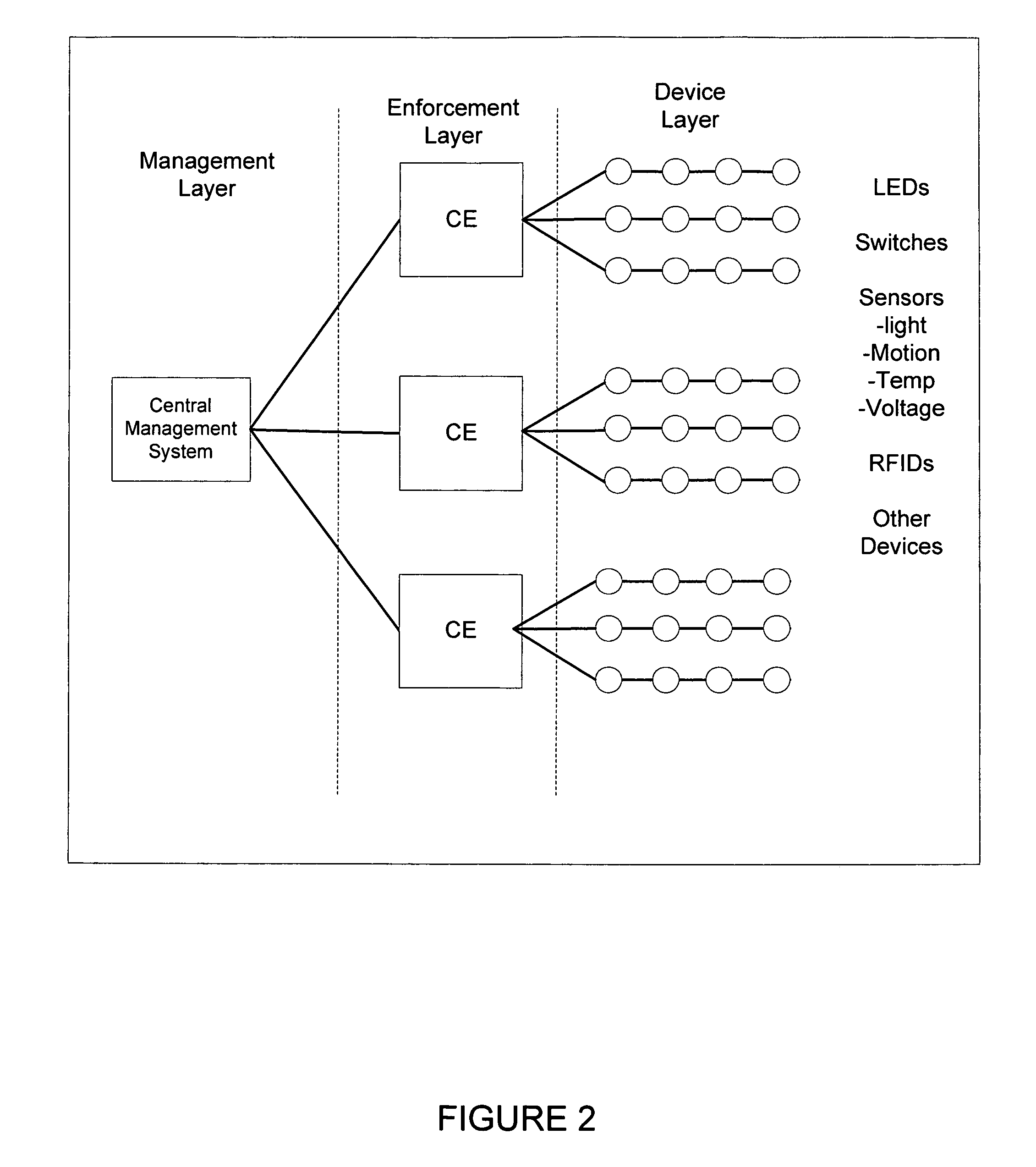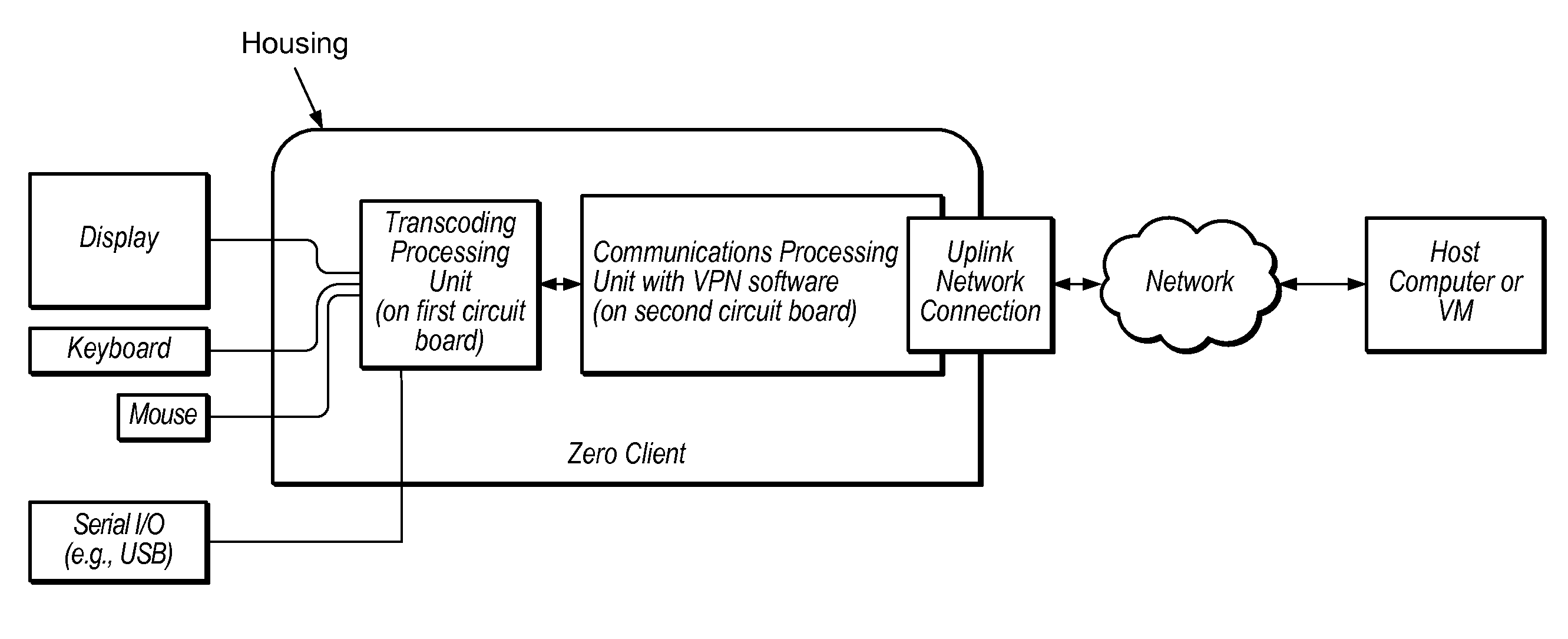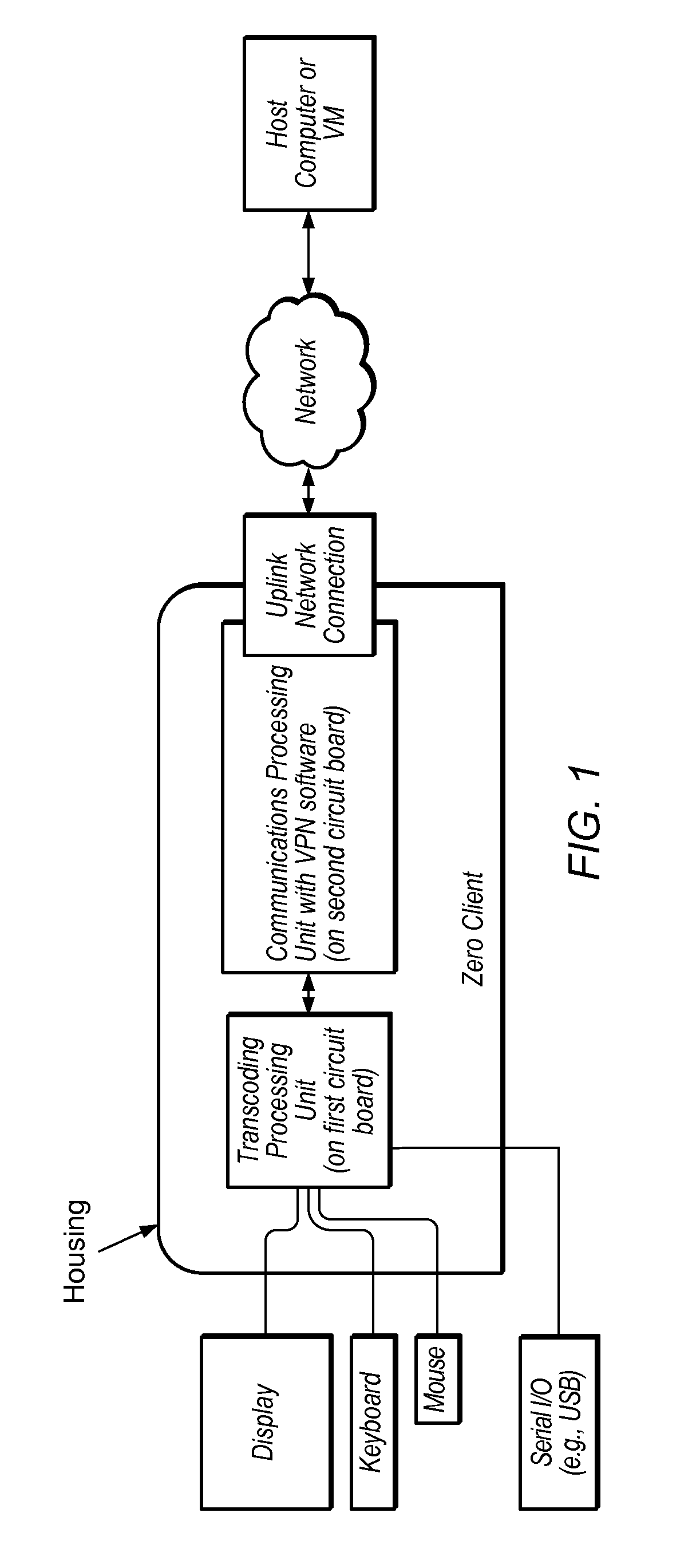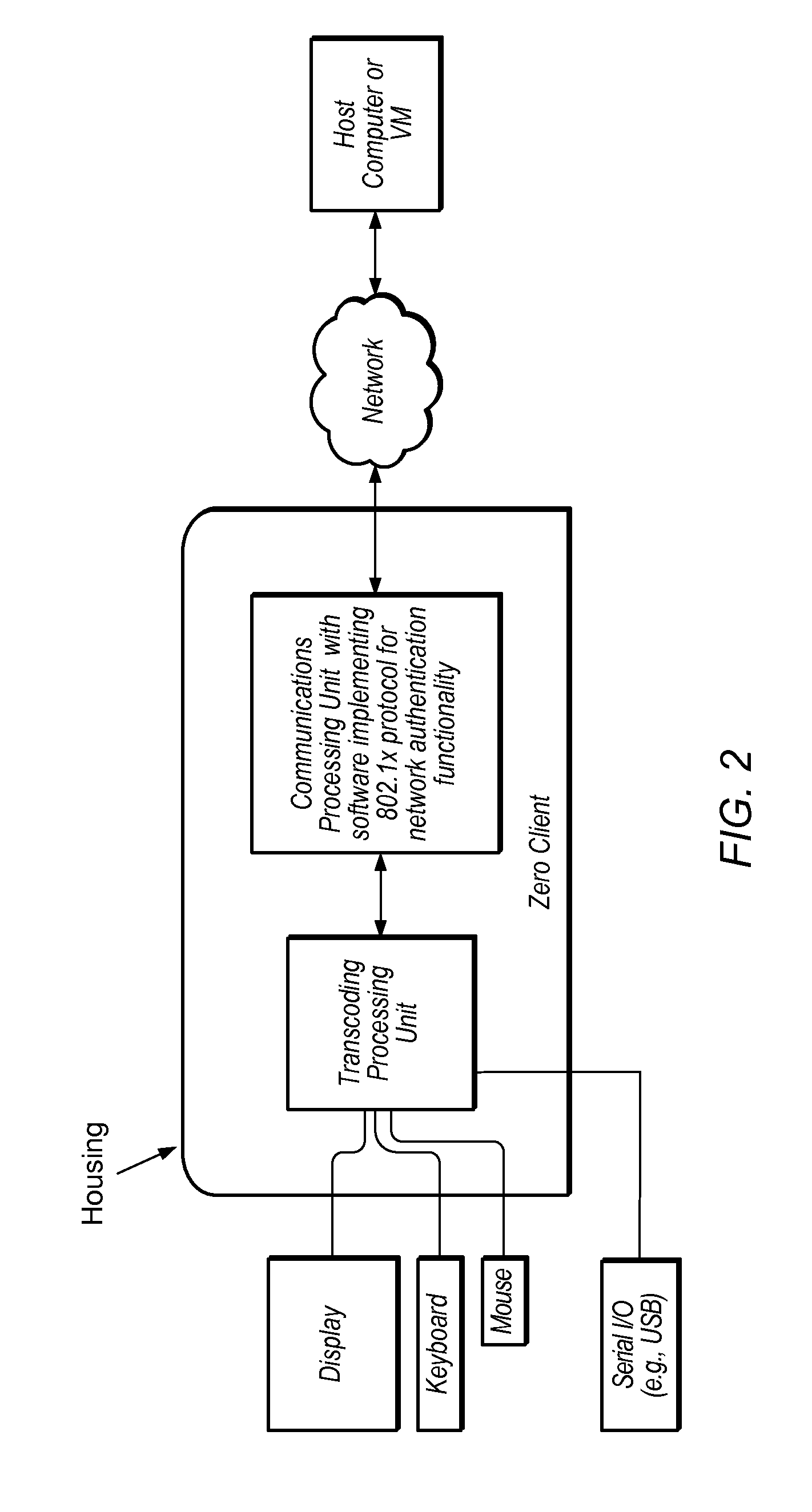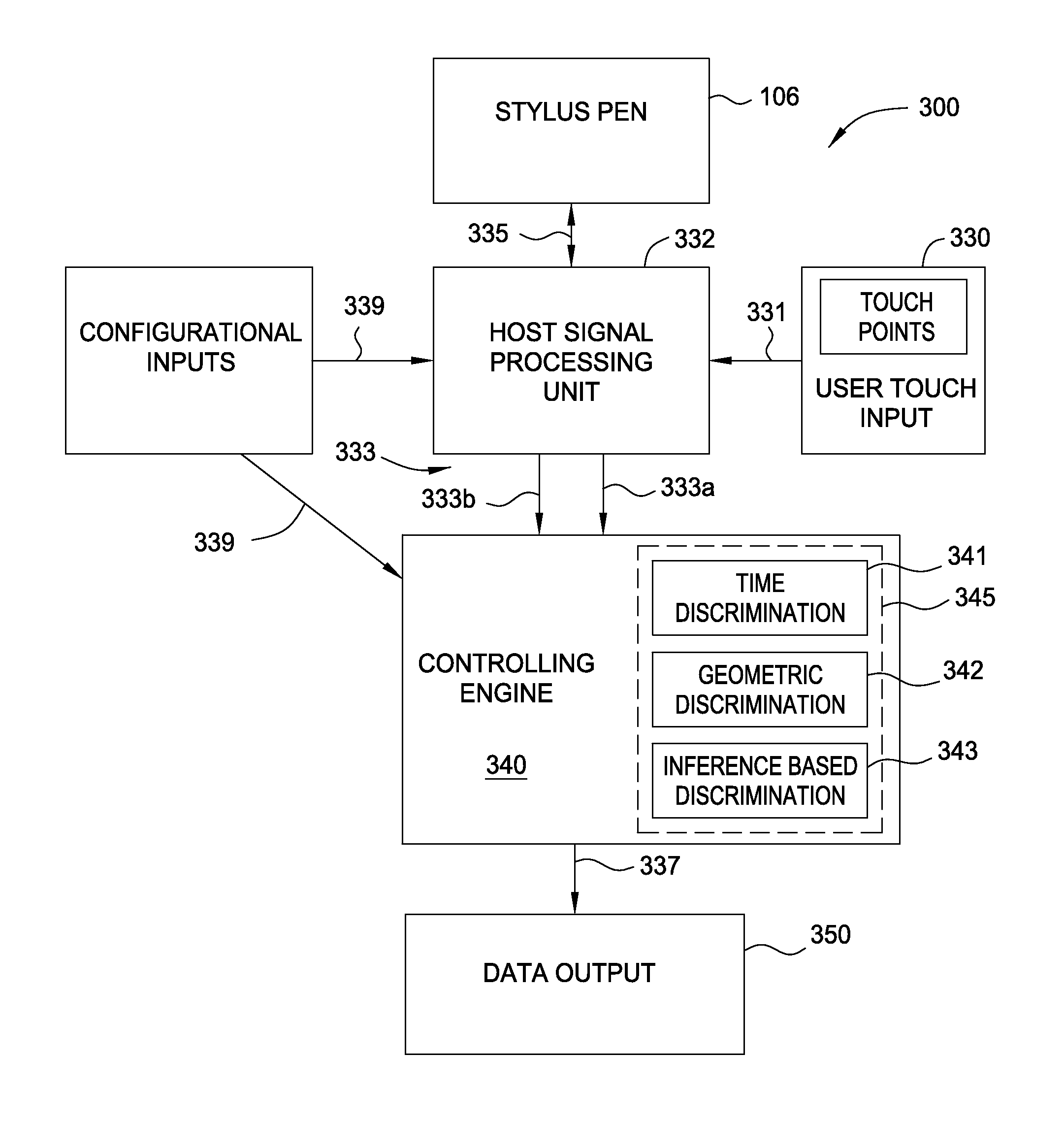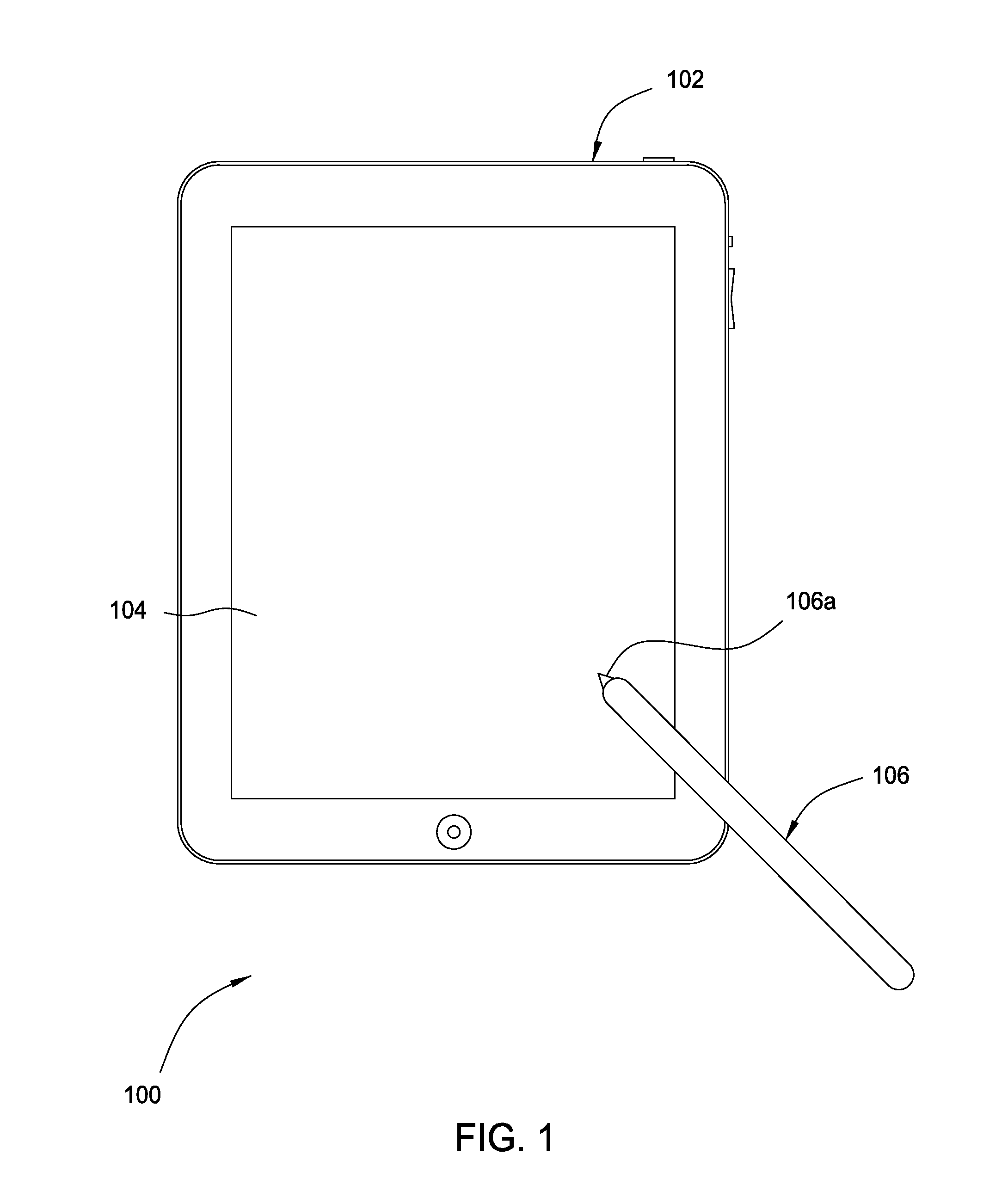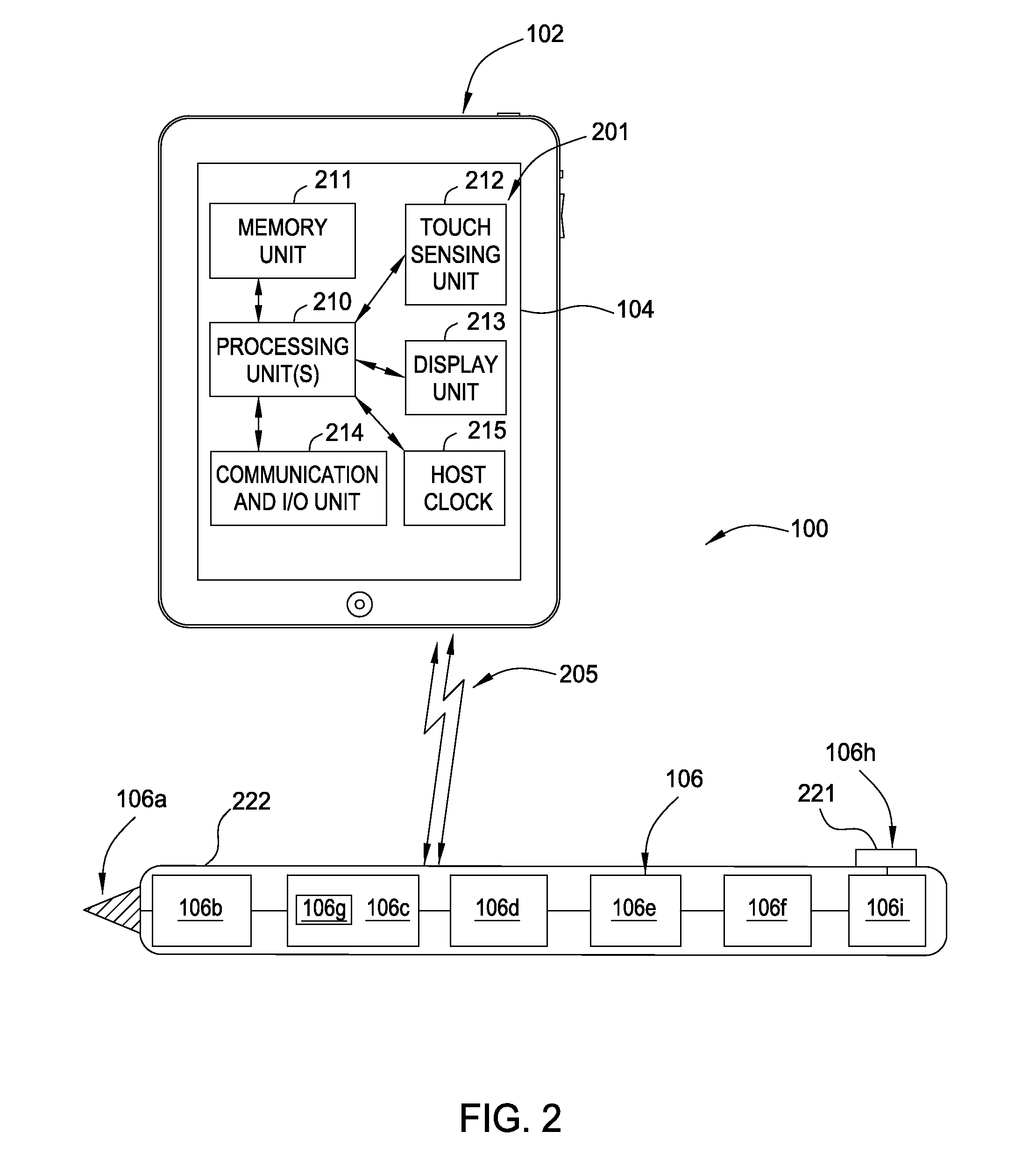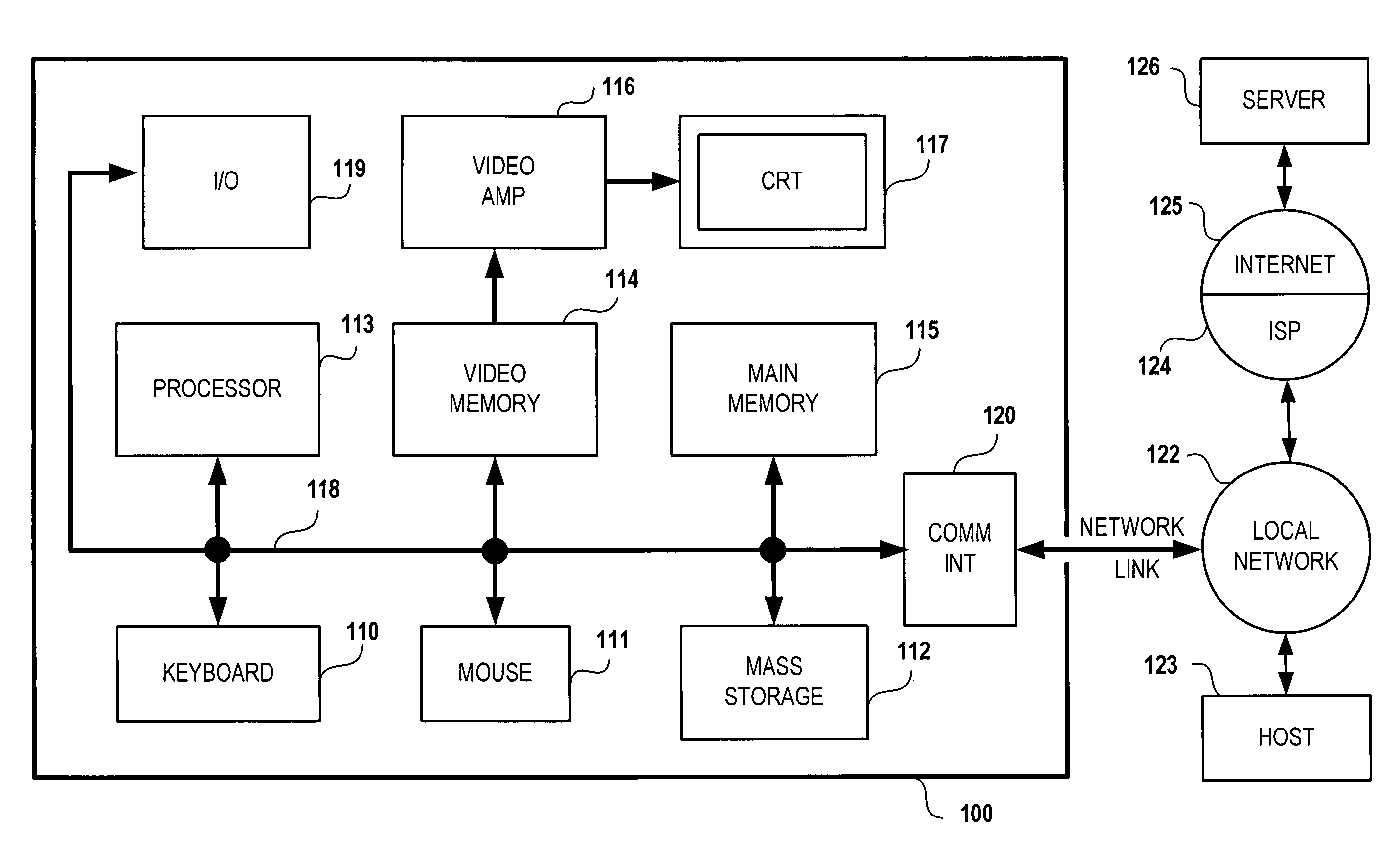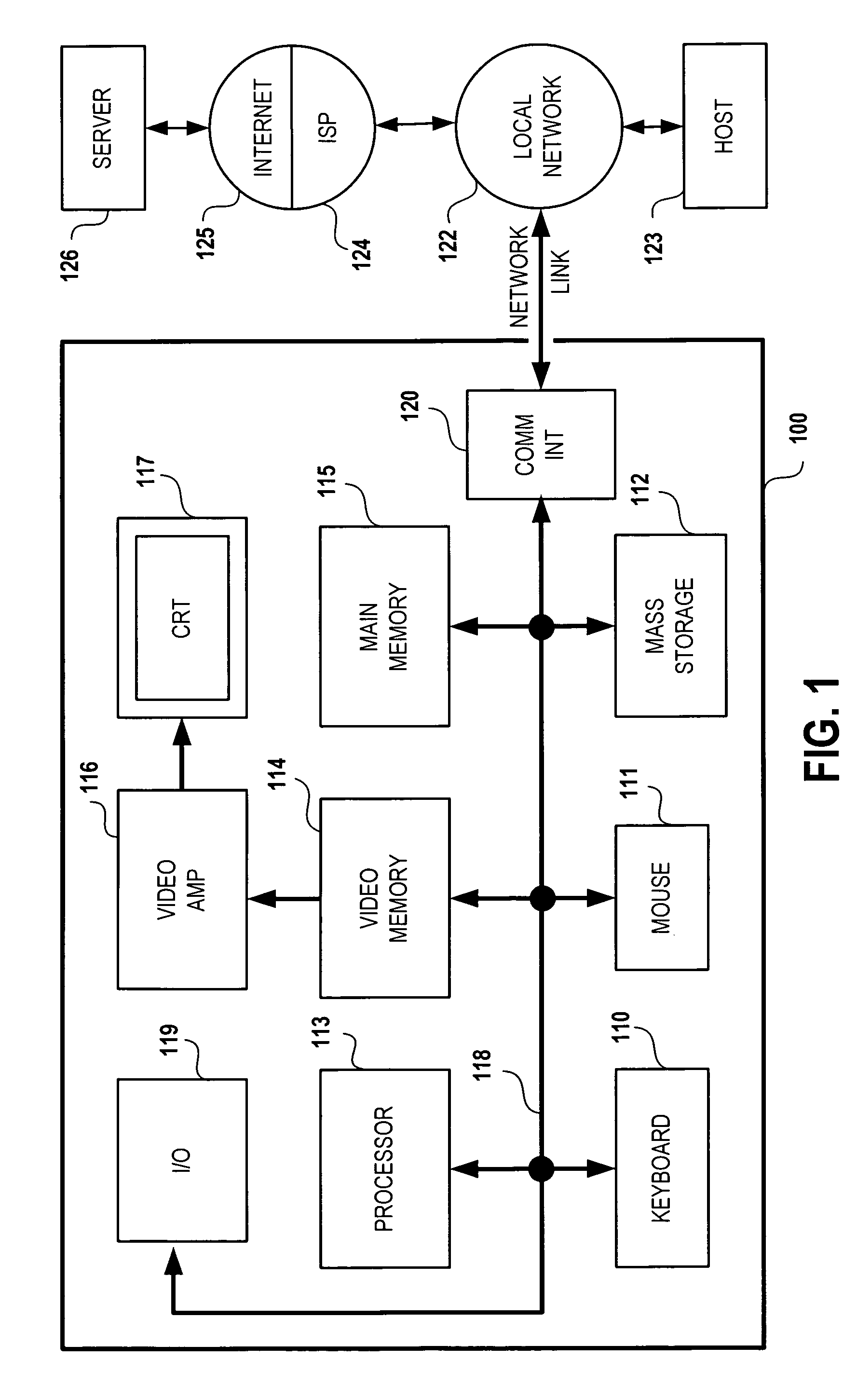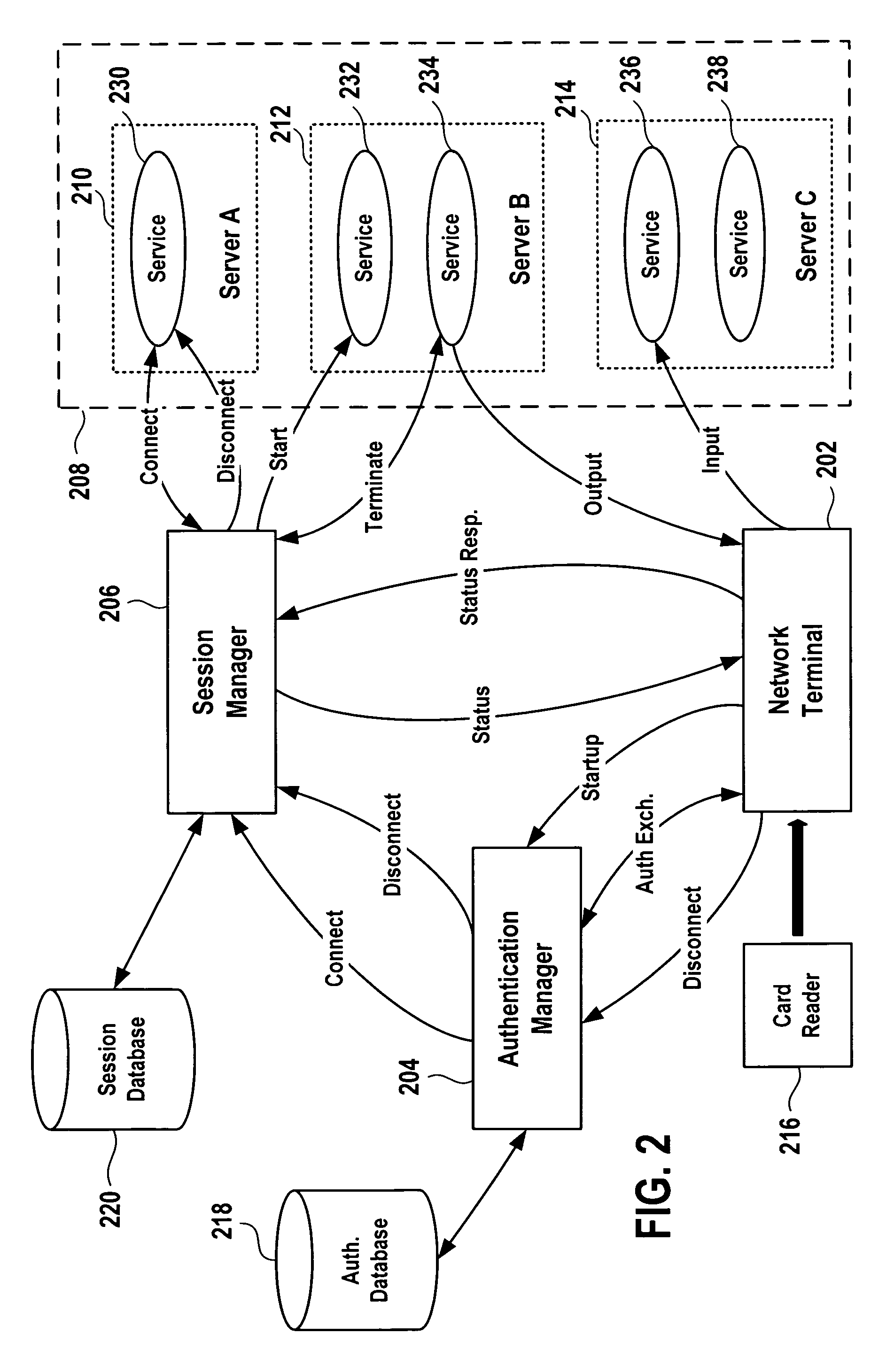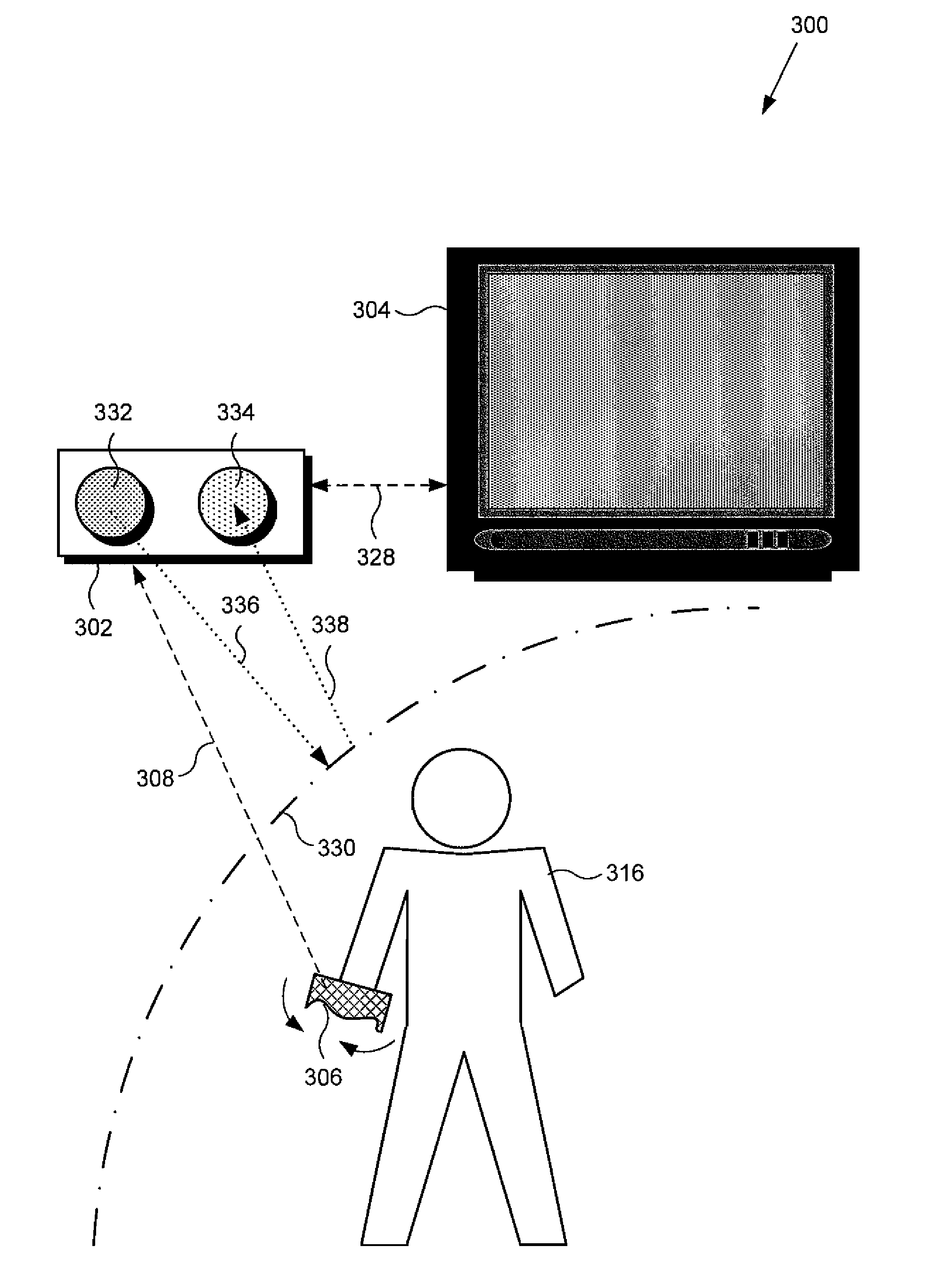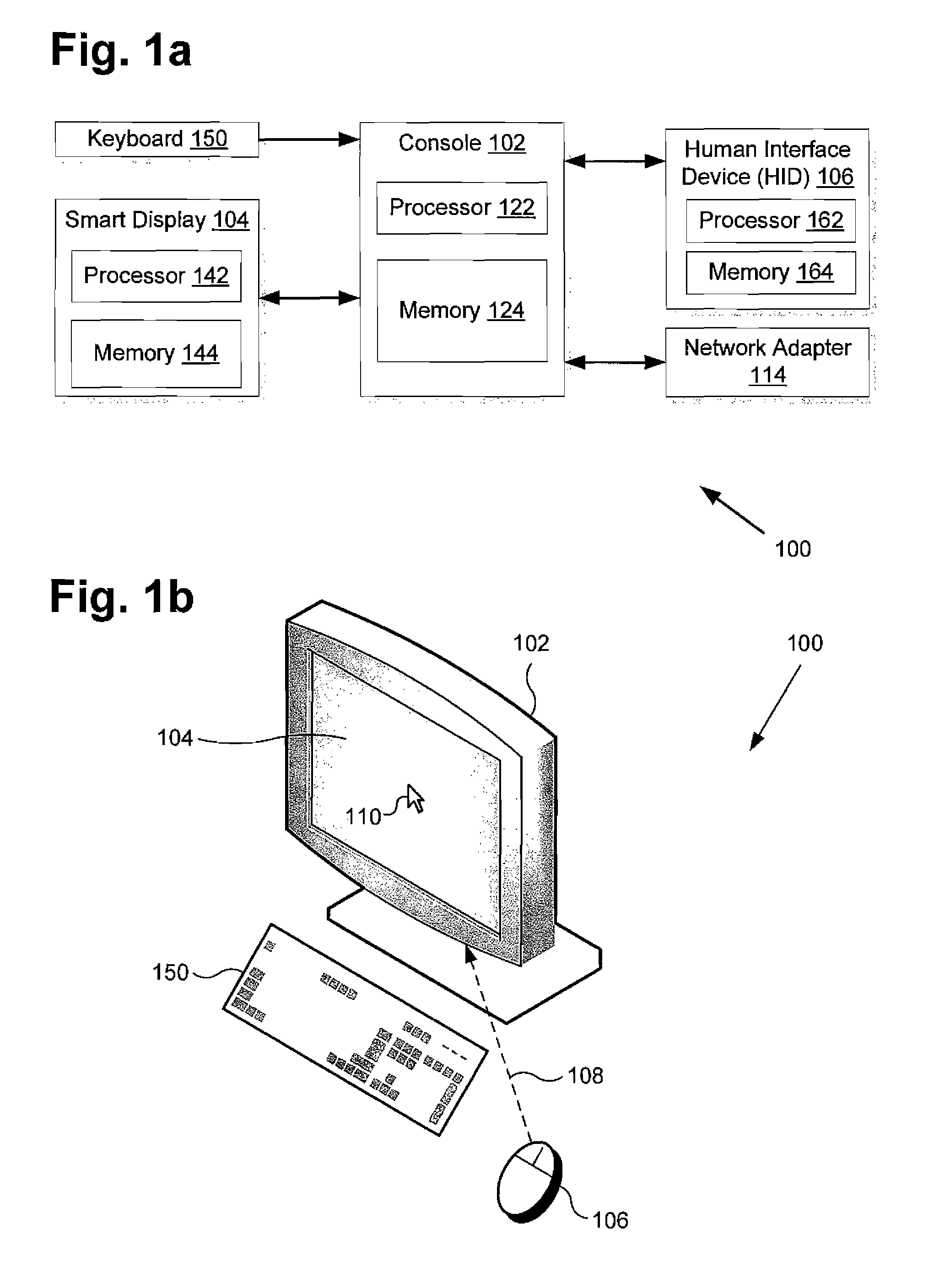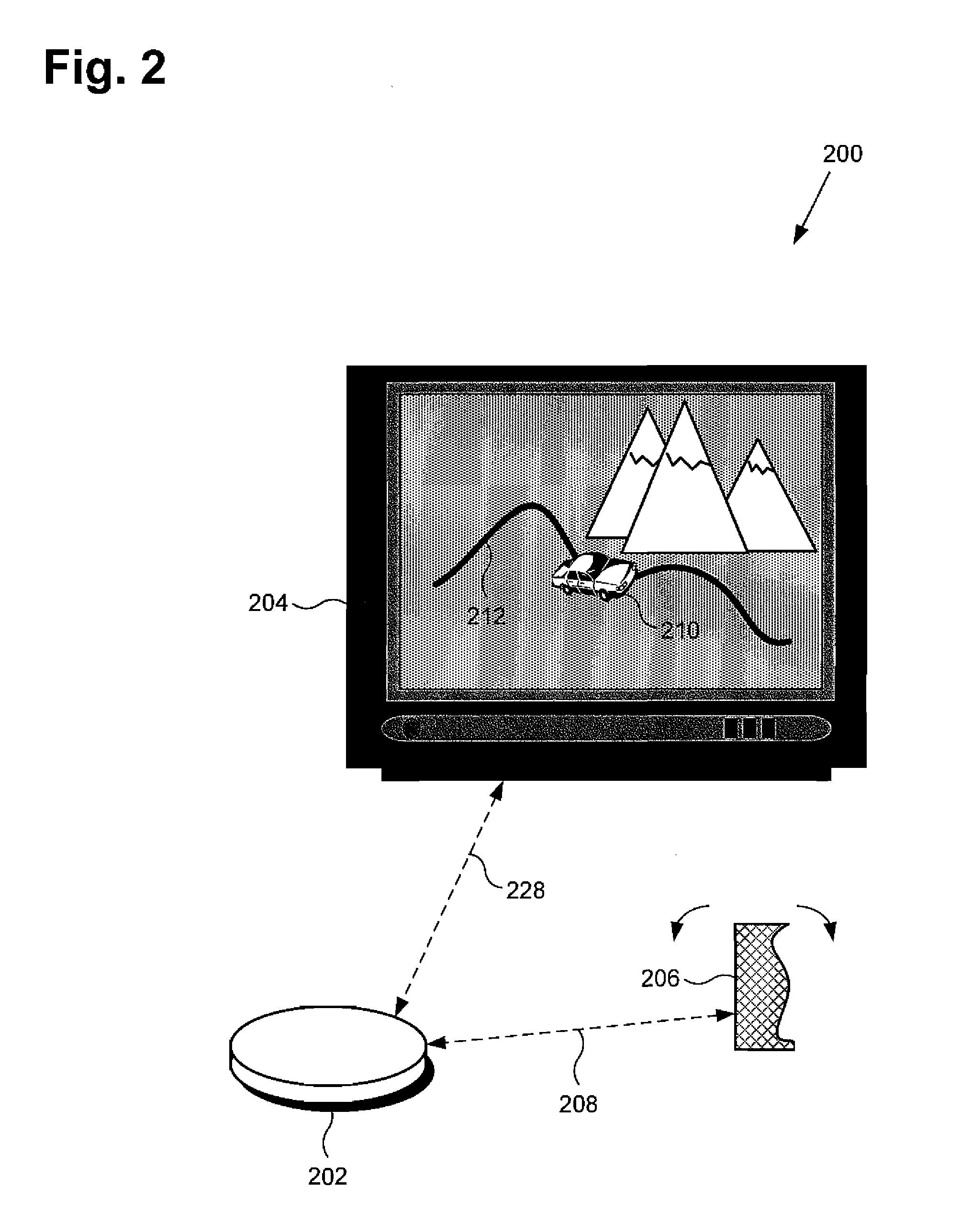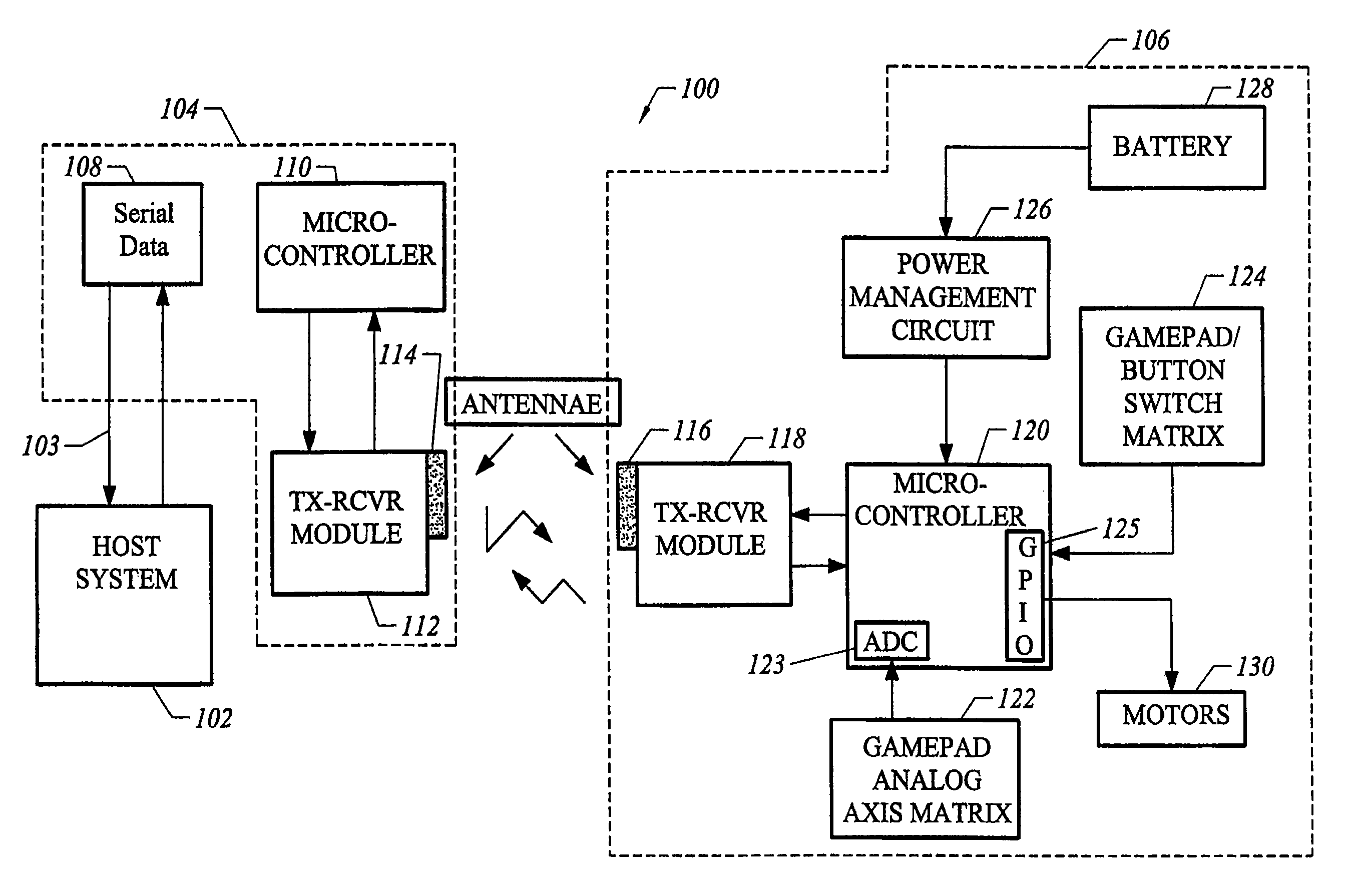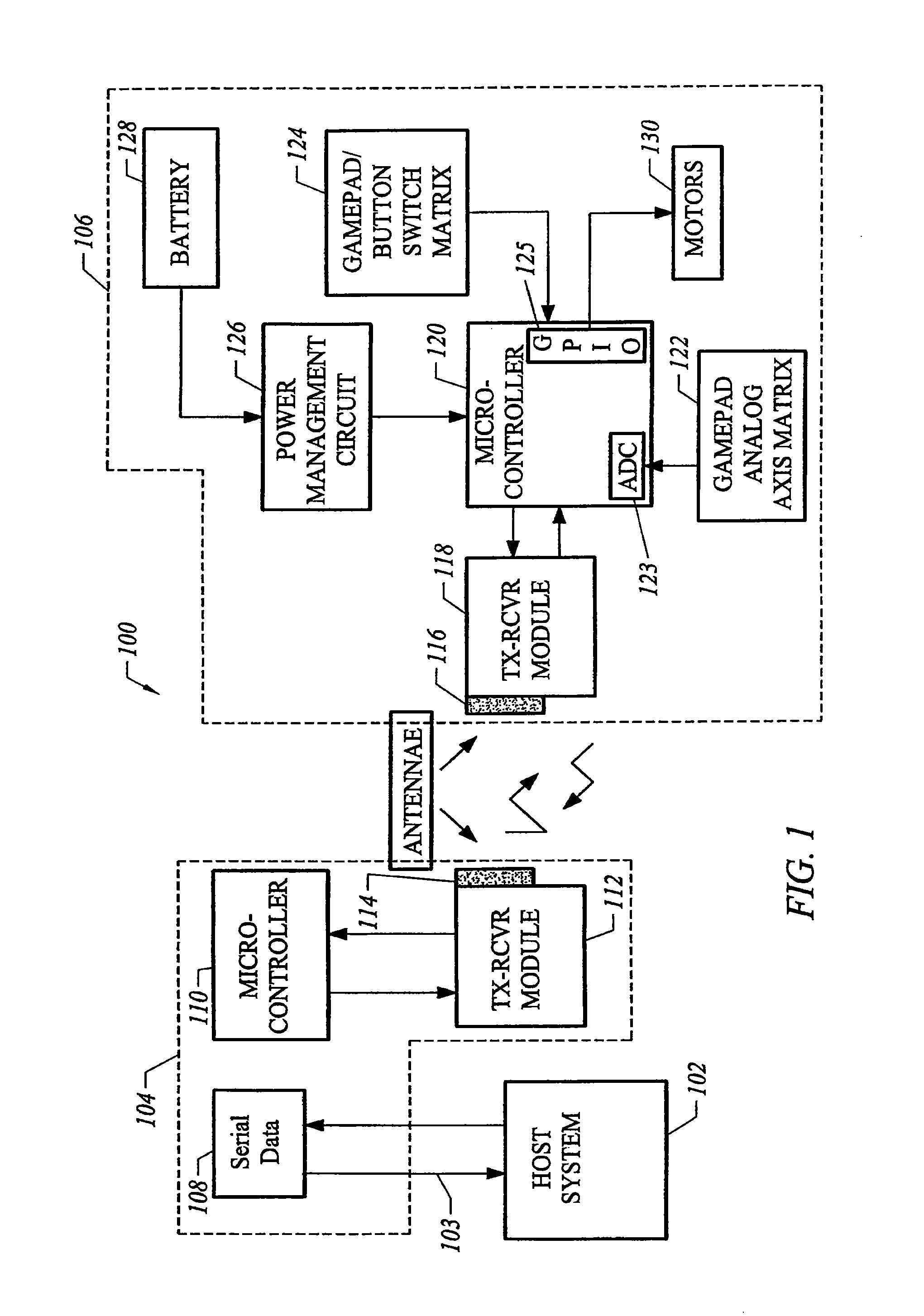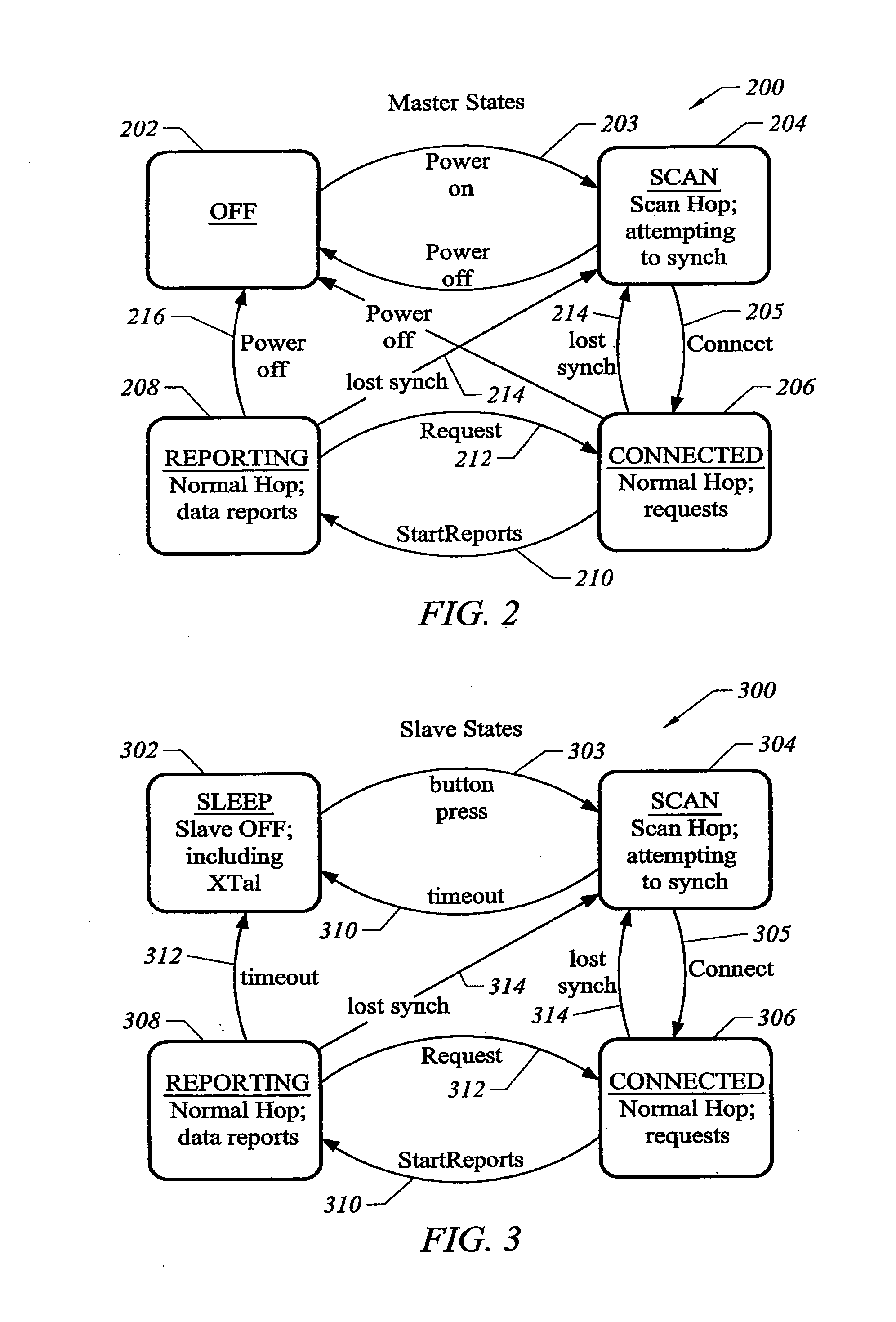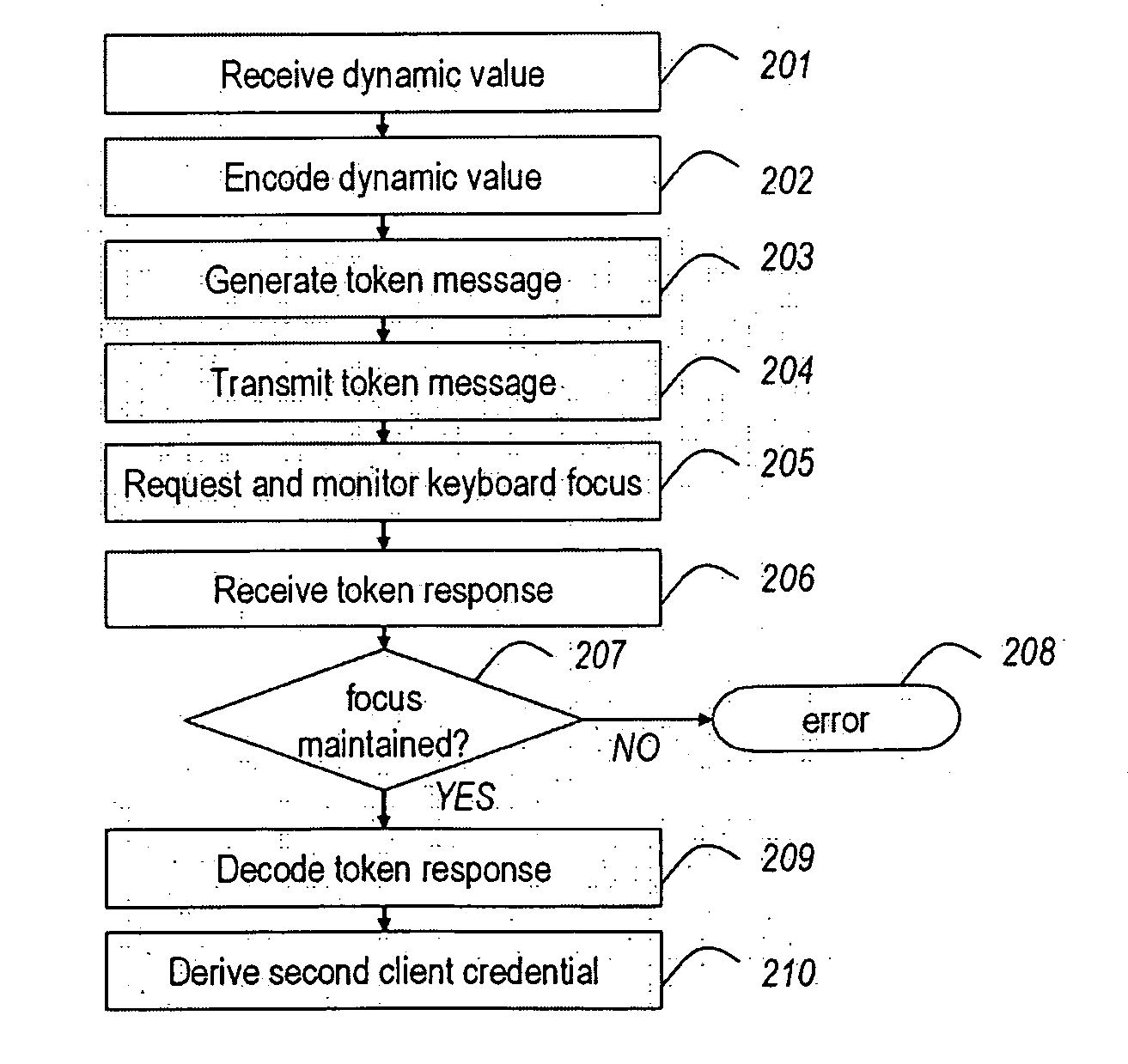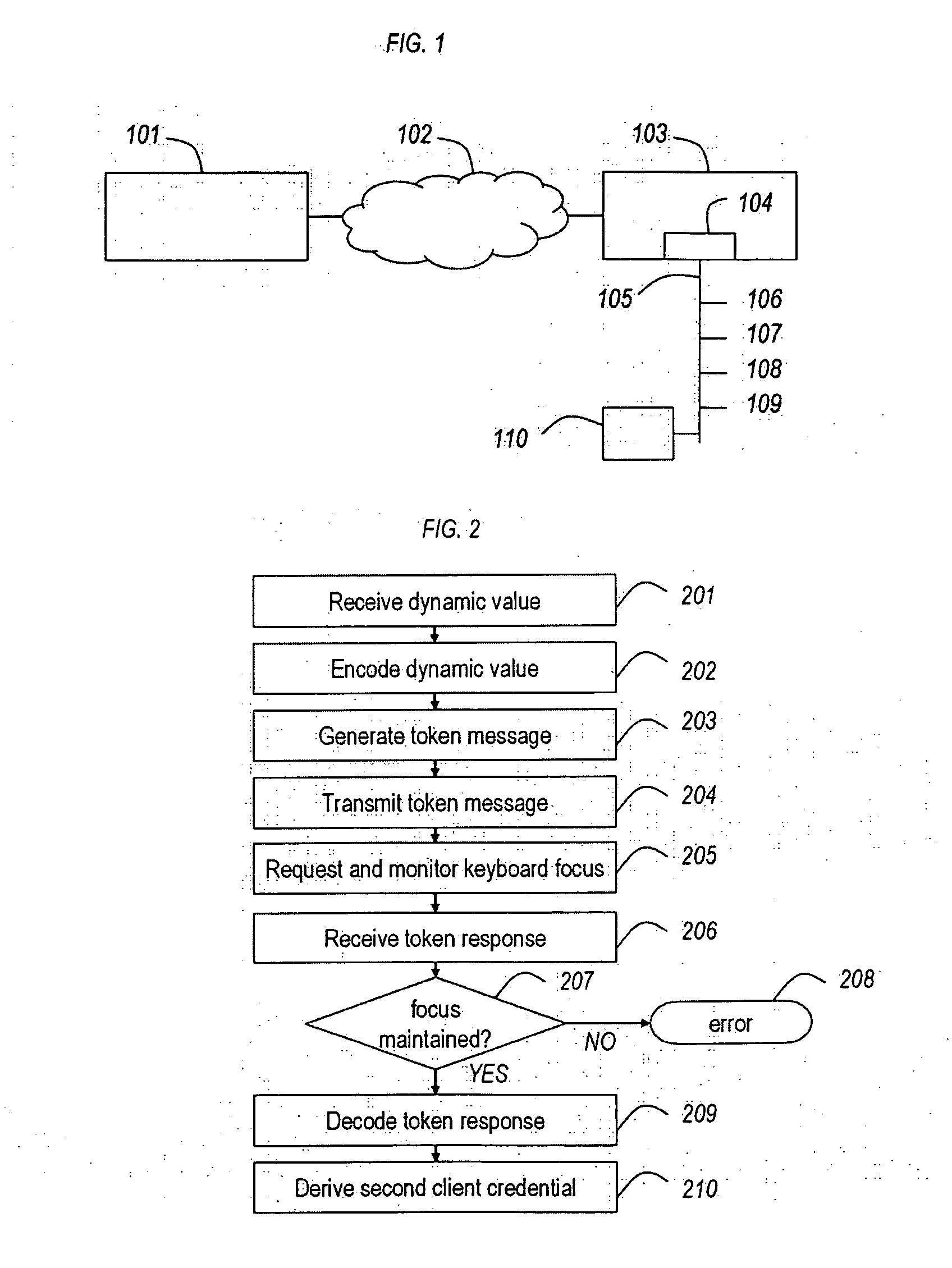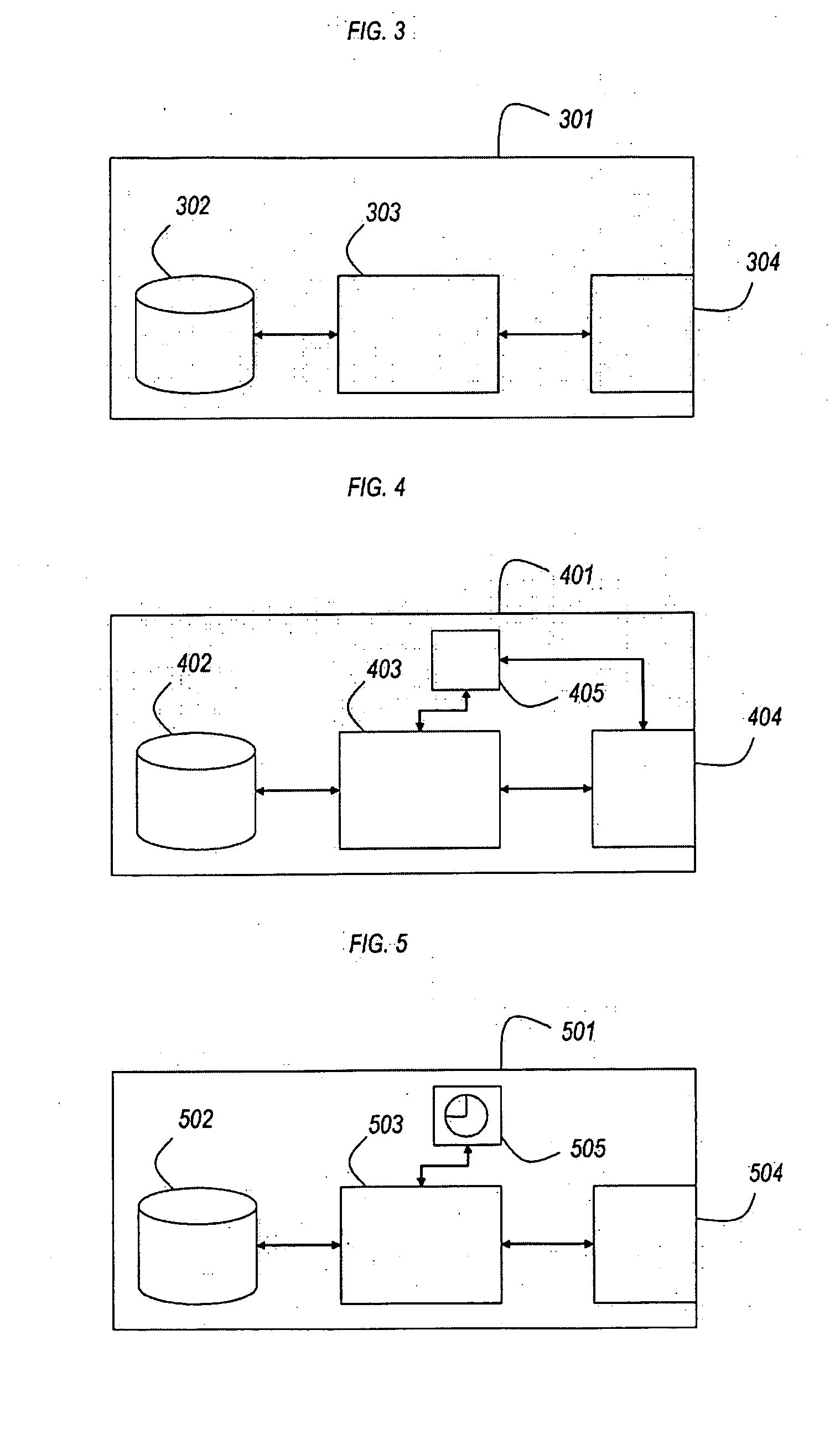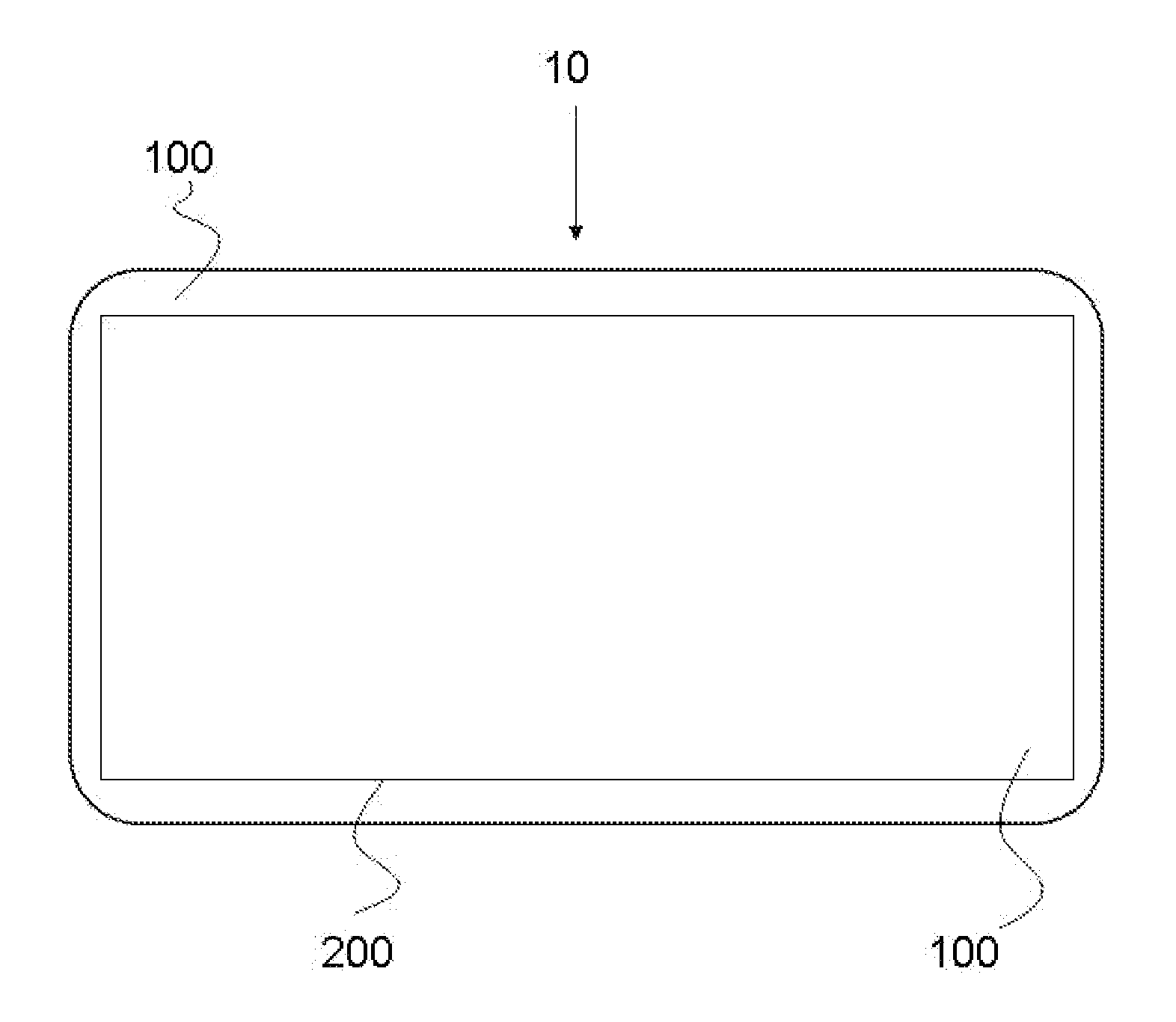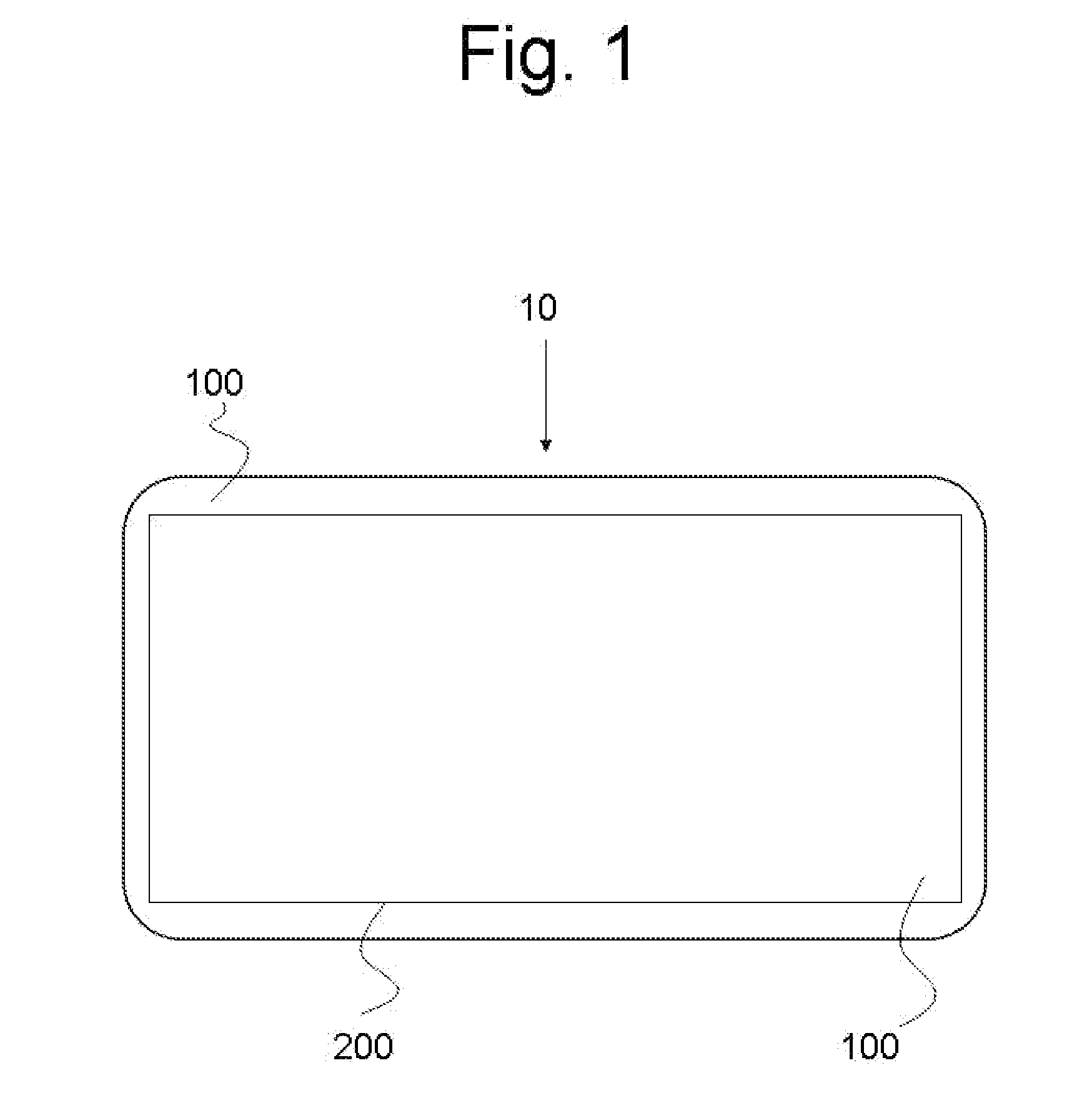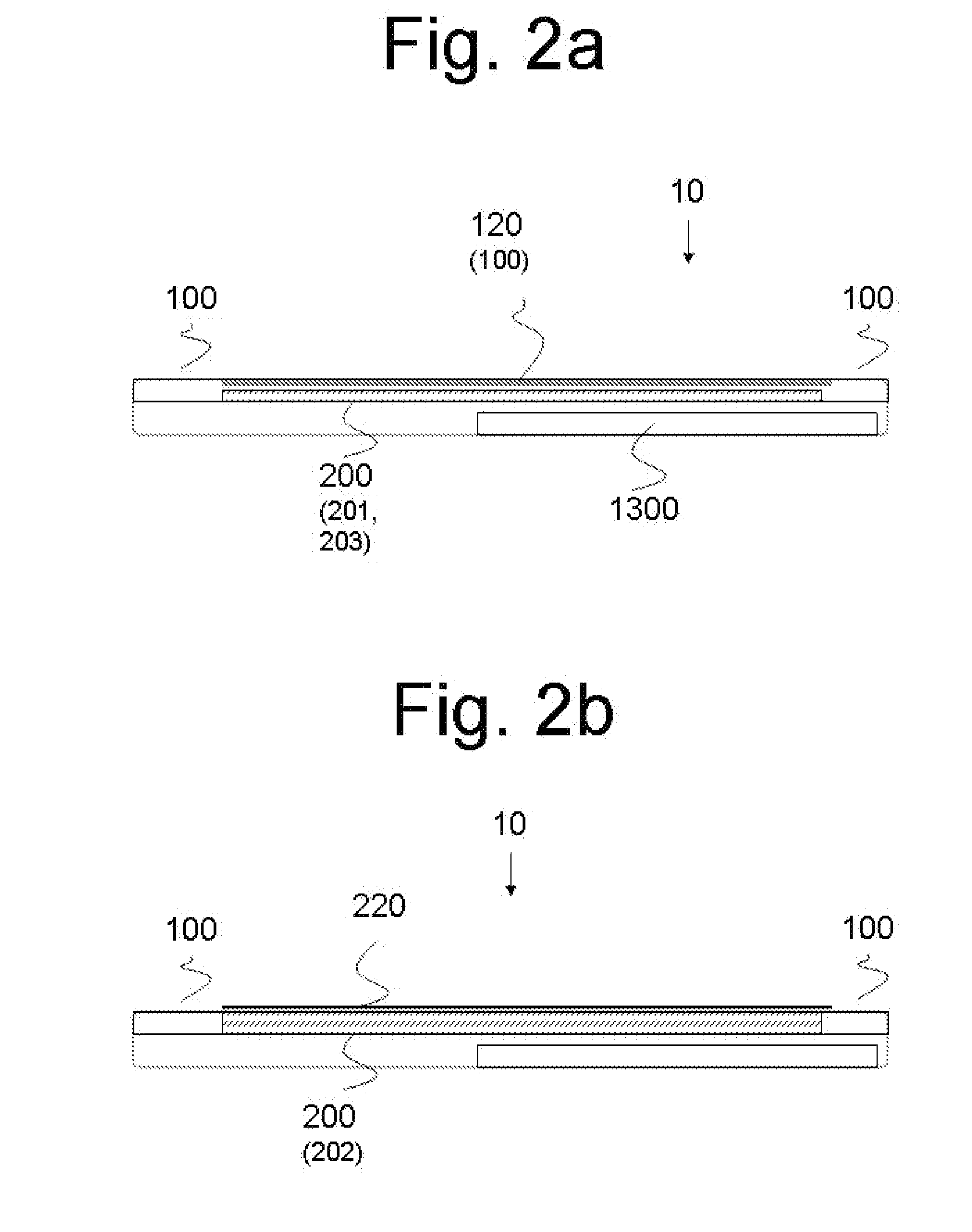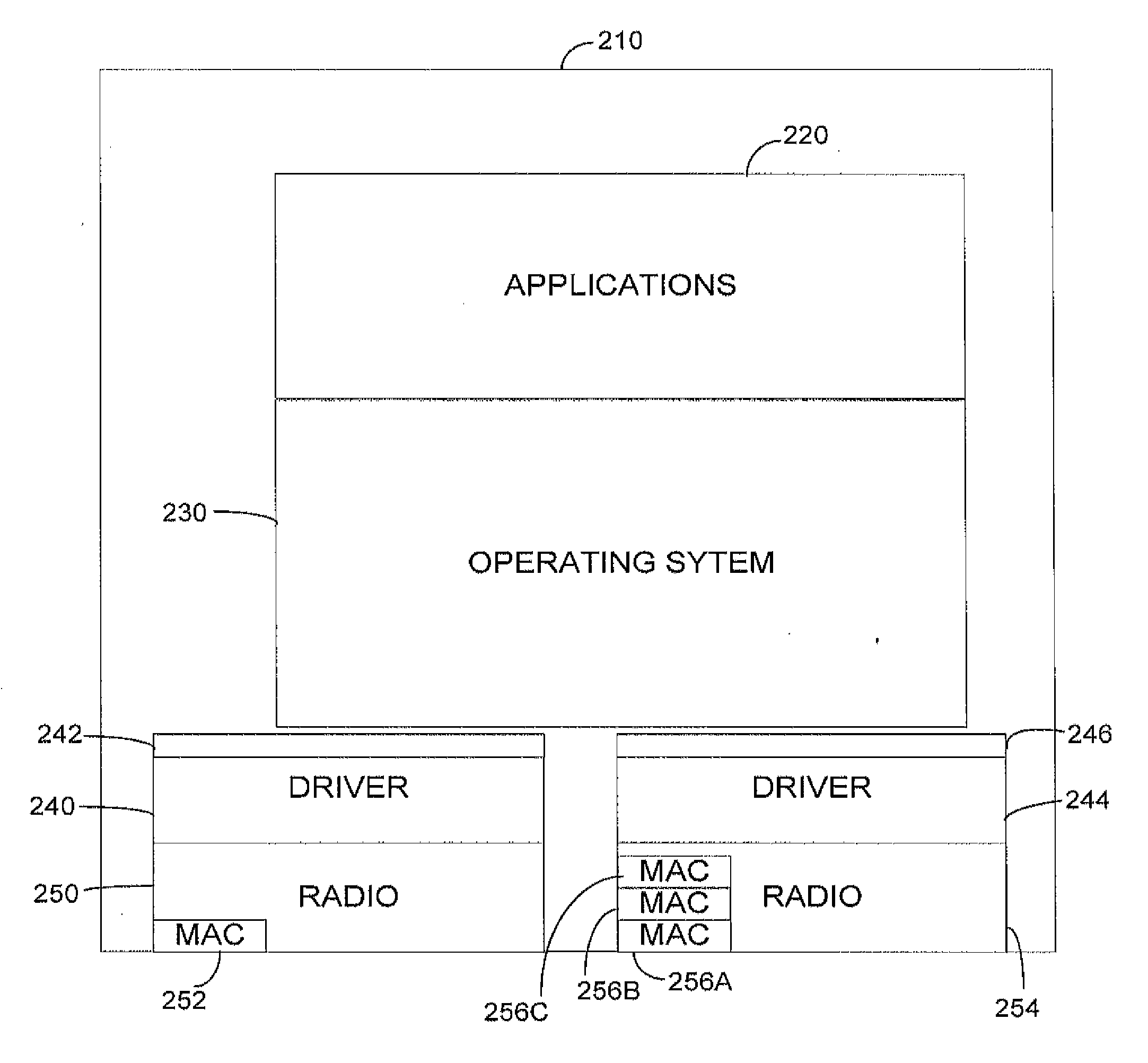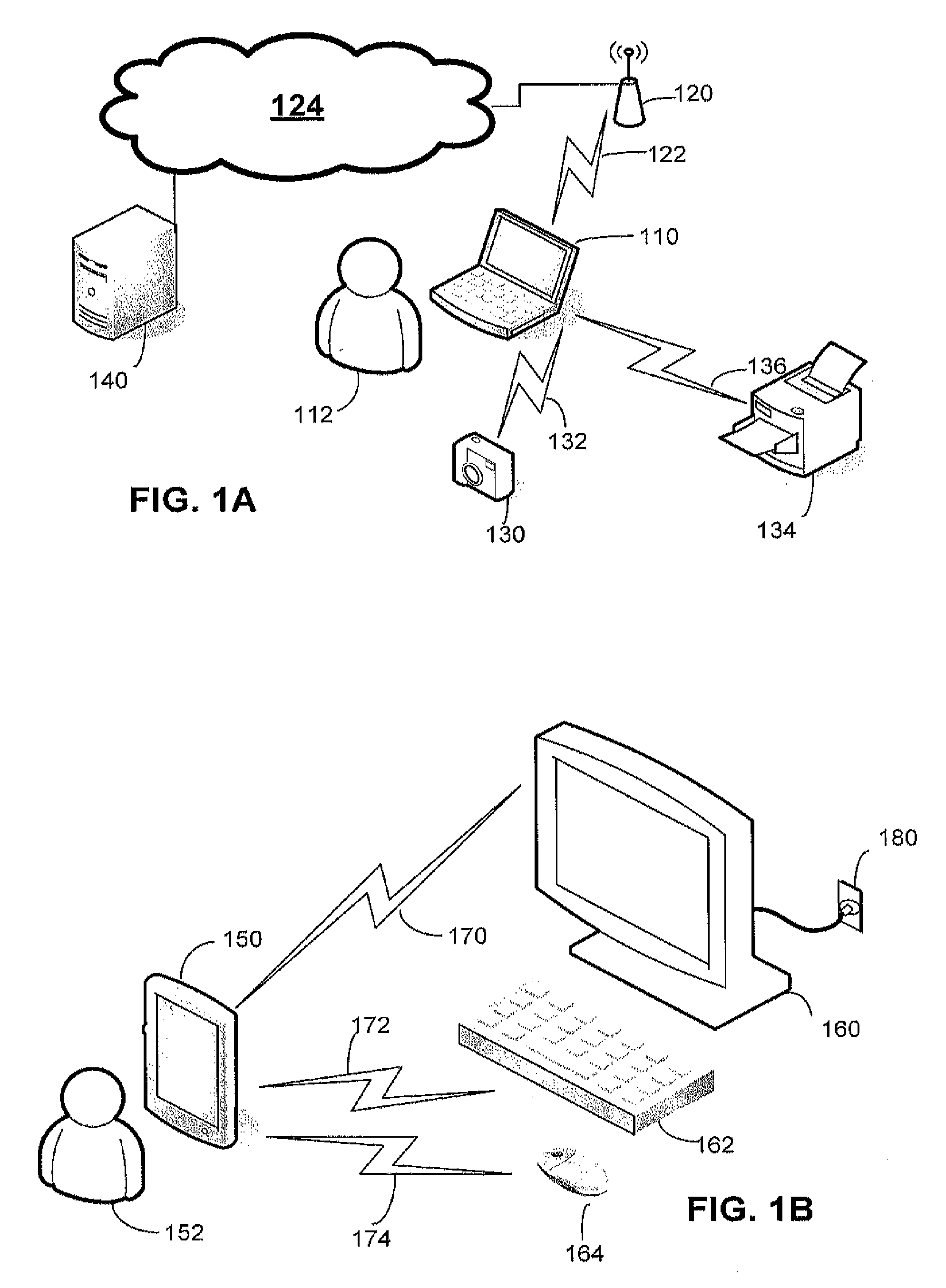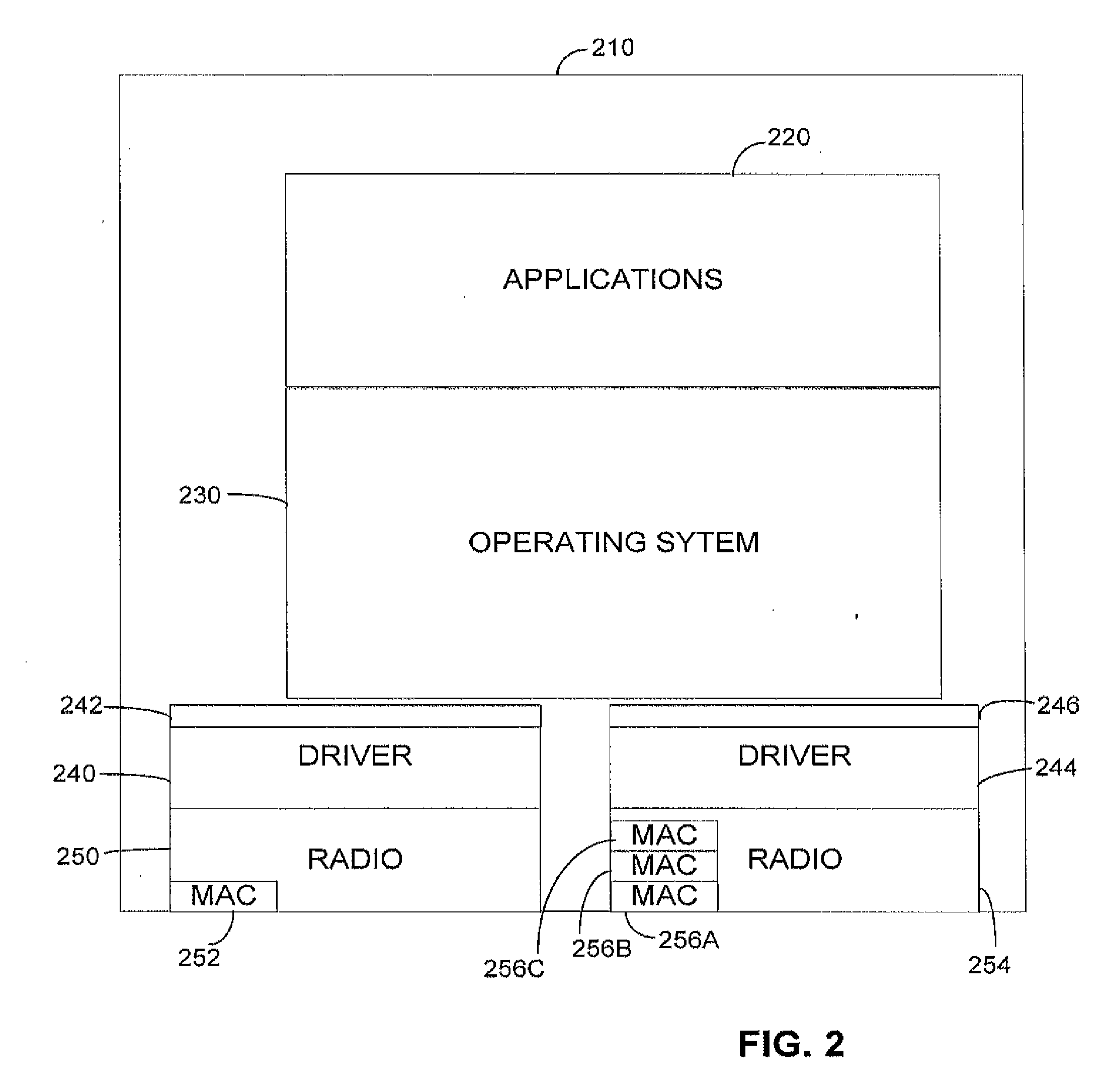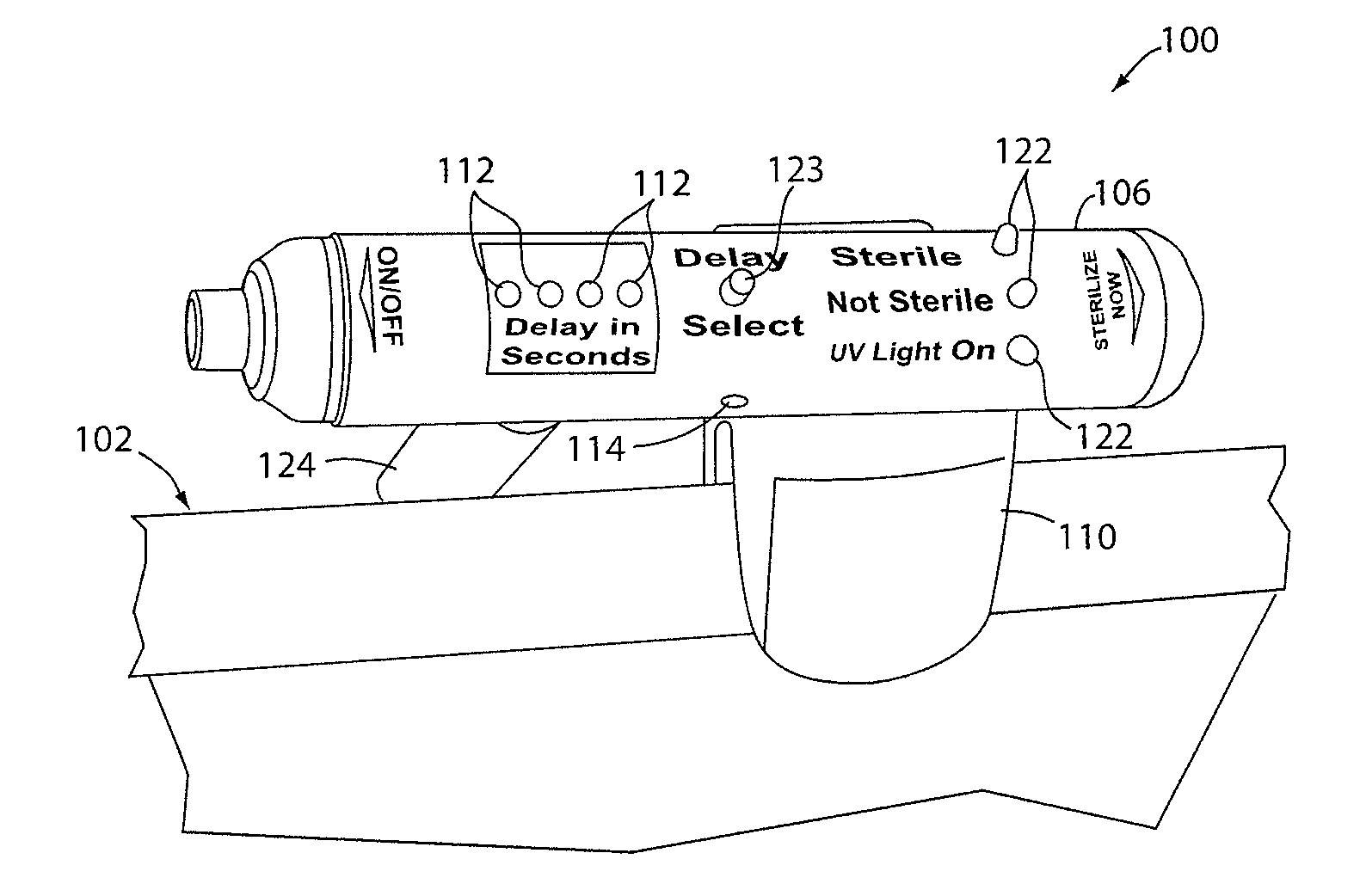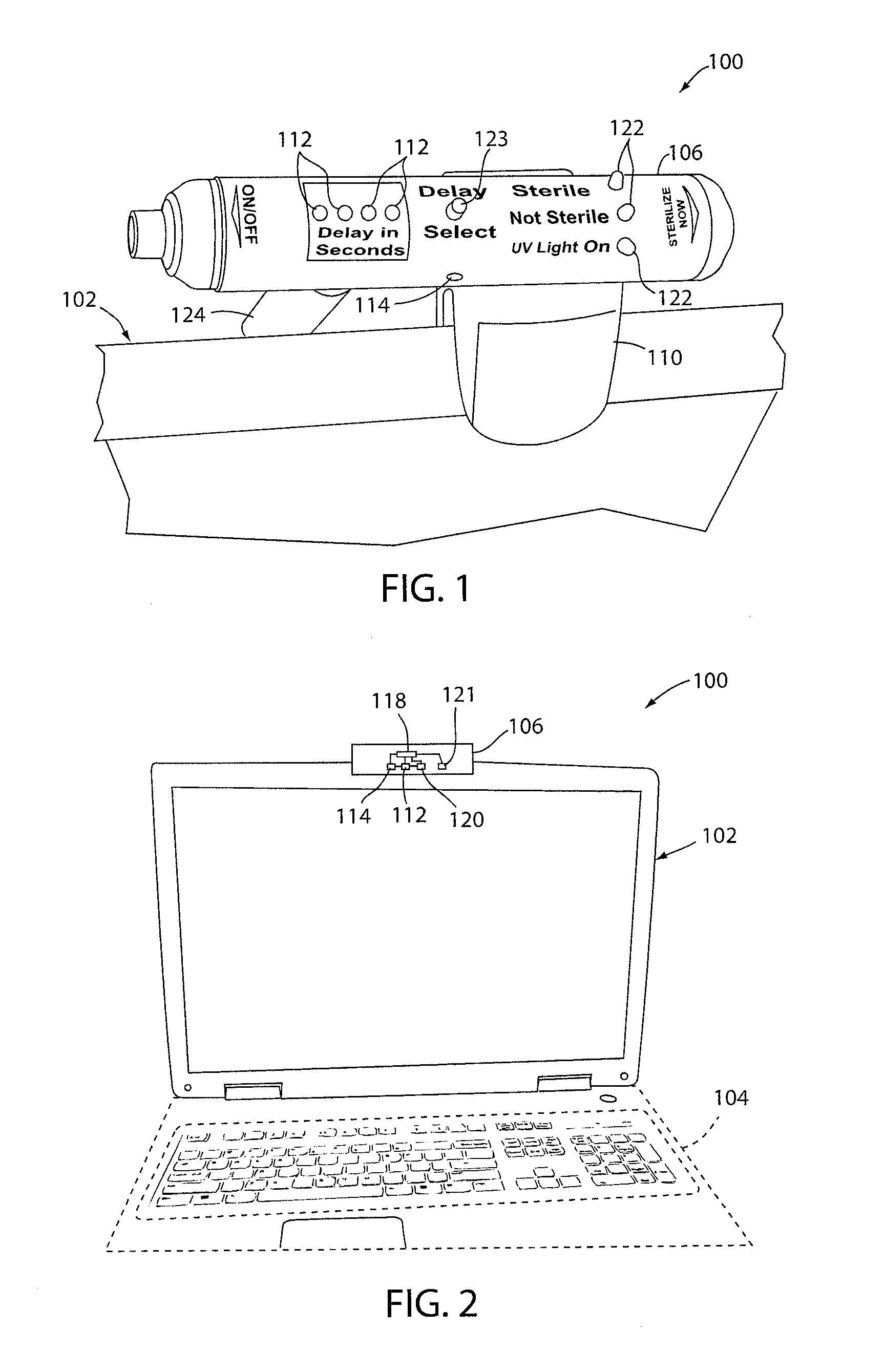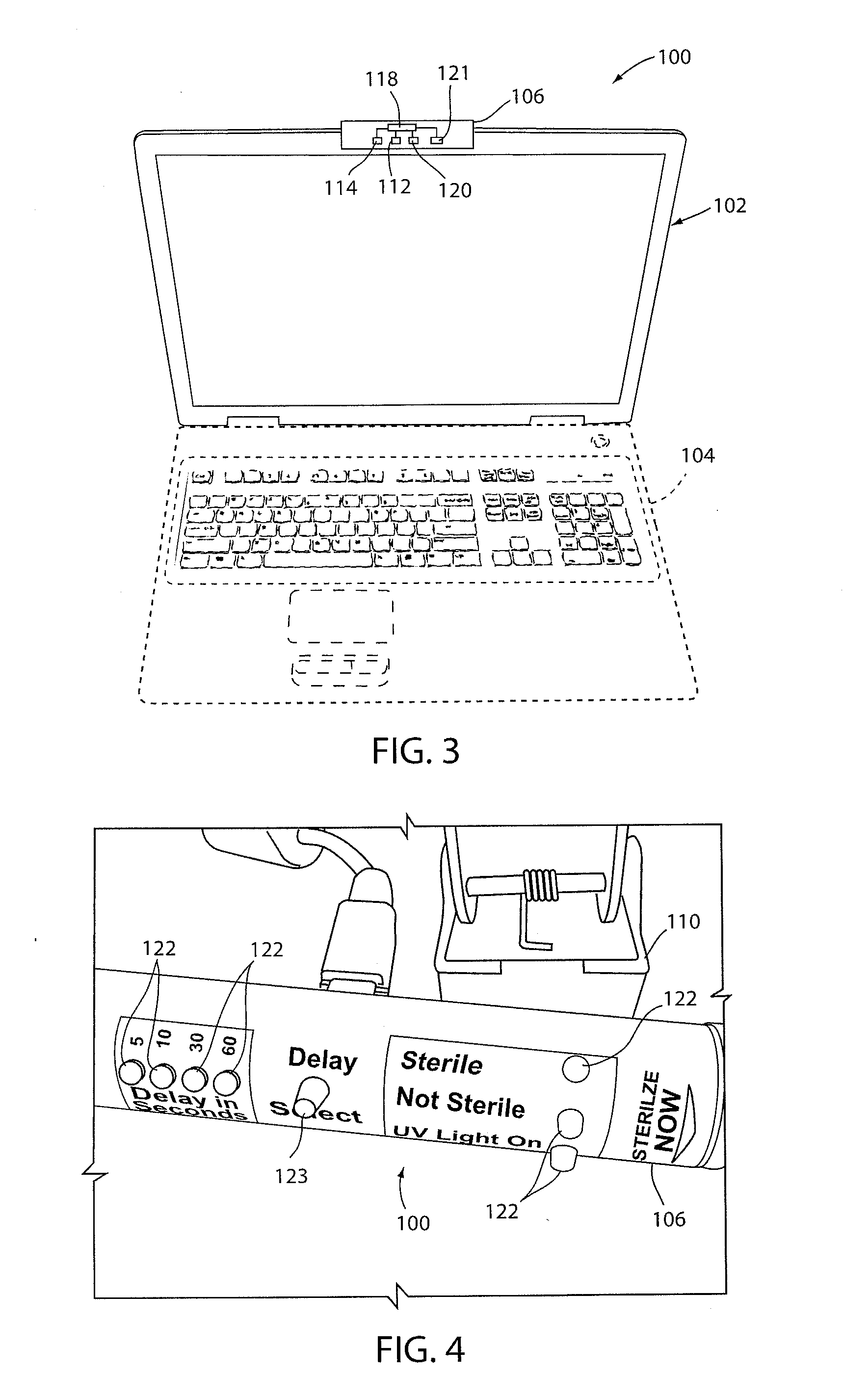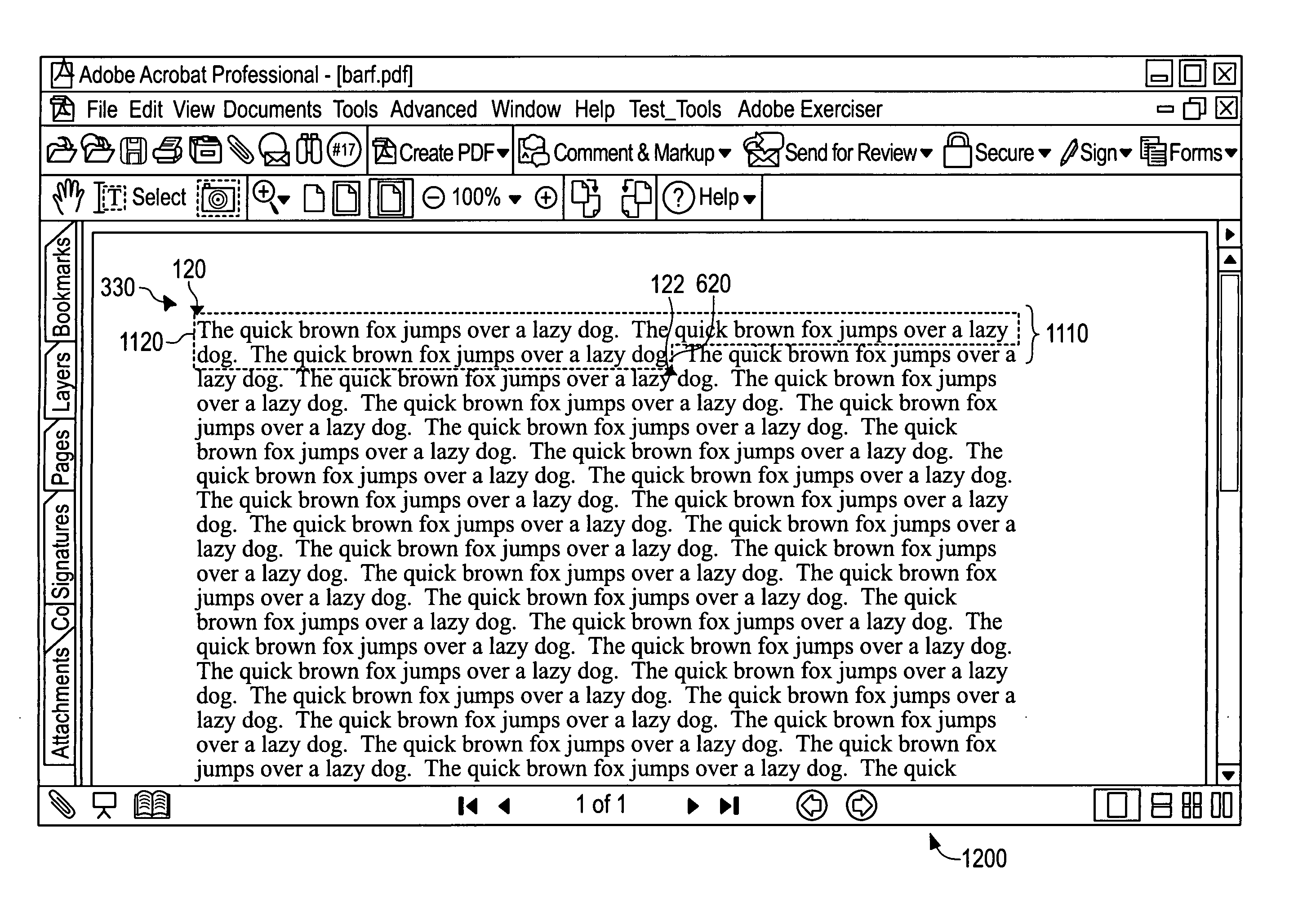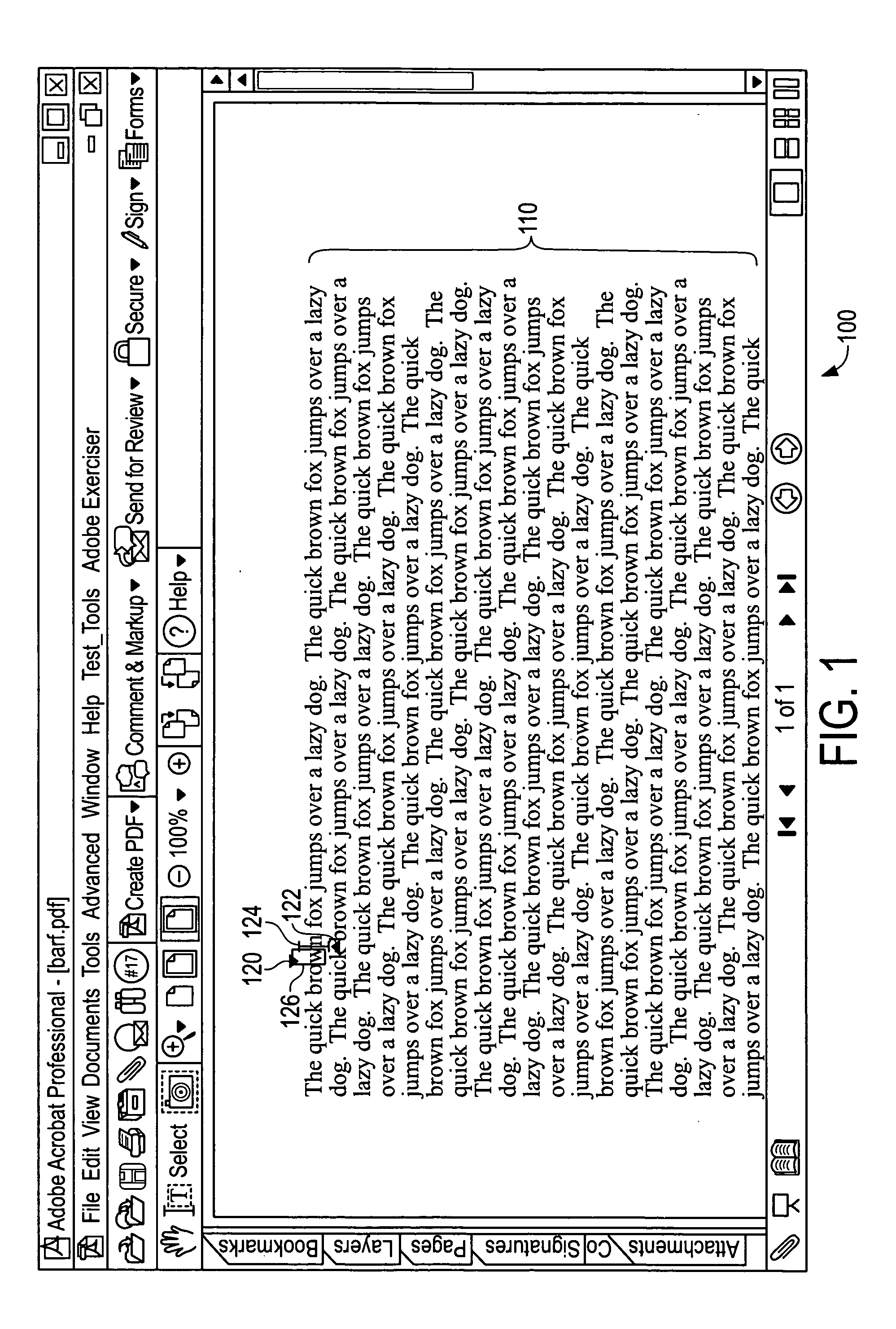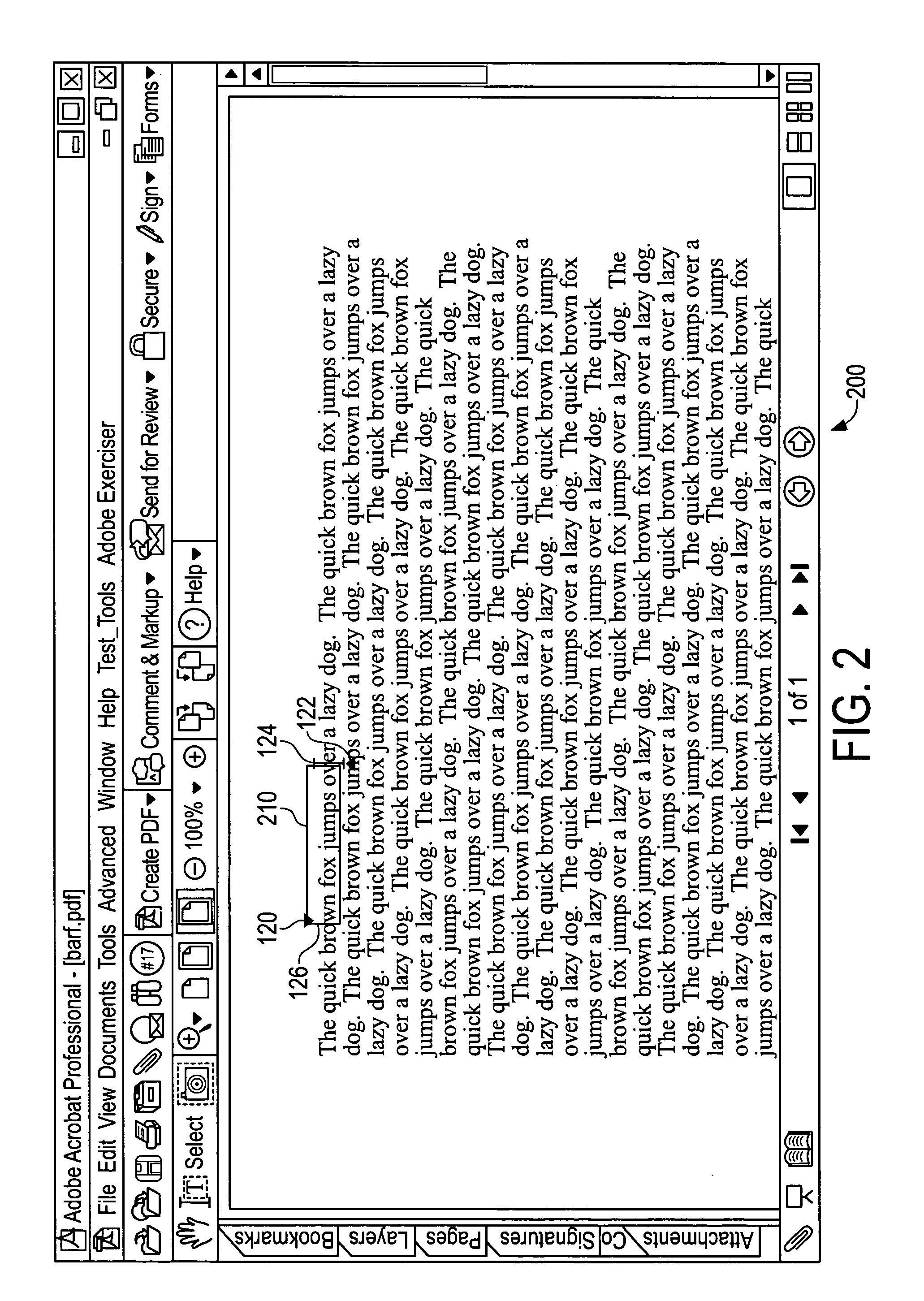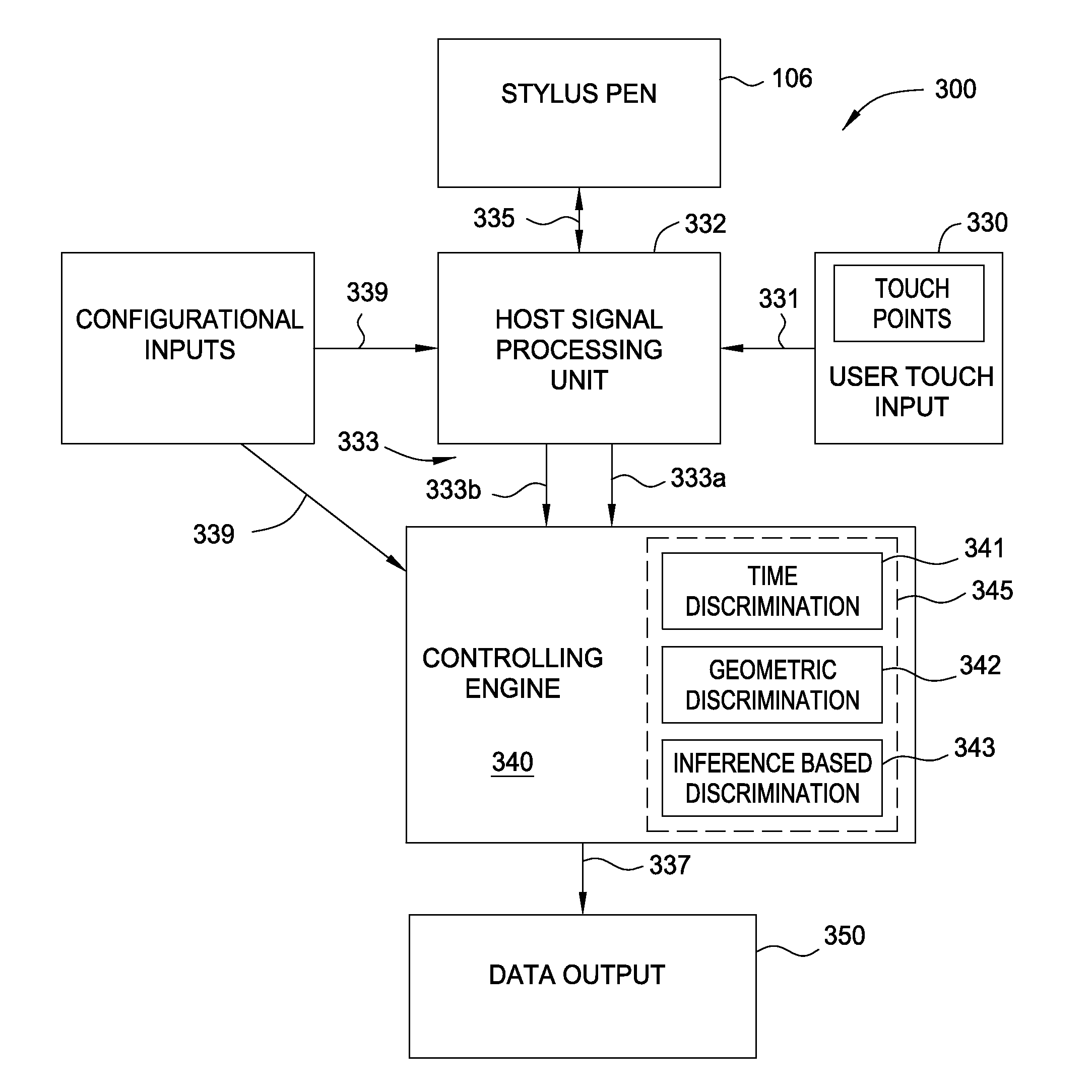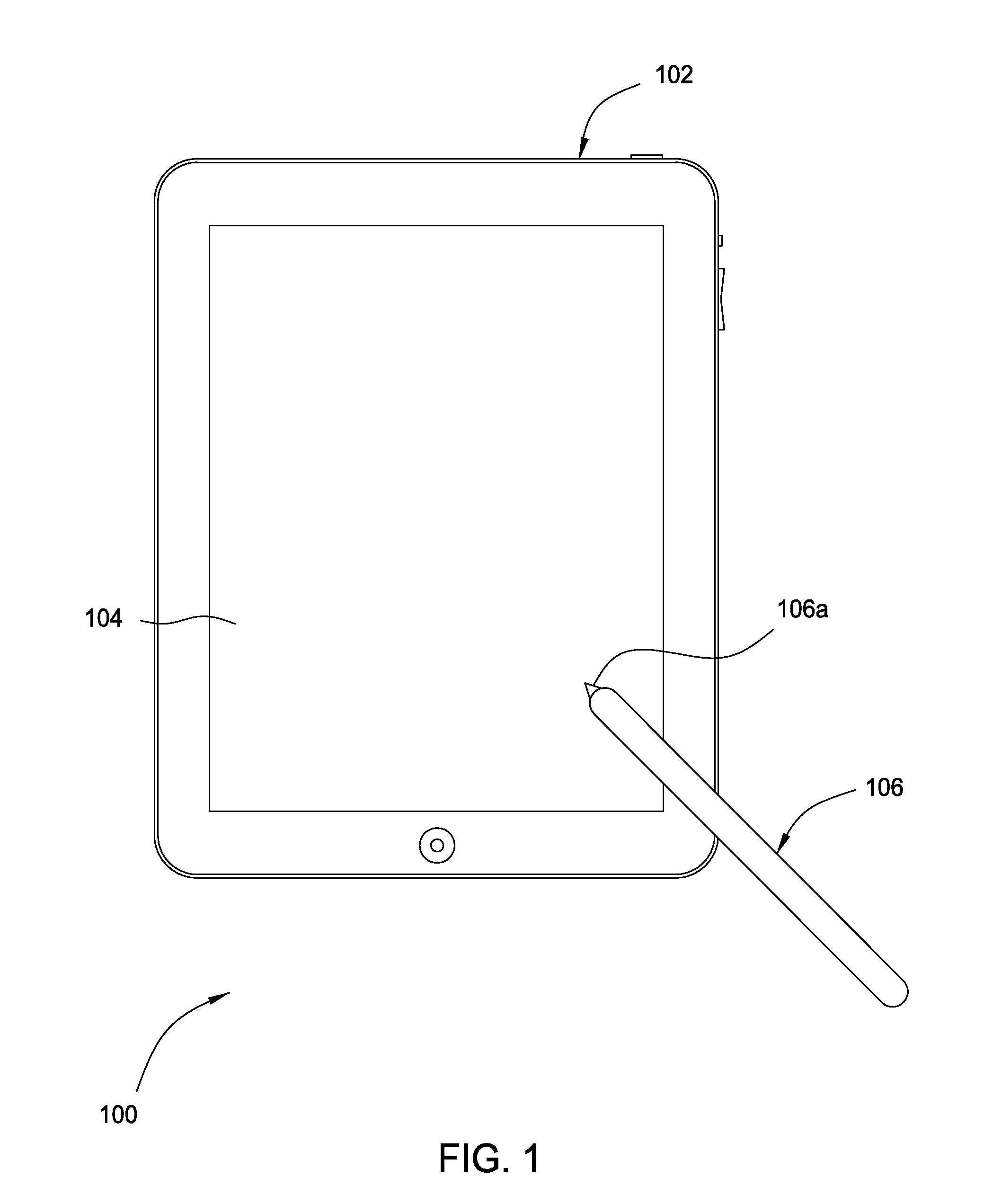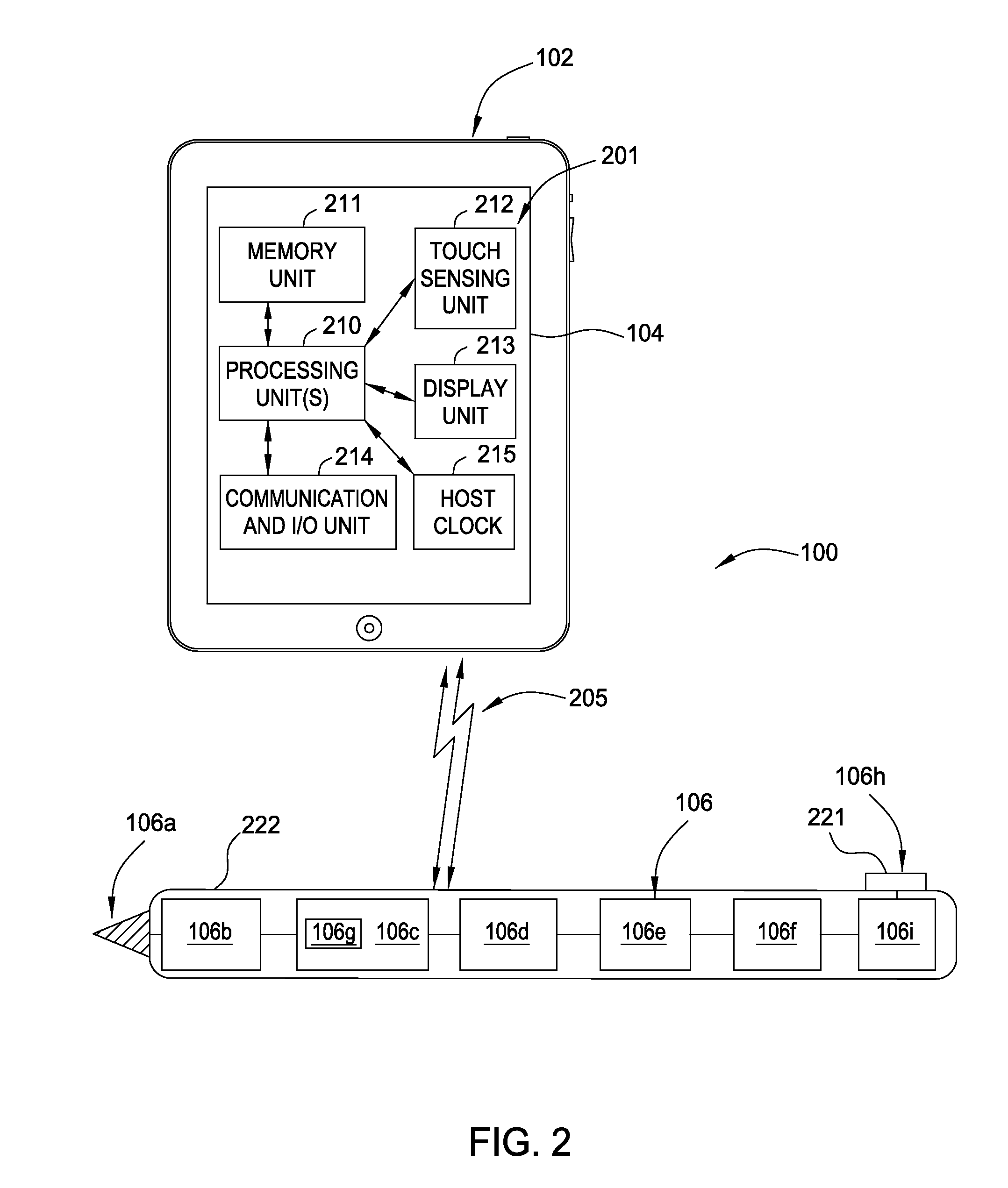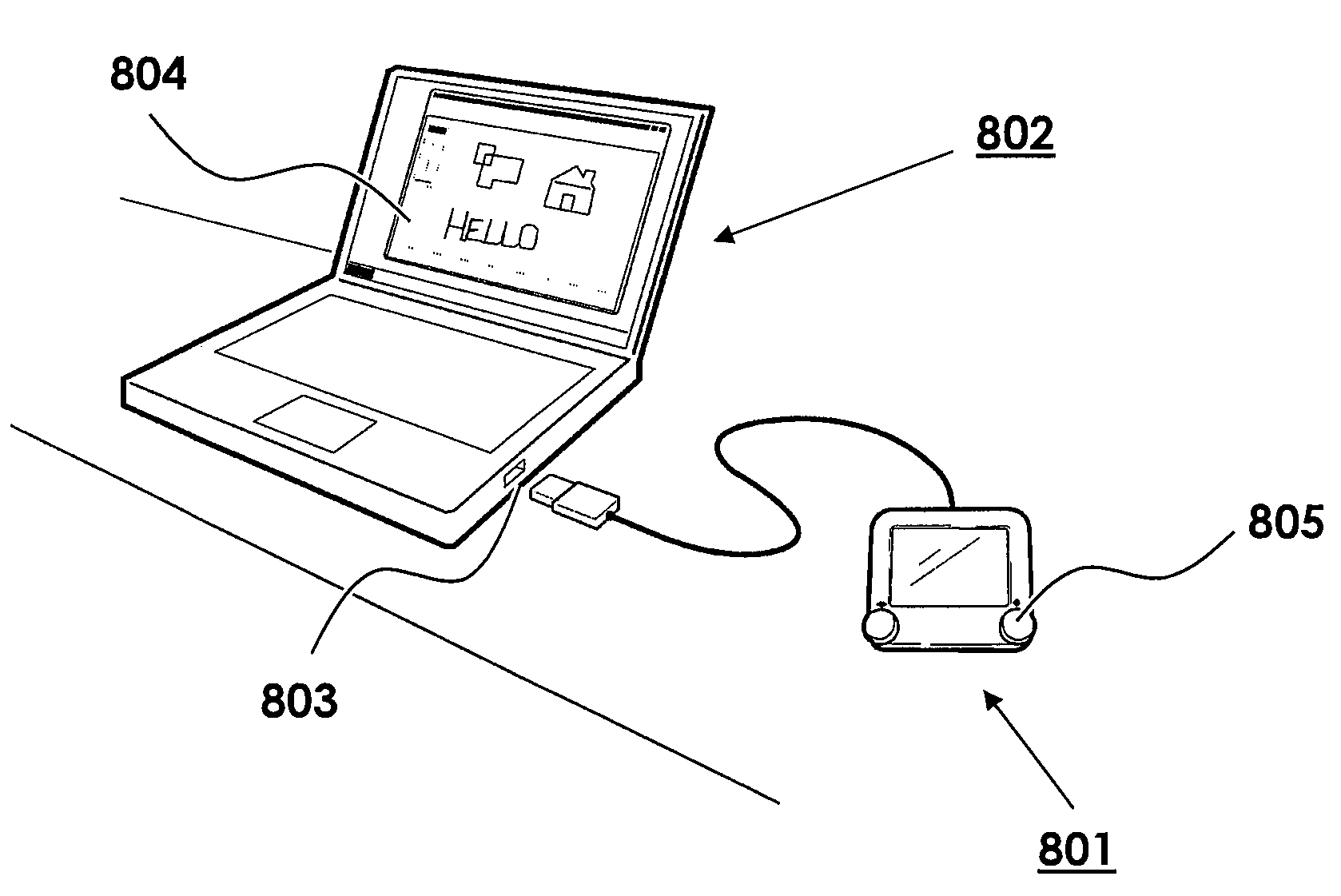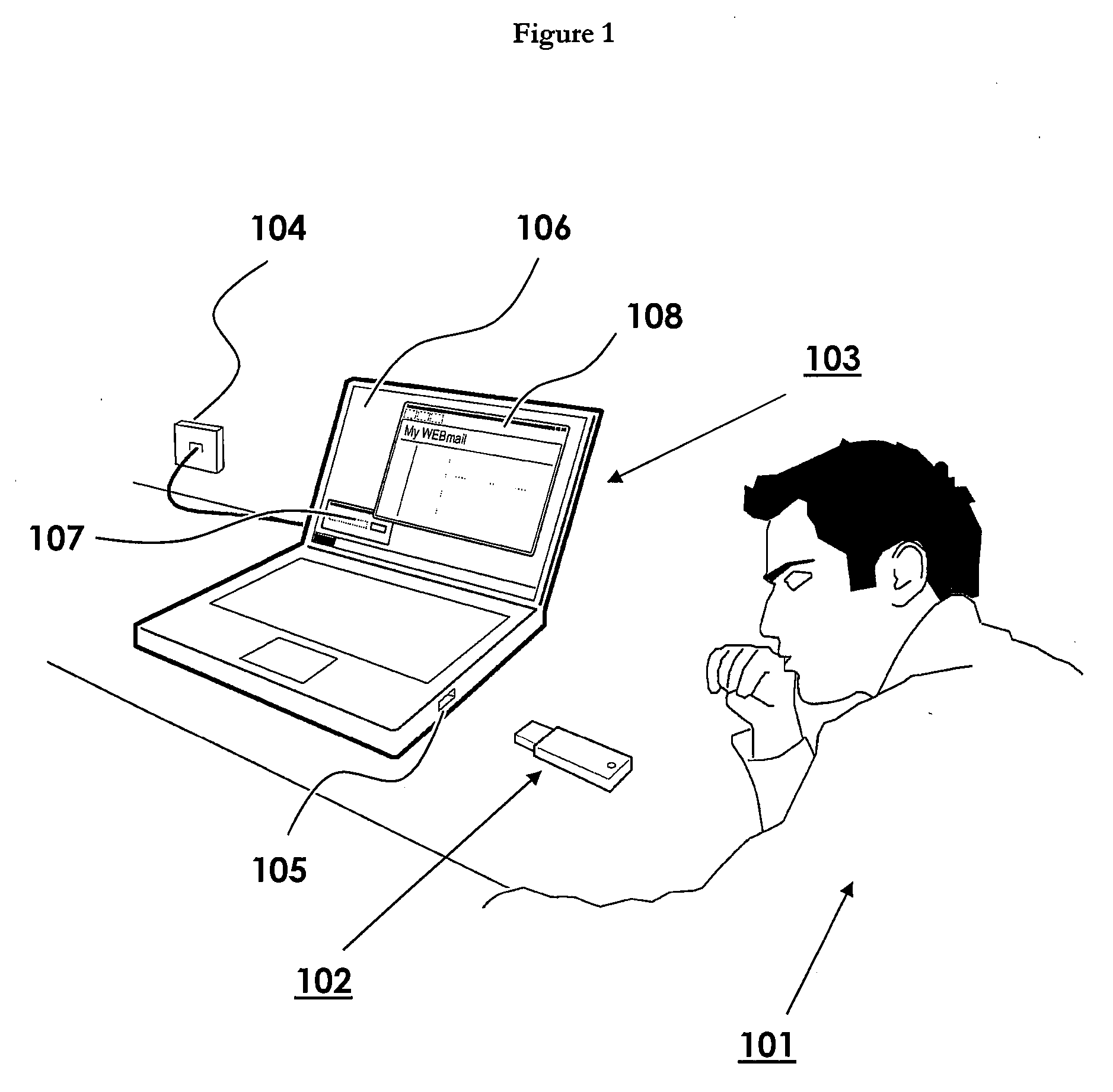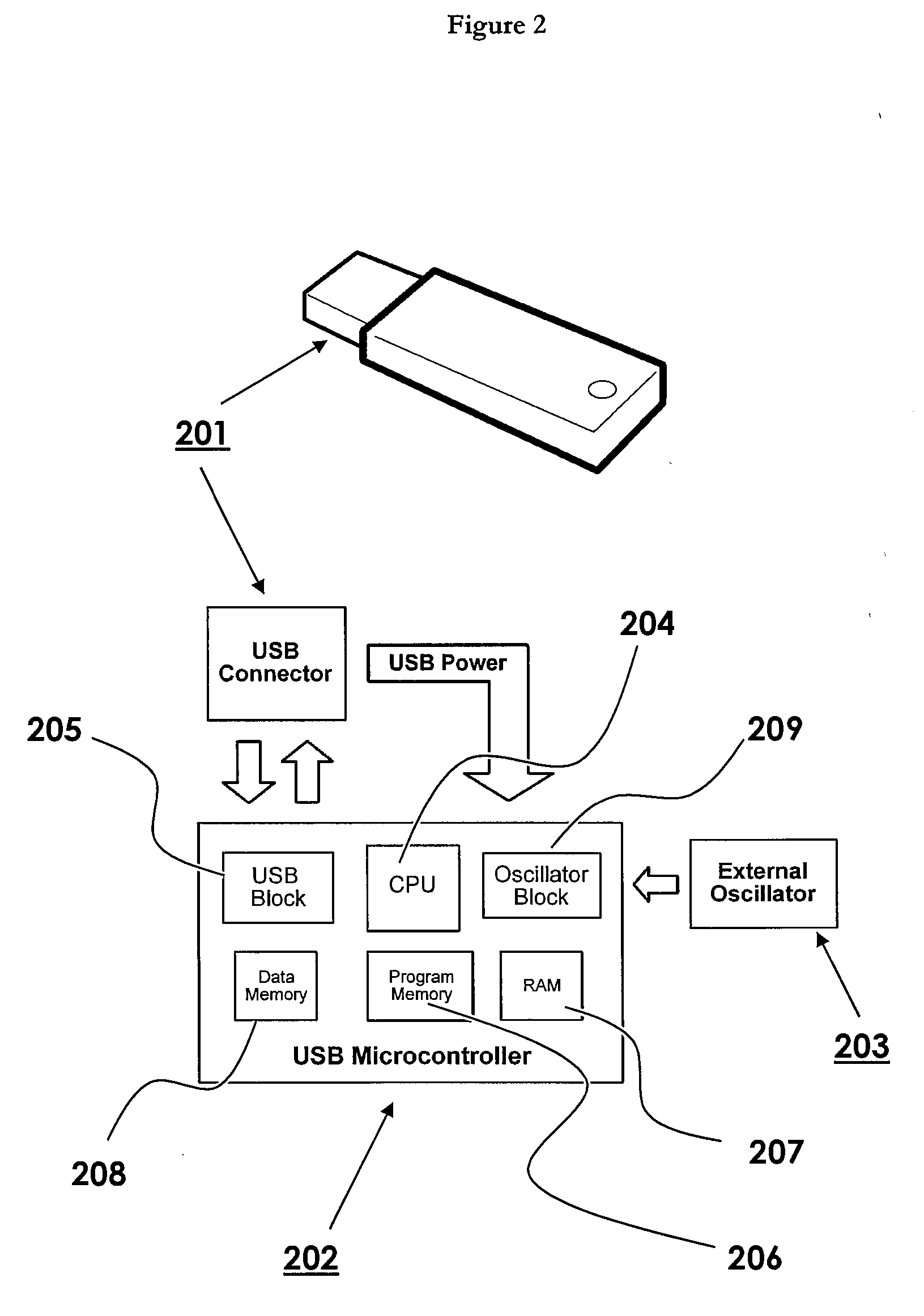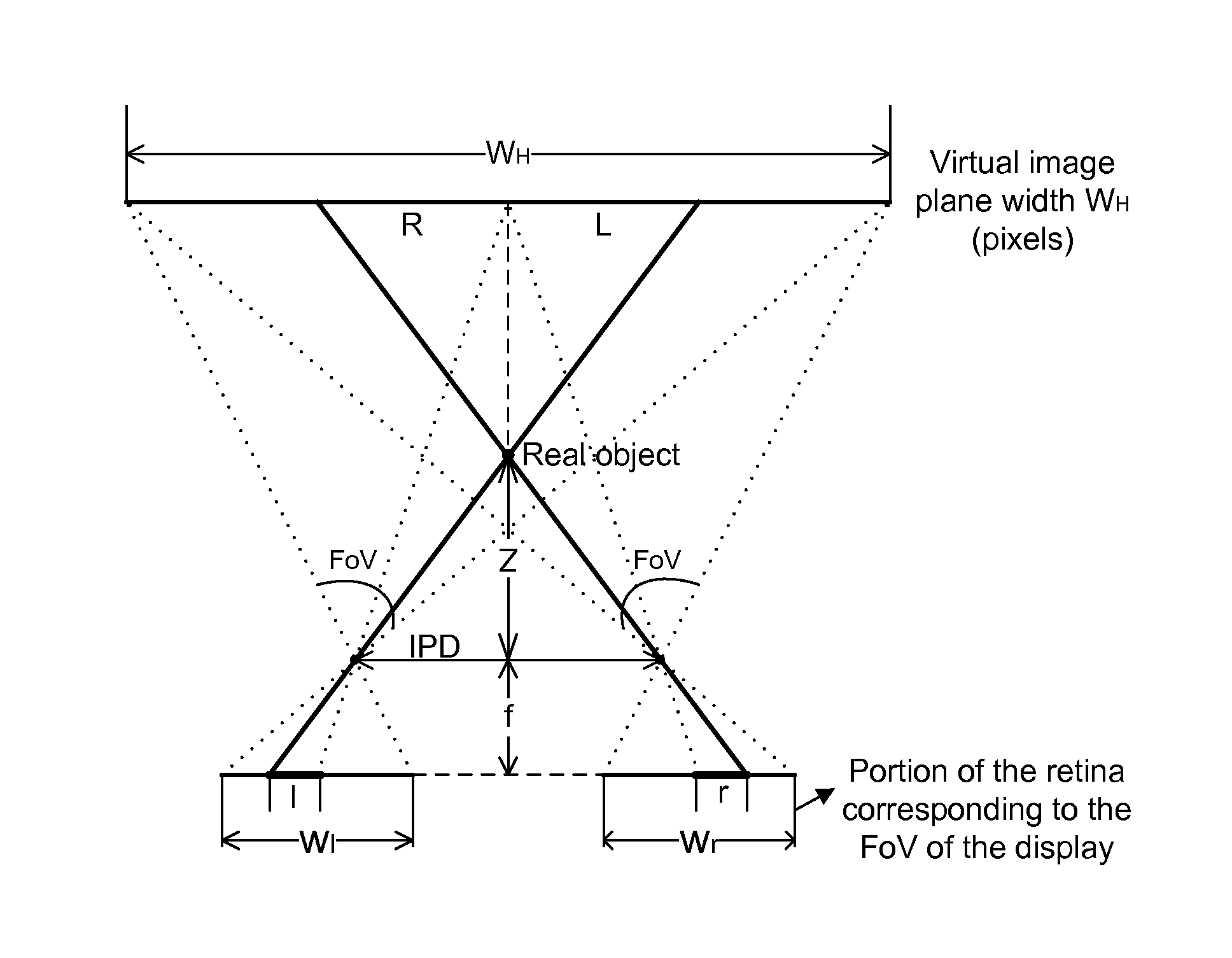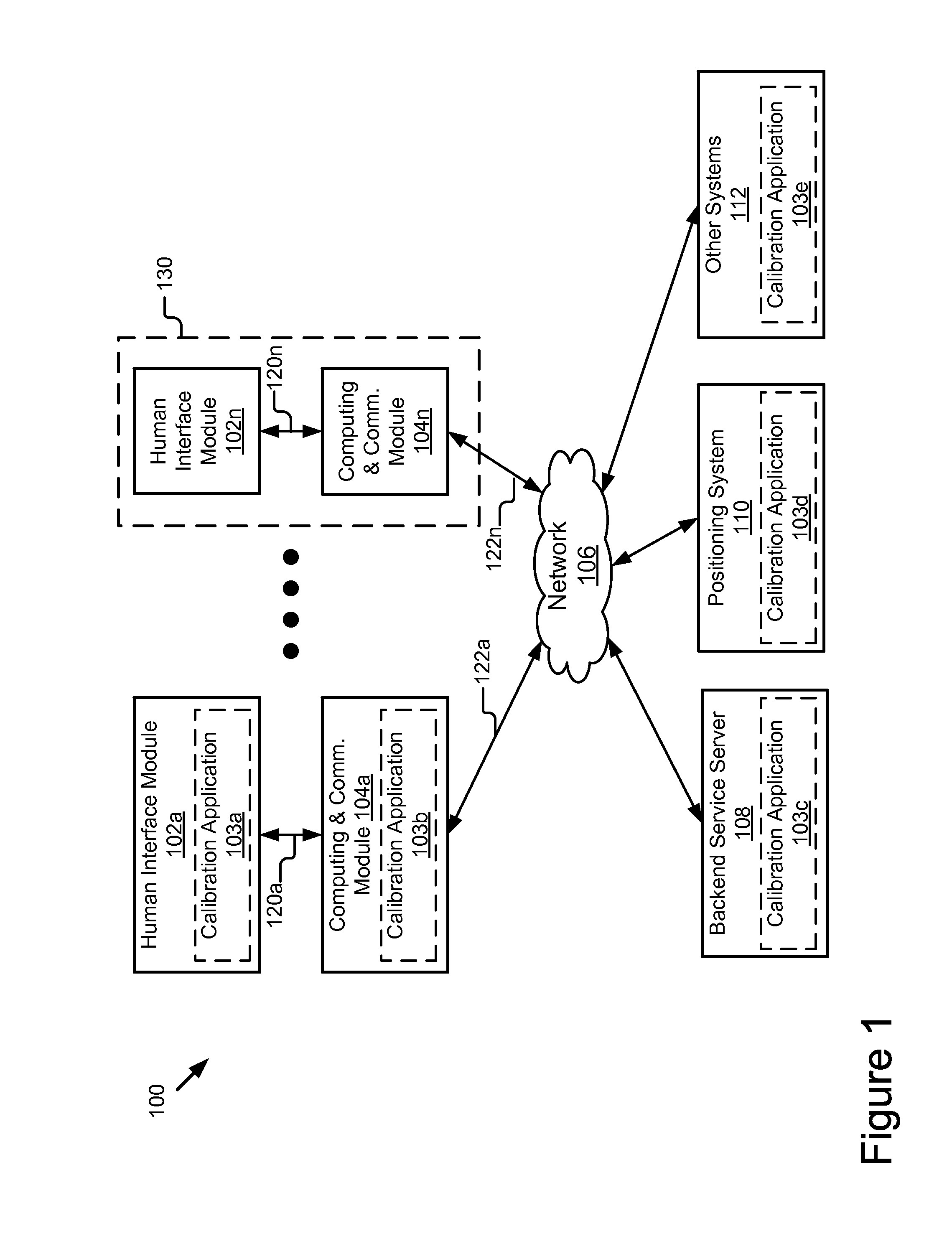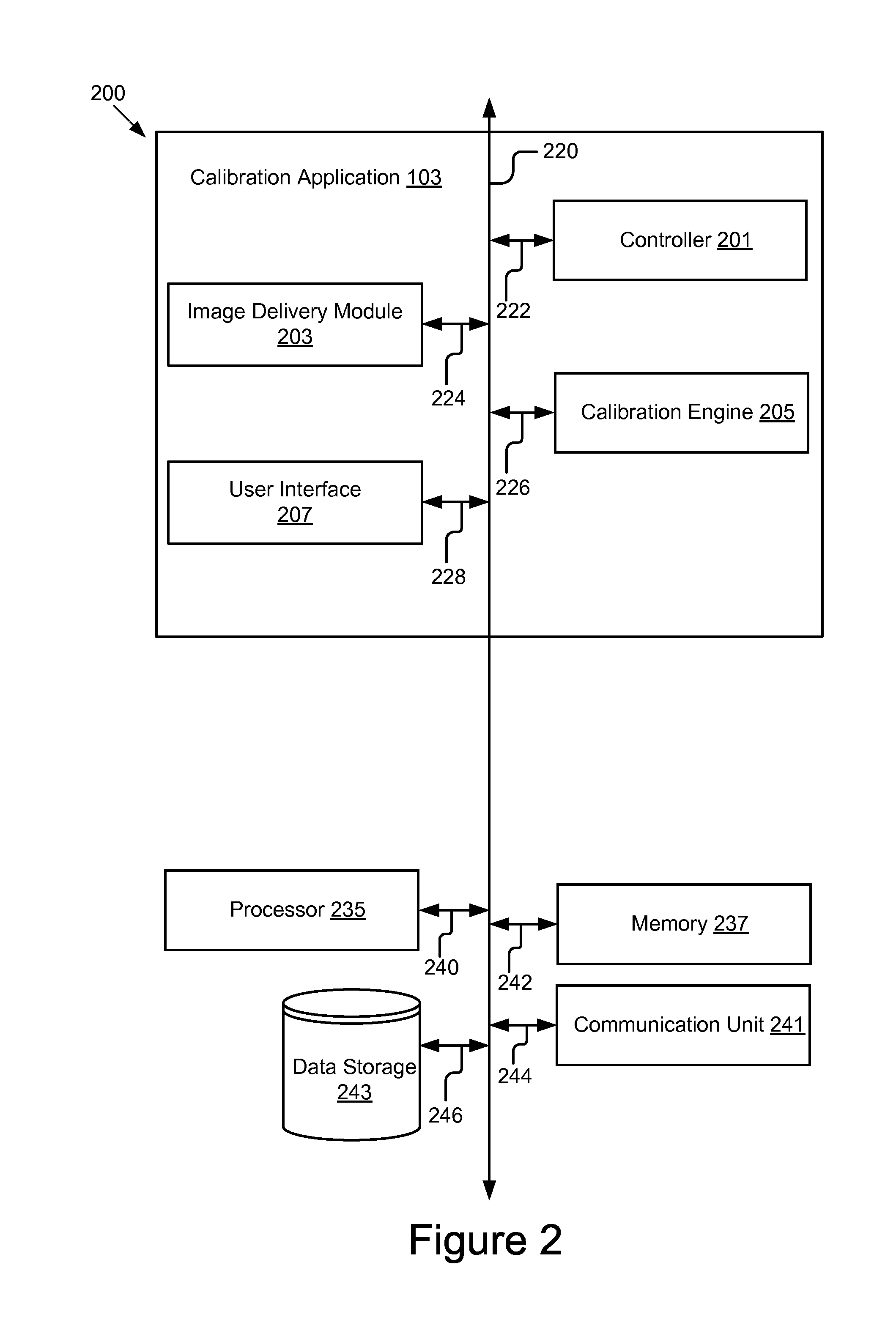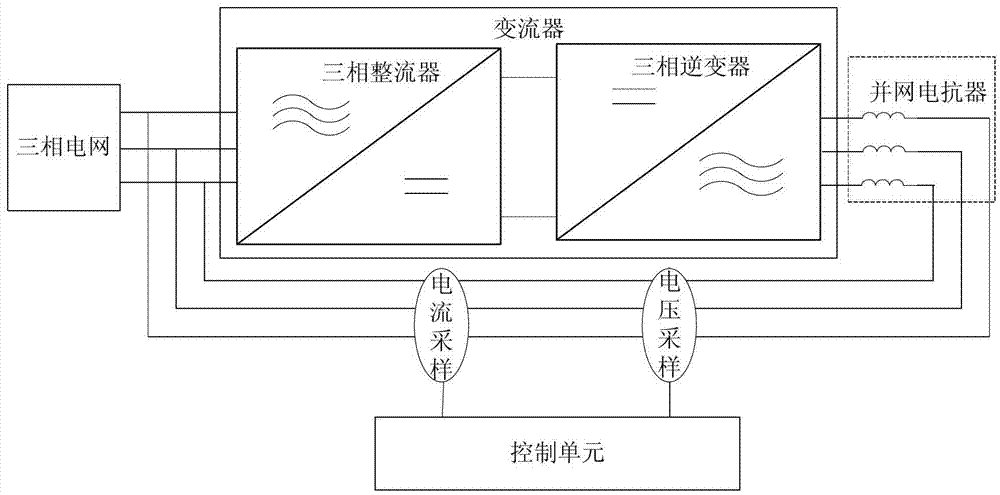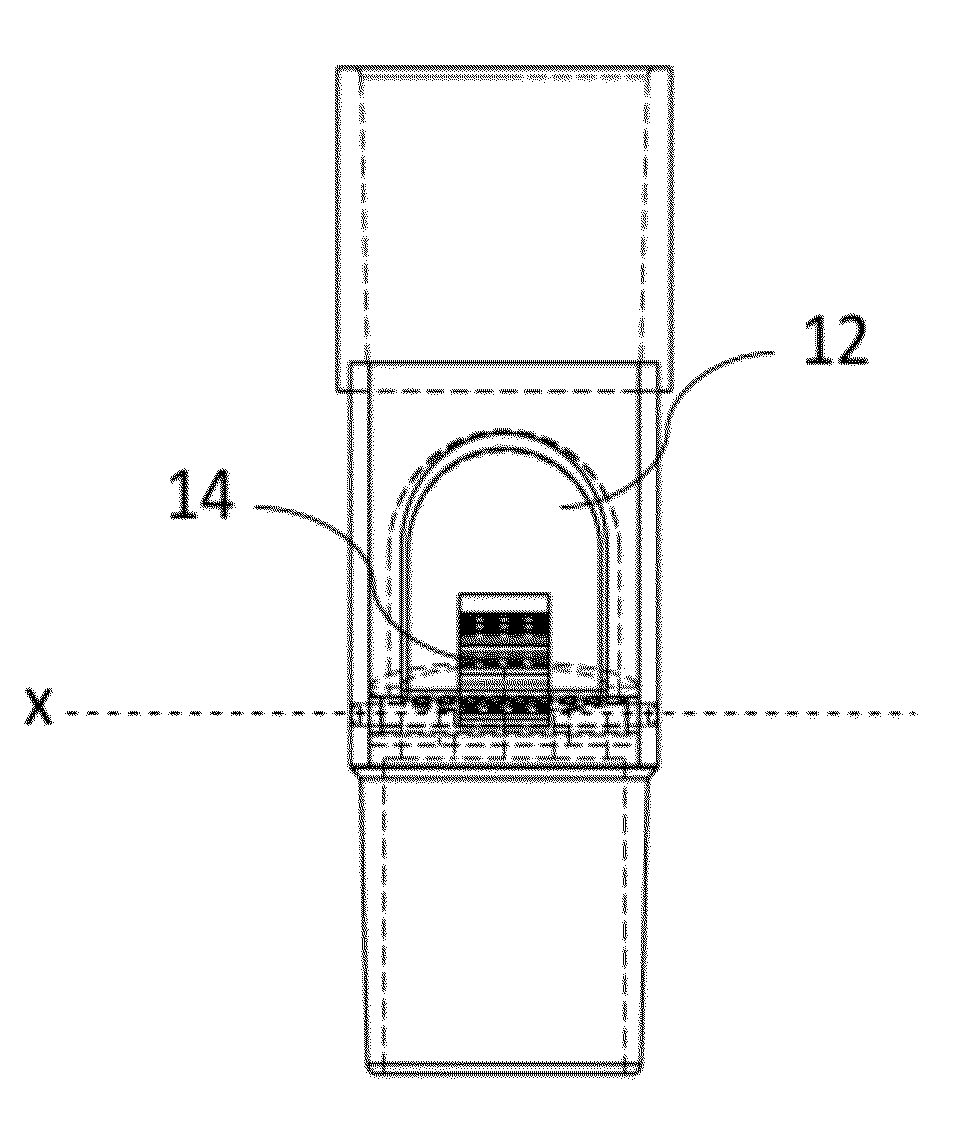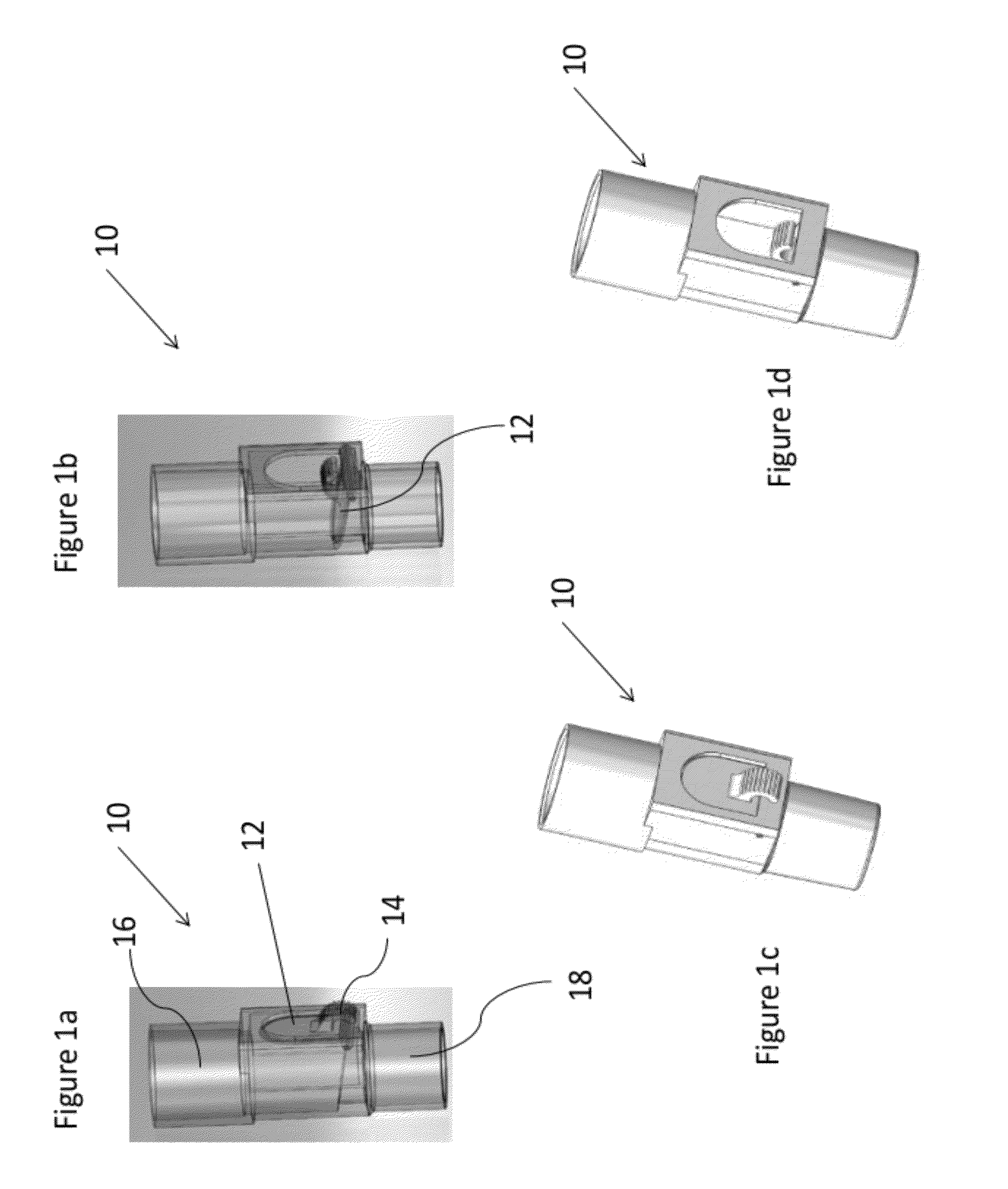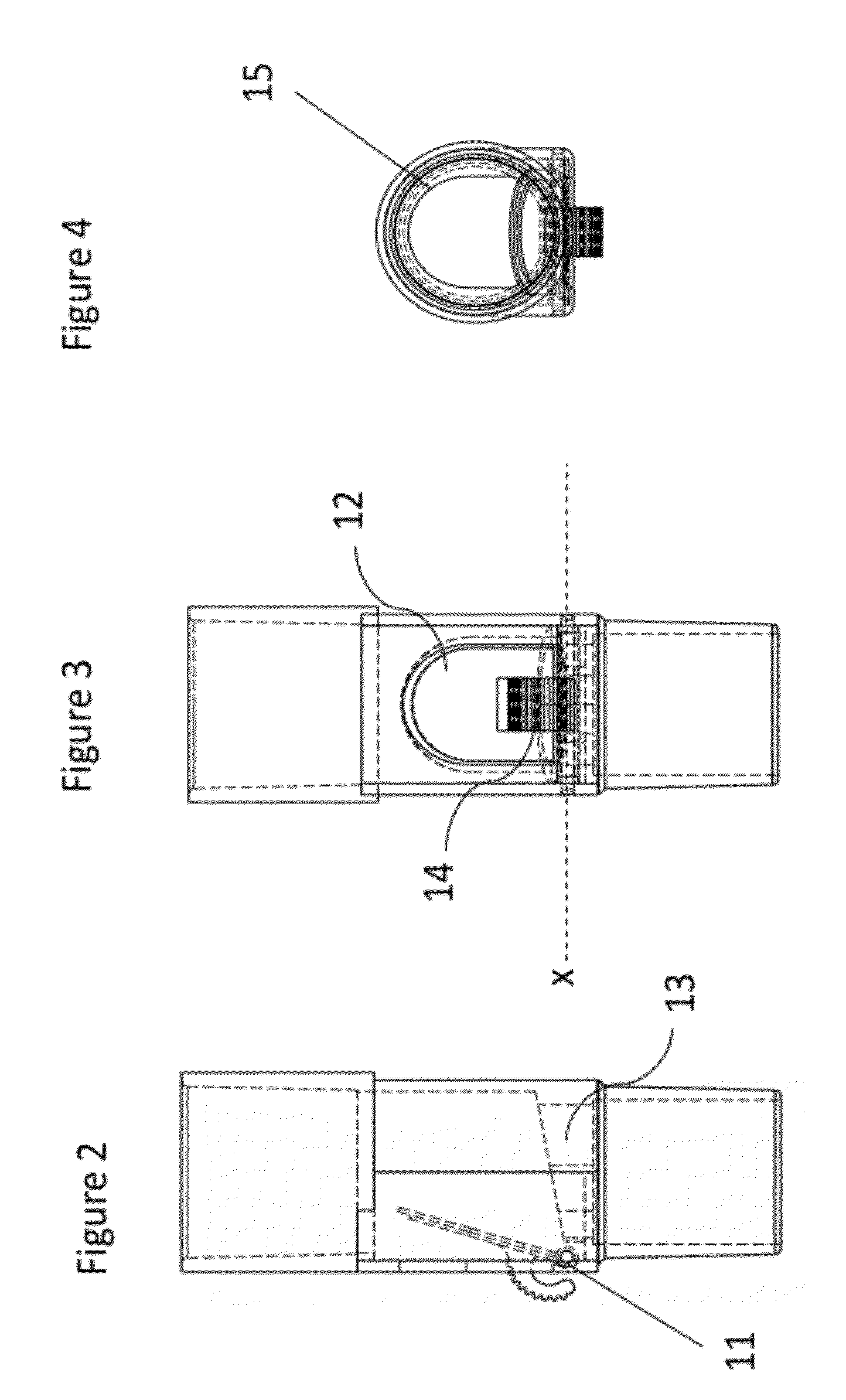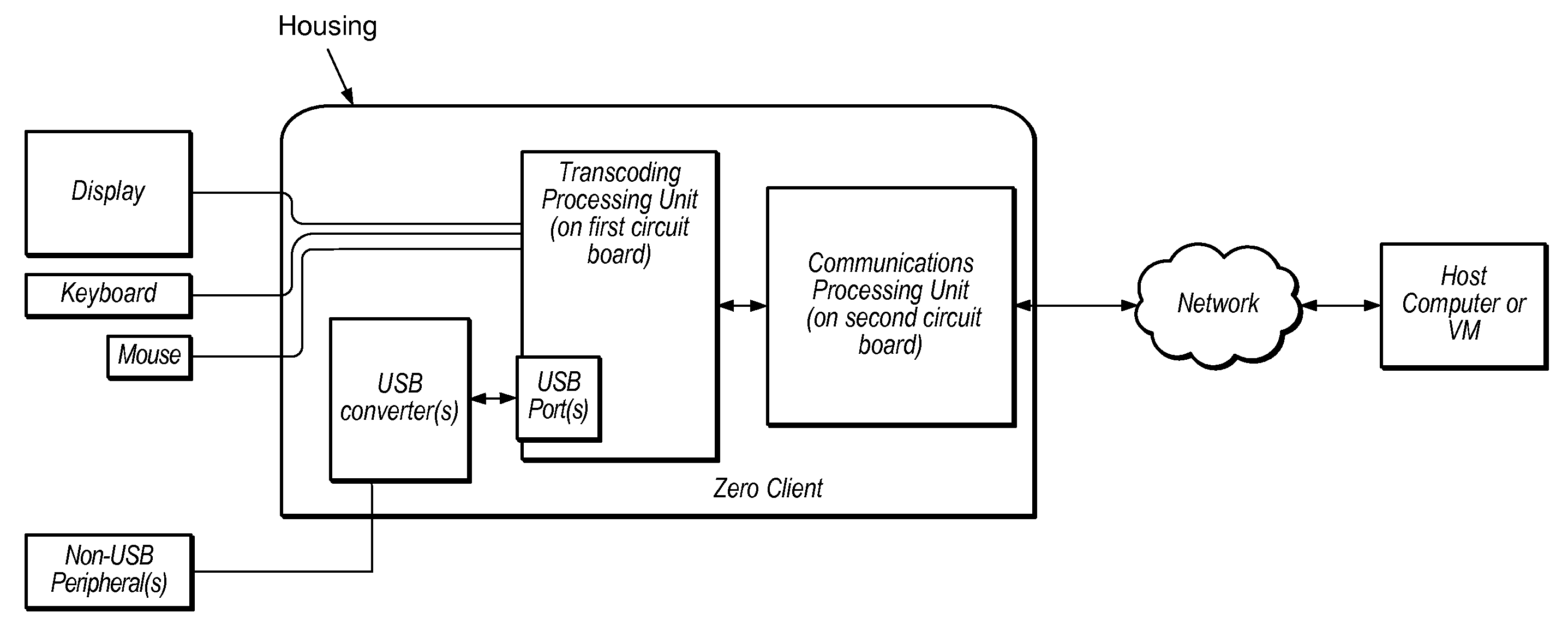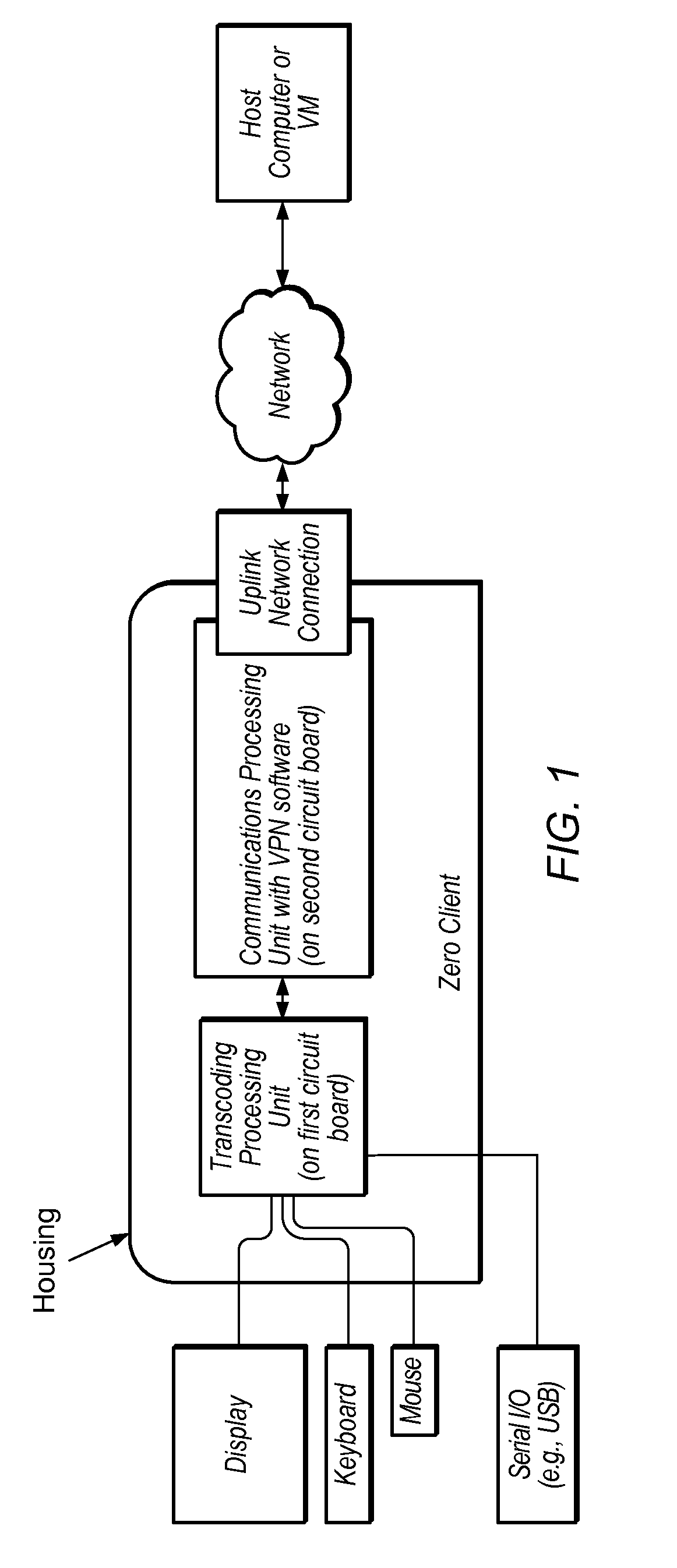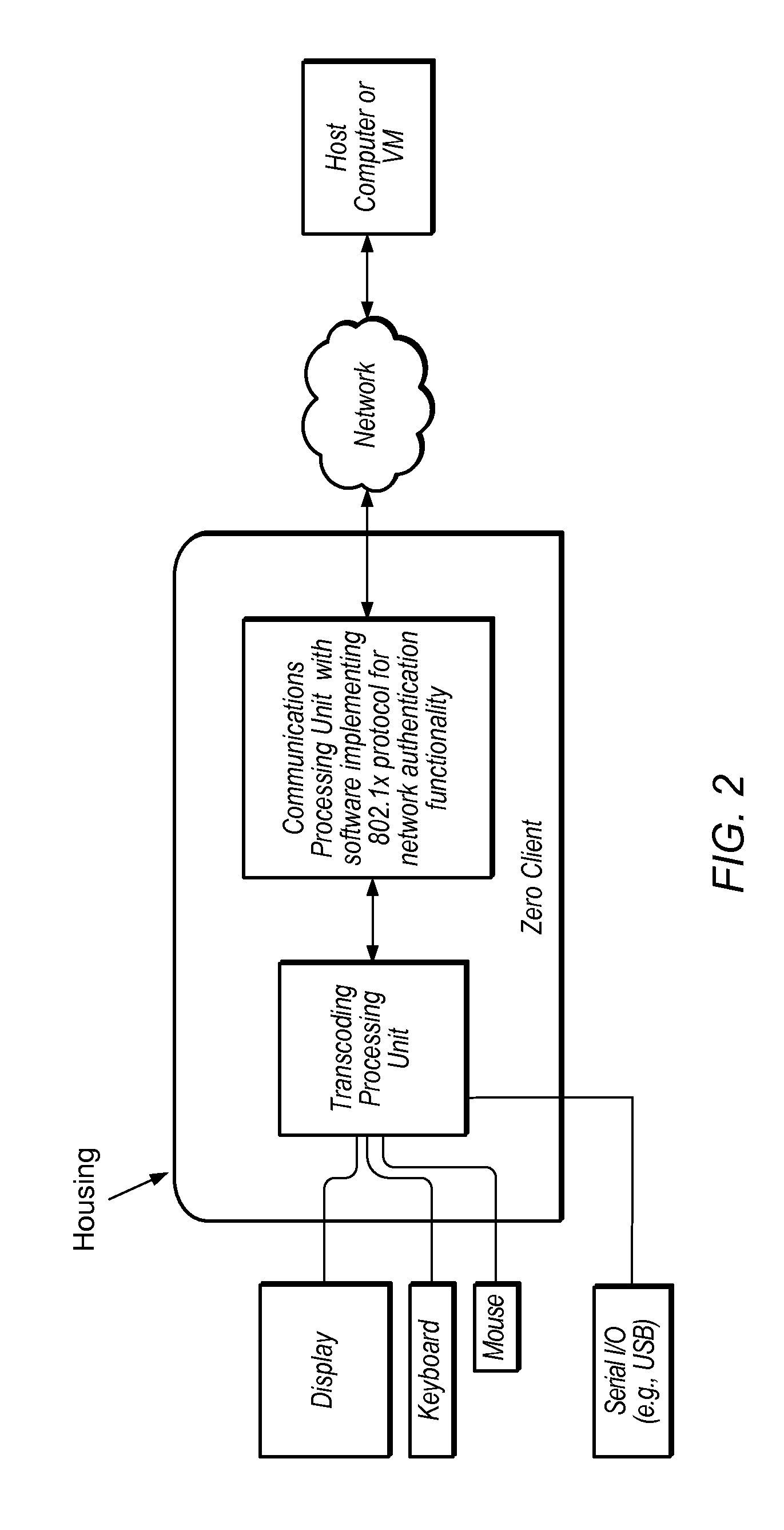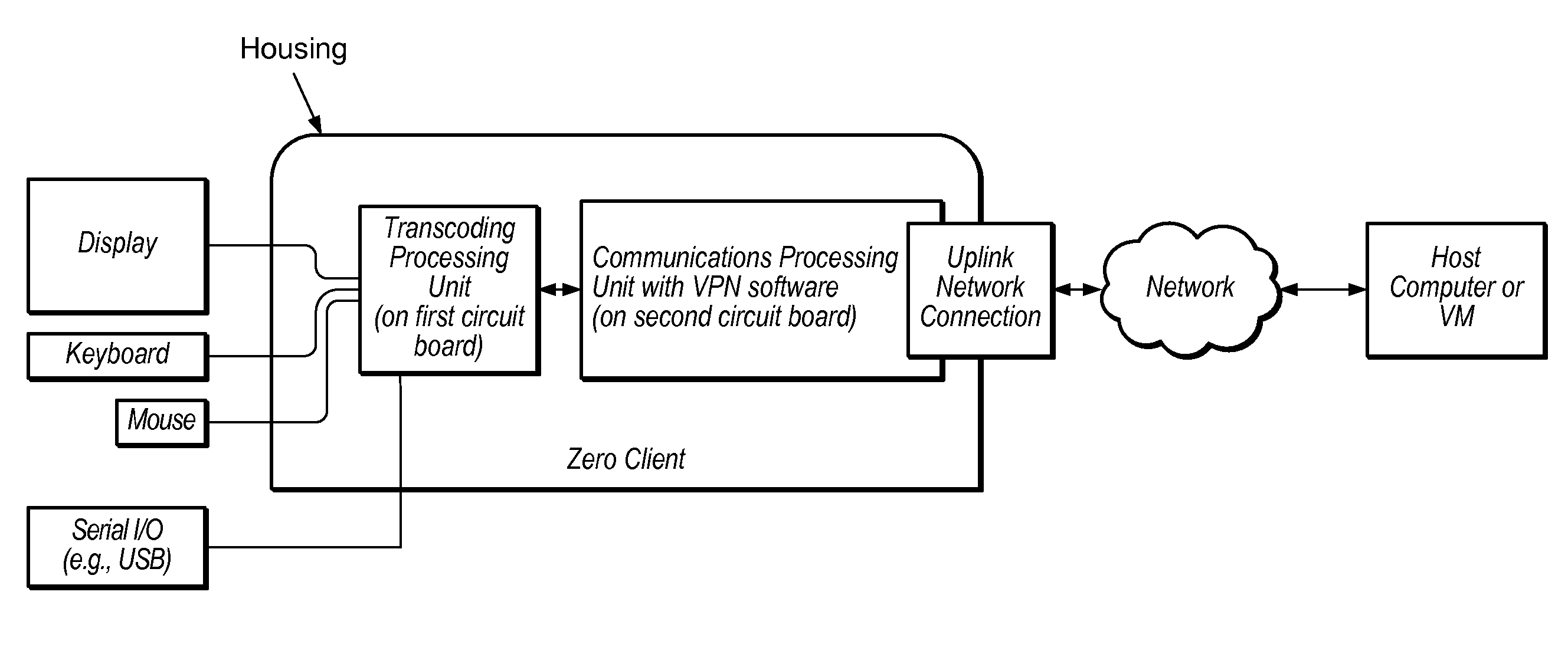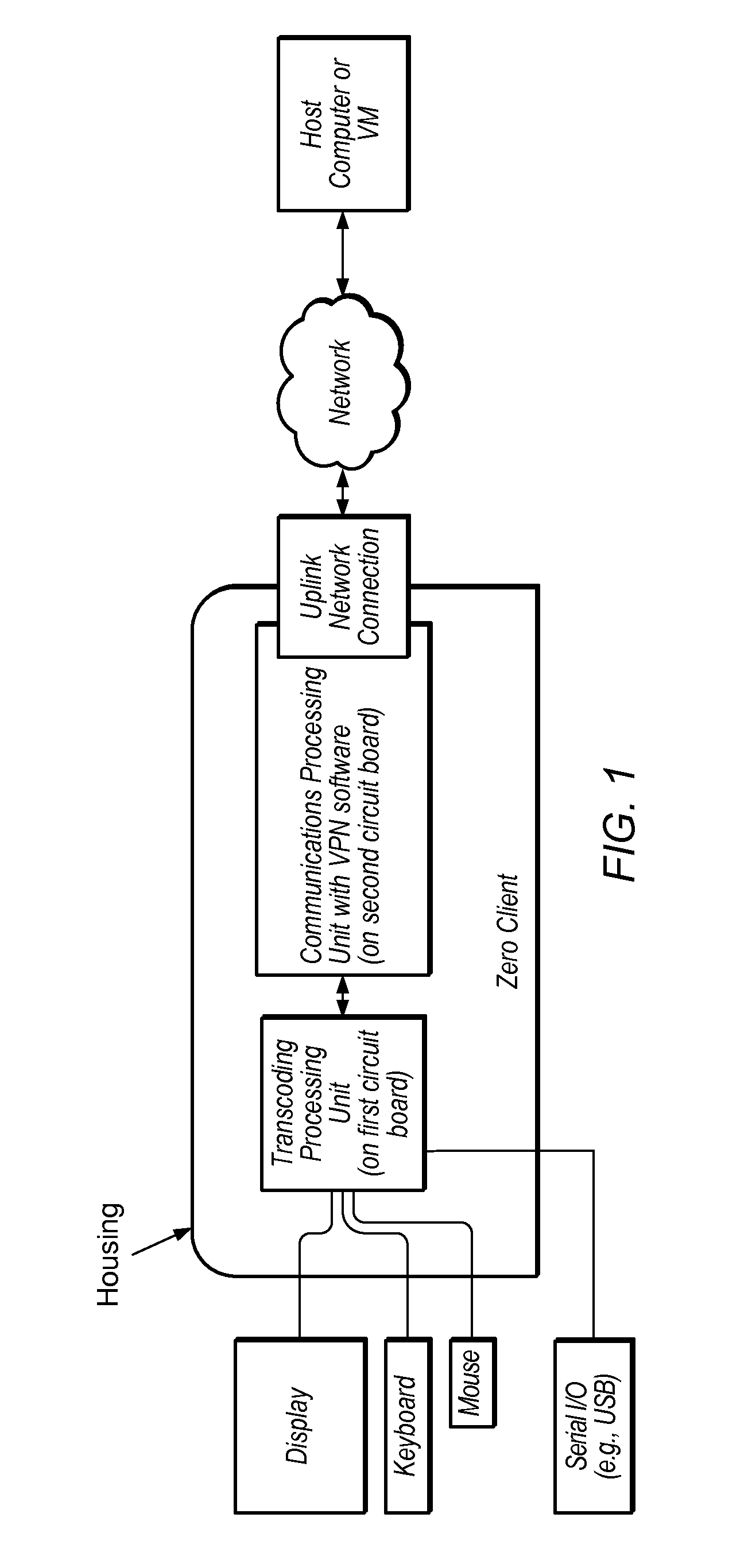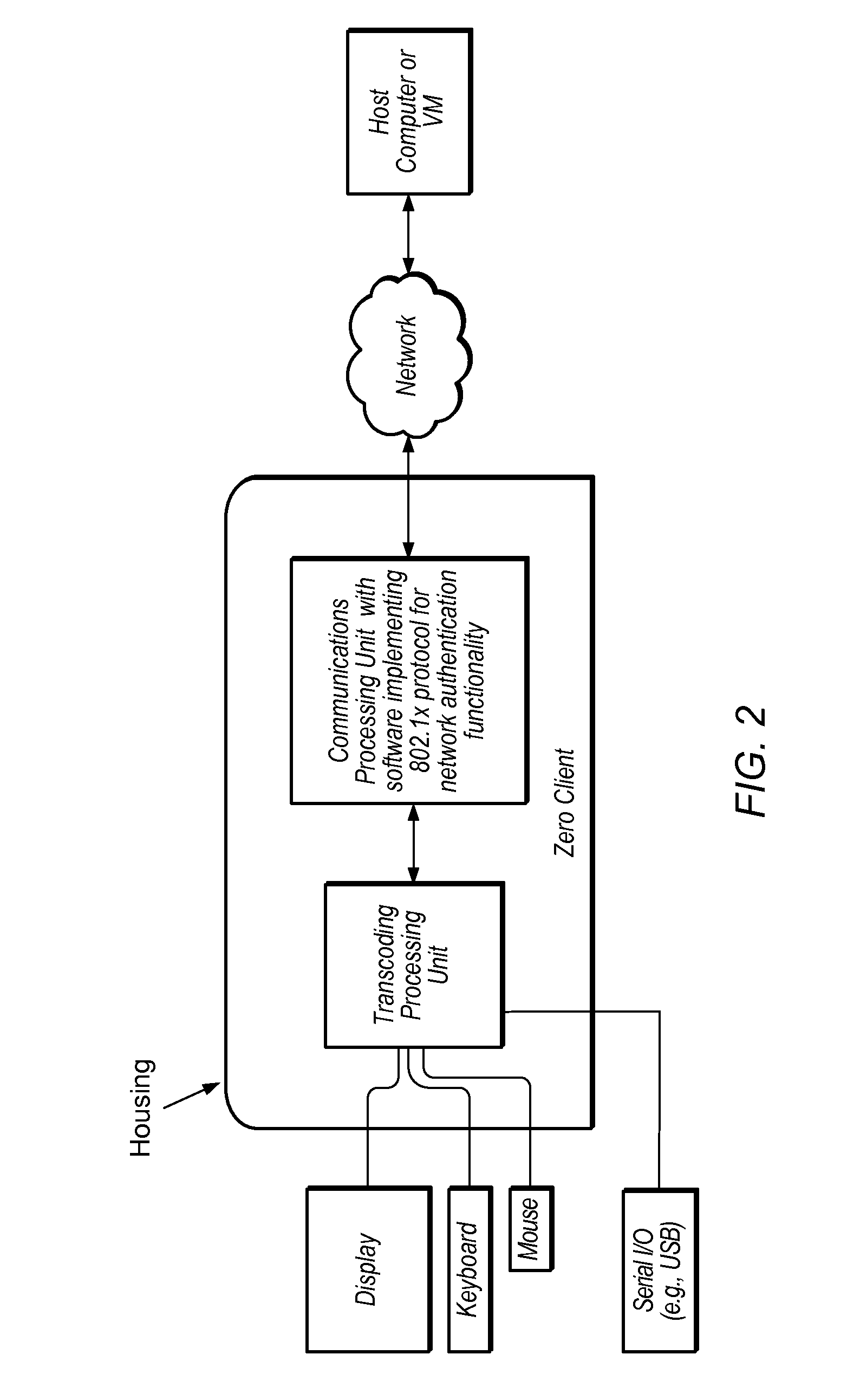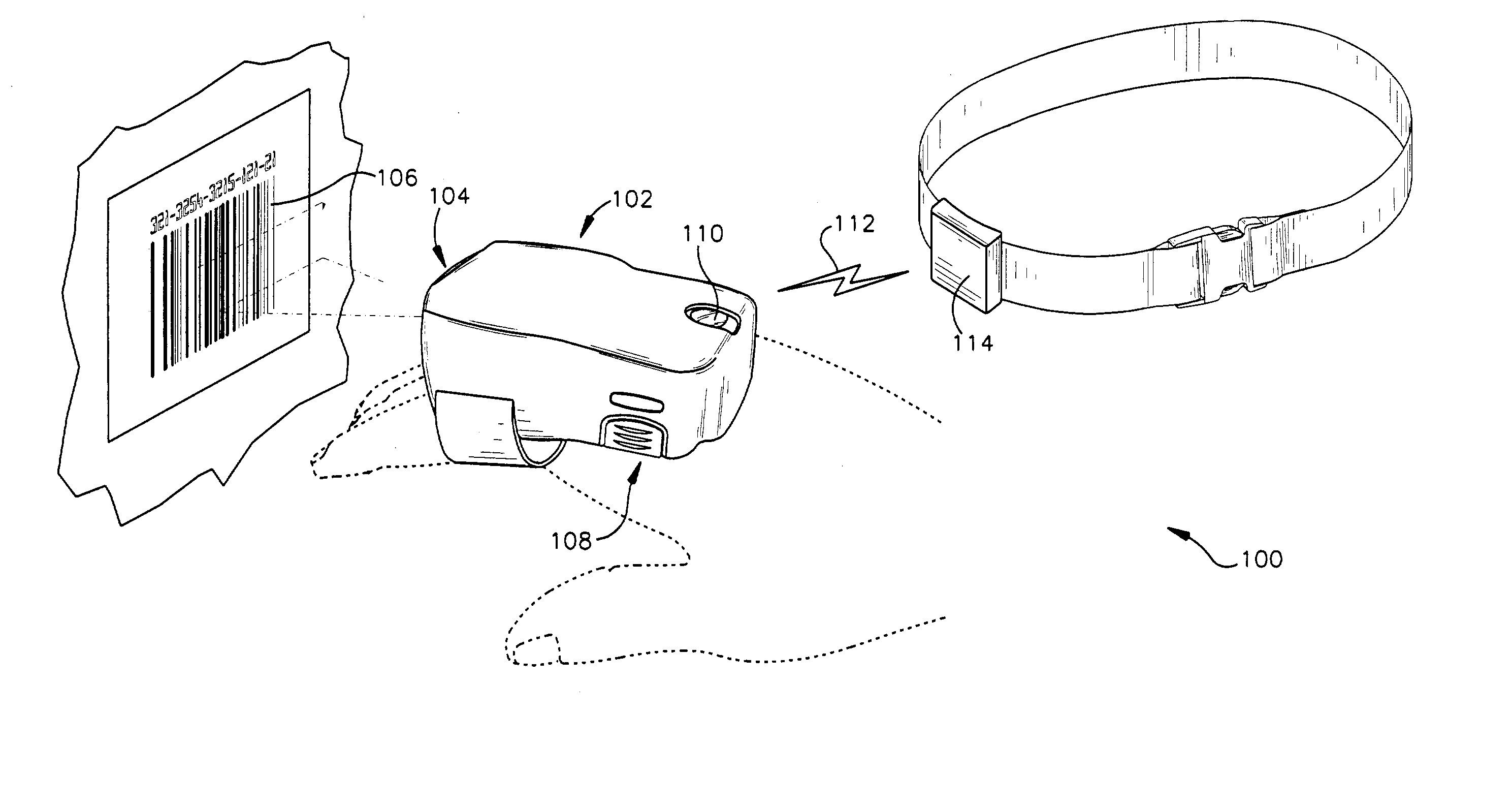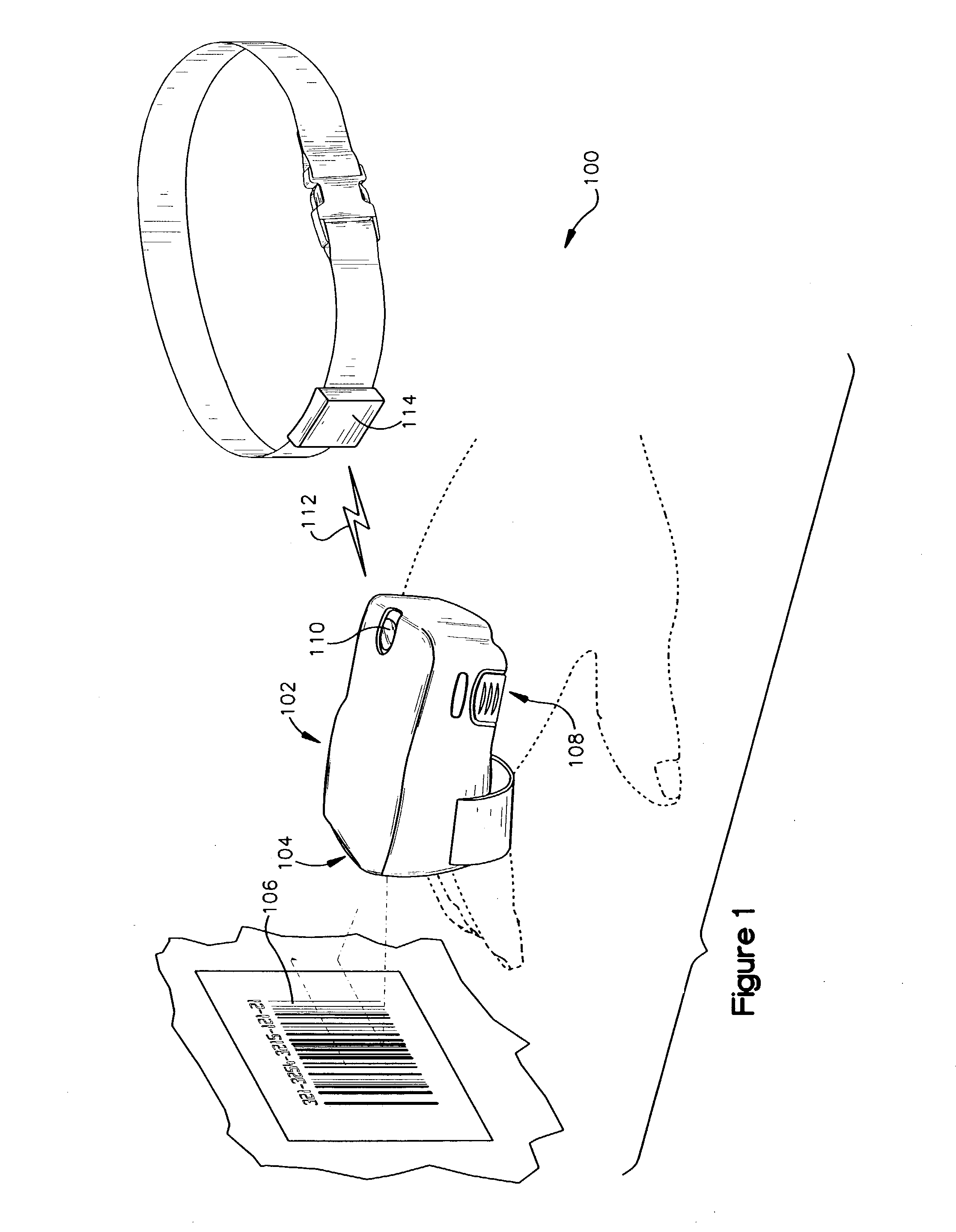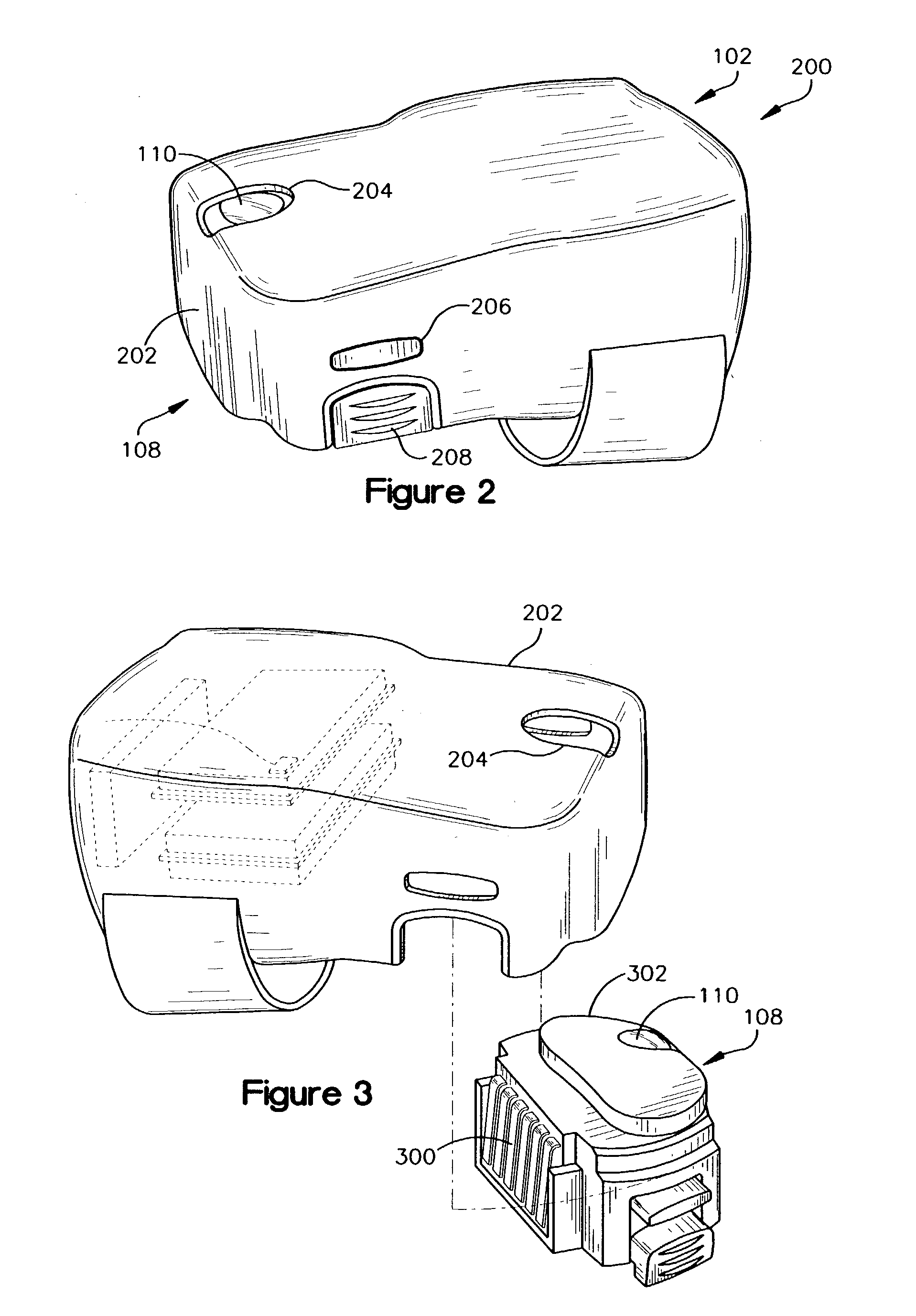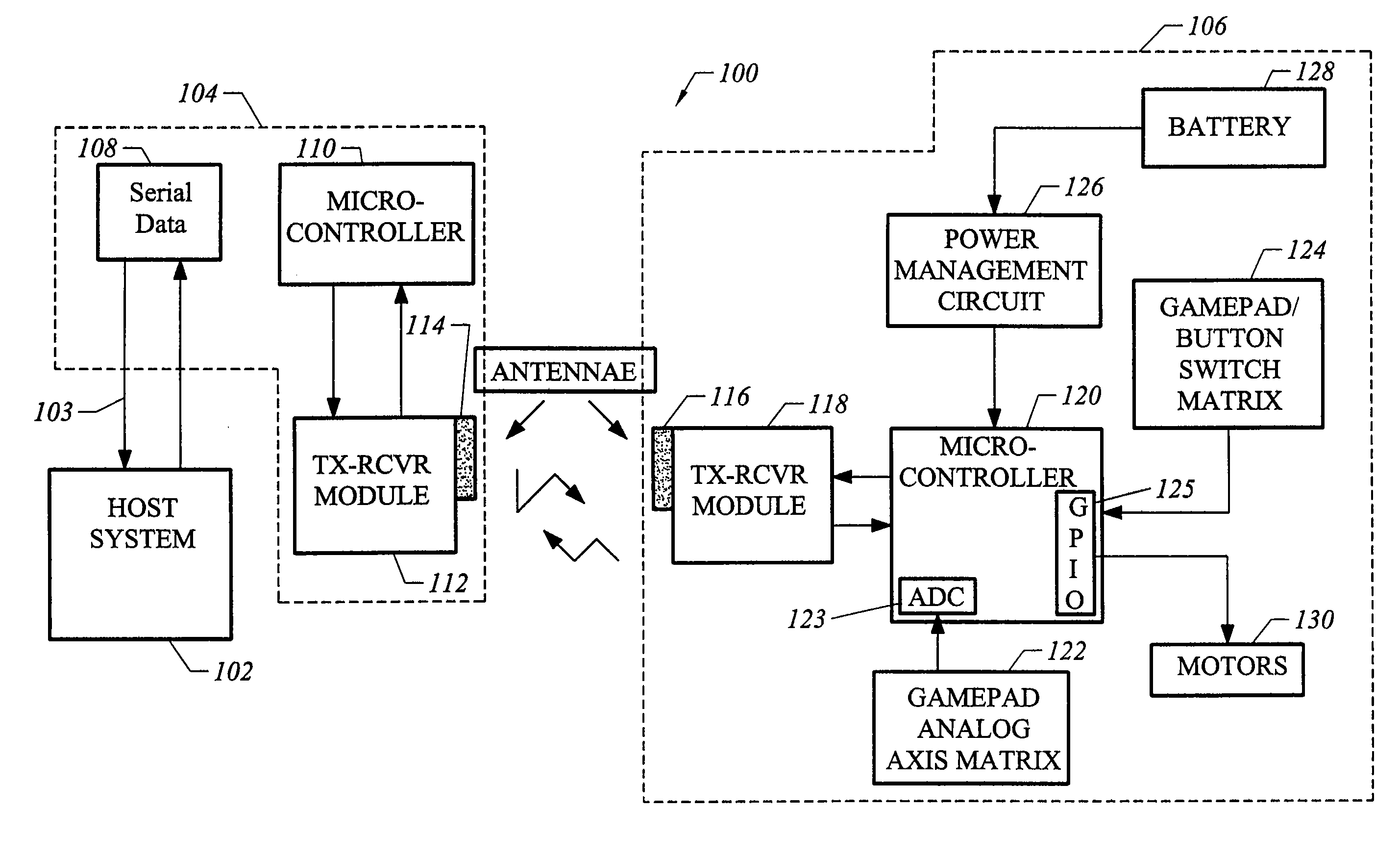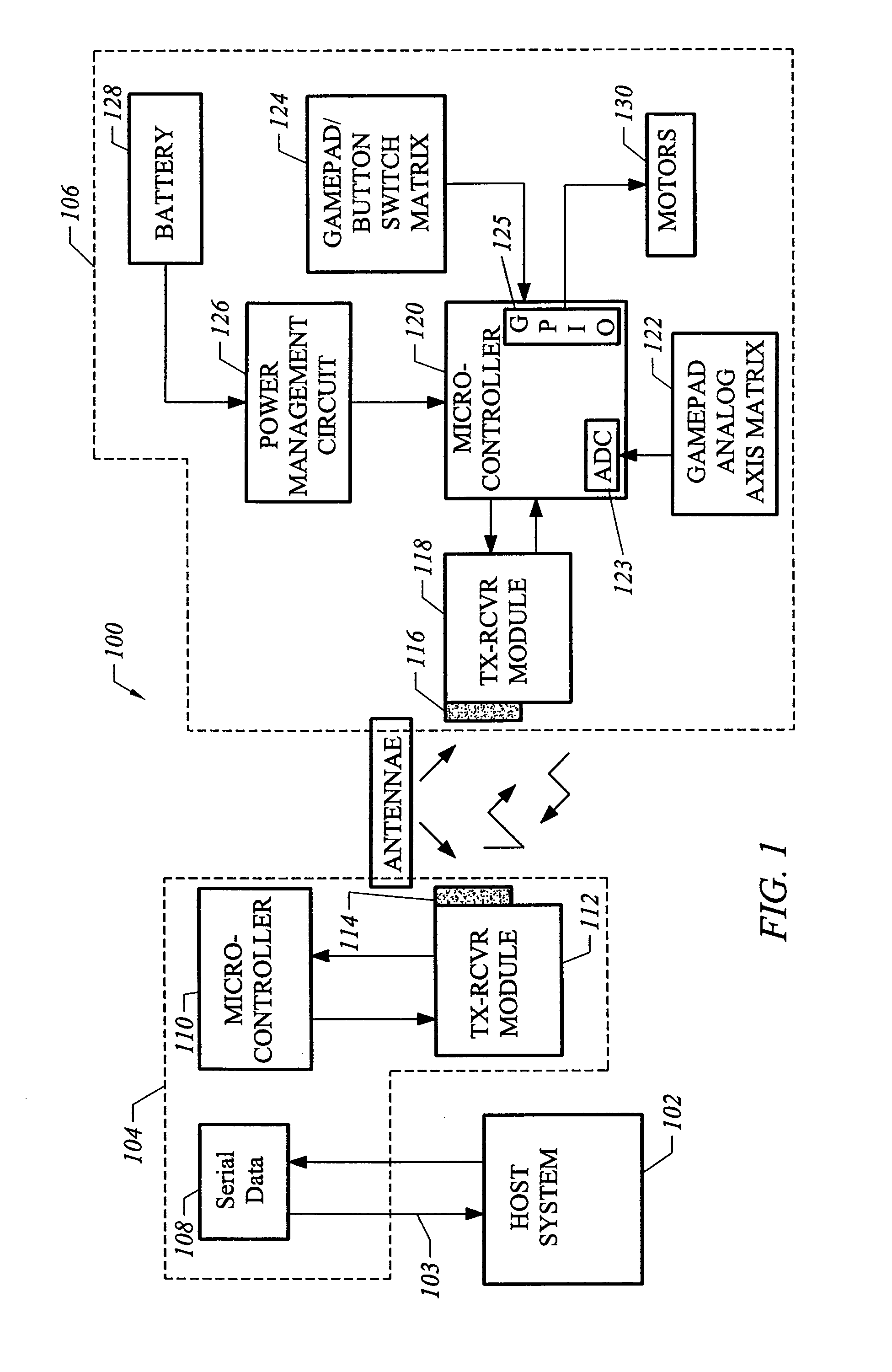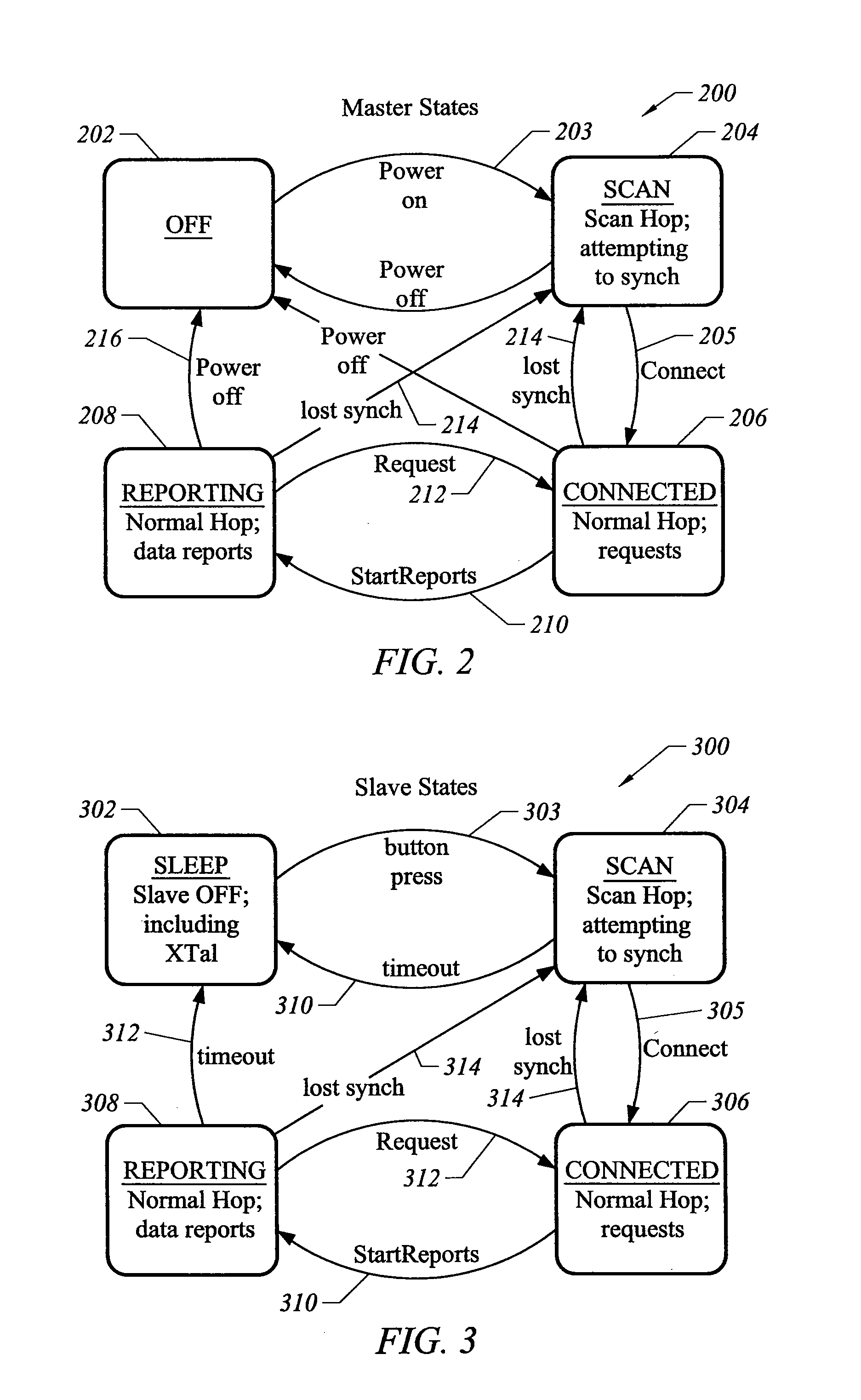Patents
Literature
350 results about "Human interface device" patented technology
Efficacy Topic
Property
Owner
Technical Advancement
Application Domain
Technology Topic
Technology Field Word
Patent Country/Region
Patent Type
Patent Status
Application Year
Inventor
A human interface device or HID is a type of computer device usually used by humans that takes input from humans and gives output to humans. The term "HID" most commonly refers to the USB-HID specification. The term was coined by Mike Van Flandern of Microsoft when he proposed that the USB committee create a Human Input Device class working group. The working group was renamed as the Human Interface Device class at the suggestion of Tom Schmidt of DEC because the proposed standard supported bi-directional communication.
Utility Computing System Having Co-located Computer Systems for Provision of Computing Resources
System and method for providing computer resources to users. The system includes a plurality of co-located computing systems, e.g., blade computers, comprising a hierarchy of computer resources based on performance, and located at a first location, each computing system including a processor, a memory medium coupled to the processor, and a plurality of human interface systems, each located at a second location remote from the first location, and each including an interface device, and one or more human interface devices coupled to the interface device, where each human interface system is coupled to the co-located computing systems over a network, such as a LAN or a WAN, via the interface device. Computer resources are provided to users of the plurality of remote human interface systems over the network in accordance with the computer resource performance needs of the users. Charges may be assessed for usage of the computer resources.
Owner:CLEARCUBE TECHNOLOGY INC
Active stylus for touch sensing applications
ActiveUS20140176495A1Quality improvementInput/output processes for data processingTouch SensesSensing applications
Embodiments relate generally to control devices, such as human interface devices, configured for use with a touch-screen containing device. More specifically, the present invention relates to methods and various apparatus that are used to actively control the interaction of a handheld device, such as a stylus pen, with a touch-screen containing device. Embodiments of the invention provide a universal handheld device that is able to provide input to any type of capacitive sensing touch-screen containing device, regardless of the manufacturer or, in some embodiments, without knowledge of the touch-screen containing device manufacturer's specific capacitive touch-sensing detection techniques.
Owner:LOGITECH EURO SA
Associating multiple display units in a grouped server environment
InactiveUS6915347B2Multiple digital computer combinationsTransmissionComputer moduleAncillary service
A method for grouping Human Interface Devices (HIDs) into a multi-head display is provided. The HIDs are identified as either “primary” or “secondaries”. A computational-service policy module is consulted when a new HID connects to the network. If the HID is identified as a secondary, the module consults all servers within a group to see if the primary presently has an active session connected to any of the servers. If the primary is being controlled by the same server to which the secondary is connected, the session connection information for the primary is augmented to indicate that the secondary is attached to the same session, and this information is disseminated to the interested software entities. The associated session may then provide multi-head outout to the secondary. If the primary is being controlled by another server in the group, the secondary re-attaches to the server that is hosting the primary.
Owner:ORACLE INT CORP
Manifold compatibility electronic omni axis human interface
InactiveUS20060252543A1Video gamesSpecial data processing applicationsHuman–machine interfaceEngineering
A manifold compatibility omni axis, electronic human interface device comprises a controller operatively coupled to an omni axis steering device having one or more attachments for motion detection, and a stationary fitness device operatively coupled to the controller. The controller comprises a re-centerer for re-centering one or more axis of movement, and a ratio processor for interpreting, transmitting, and adjusting one or more ratios for speed and other axis of movement. The controller is operatively coupled to a computer via a standard interface. The computer is configured to play a virtual reality program based at least in part on input from the controller. The controller is configured to mimic natural steering movements, making a user's physical movements with respect to the omni axis steering device and the stationary fitness device closely resemble movements in the virtual reality program.
Owner:GAMERUNNER +1
Power management method and related power management system
ActiveUS20110231682A1Volume/mass flow measurementPower supply for data processingComputerized systemState switching
A power management method is disclosed. The power management method comprises the step of a computer system checking existence of a manufacturing identifier (ID) of a human interface device (HID) when the computer system is operated in a first mode; the computer system continuously detecting whether the HID exist when the manufacturing ID exists; the computer system starting a timer when the computer system detects that the HID does not exist; the computer system entering a second mode when the timer expires; the HID determining whether the computer system is operated in the second mode, when plugged into the computer system; the HID performing state transition on the computer system when determining that the computer system is in the second mode; and the computer system entering the first mode when detecting the state transition.
Owner:I O INTERCONNECT LTD
Intelligent lighting management and building control system
ActiveUS20120086363A1Significant energy savingSampled-variable control systemsElectrical apparatusIntelligent lightingSystems management
A method of controlling and managing a plurality of system managers, a plurality of lights and devices, including human interfaces and building automation devices is disclosed. The method includes a system manager collecting data from the plurality of lights and devices. The system manager uses the collected data to determine an adjacency of lights and devices. The system manager dynamically places the plurality of lights and devices into zones and binding human interface devices to the zones, and a dynamically configures the devices to control the zones. The devices perform self-calibration and self-commissioning. The system manager and devices perform ongoing calibration and commissioning. The system manager and devices operate resiliently in case of failure of the system manager, other devices, or software or hardware failures in the devices. The system manager and the devices operate on the collected data to determine usage patterns, and to efficiently manage the plurality of lights and devices.
Owner:BUILDING ROBOTICS INC
Arrangement for and method of managing a soft keyboard on a mobile terminal connected with a handheld electro-optical reader via a bluetooth(r) paired connection
A wireless Bluetooth® paired connection is established between a Bluetooth® module in an electro-optical, handheld reader and a Bluetooth® module in a mobile terminal via a human interface device (HID) profile. Data capture from a target is initiated upon one type of manual actuation, e.g., a single pull, of a trigger on the reader. A soft keyboard is caused to appear on a display on the terminal, either immediately, or after a predetermined event, after the establishment of the Bluetooth® paired connection. The soft keyboard is caused to disappear upon manual actuation of the trigger with a different type of manual actuation, e.g., a double pull, of the trigger. Another double pull of the trigger will cause the soft keyboard to reappear.
Owner:SYMBOL TECH LLC
Dual mode human interface device
ActiveUS20060094461A1Key distribution for secure communicationUnauthorised/fraudulent call preventionWired communicationDual mode
A dual mode human interface device (HID) includes a wireless interface for wireless communication with a host computer; a wired interface for wired communication with the host computer; and a processor coupled with the wireless interface and the wired interface for transferring data between the HID and the host computer, wherein the processor initiates establishing wireless communication with the host computer, when the HID is connected to the host computer via the wired interface.
Owner:AVAGO TECH INT SALES PTE LTD
USB secure storage apparatus and method
A secure media device preferably includes a Universal Serial Bus (USB) Mass Storage Class (MSC) interface and a USB Human Interface Device (HID) interface. A storage media area is also preferably provided. The storage media is preferably divided into a secure and nonsecure area by arranging the storage media into multiple Logical Units (LUNs). The nonsecure area is preferably accessed in a conventional manner using a host USB MSC driver through the USB MSC interface on the storage device. A password dialog application can be located in the nonsecure area of the storage device. A preferred method of configuring a secured storage device includes dividing storage media of the storage device into a secure and a nonsecure area. A password for accessing the secure area is preferably set using a host USB HID driver and a USB HID interface on the storage device. A preferred method of accessing a secure area of a USB secure storage device includes verifying a password using a host USB HID driver and a USB HID interface of the storage device. Once the password is verified, the secure area is preferably unlocked. After the secure area is unlocked, the storage device preferably responds to a host USB MSC driver poll with an indication that the secure area is accessible. Until the secure area is unlocked, the storage device preferably responds to a host USB MSC driver poll with an indication that the secure area is inaccessible. The secure area of the USB secured storage device is preferably locked via firmware in response to a removal or other locking event. According to various aspects of this invention, therefore, there is preferably no need for a custom driver or software package to be installed on a host computer to facilitate access to the data contained in the secure media area.
Owner:MONTEREY RES LLC
Electrical touch sensor and human interface device using the same
ActiveUS20060007181A1Accurate detectionMechanically variable capacitor detailsCapacitor with electrode distance variationTouchpadSignal generator
An electrical touch sensor is provided. The electrical touch sensor includes: a touch detection part having at least one touch pad and generating a first signal having a same delay time regardless of whether the object is in contact with the touch pad and a second signal having a varied delay time according to whether the object is in contact with the touch pad; and a contact signal generator generating a contact signal in response to the delay time-difference between the first and second signals. Therefore, it is possible to increase operation reliability by precisely determining whether the object is in contact with the pad, when the object has charge accumulation characteristics more than a certain level, although its conductive is insufficient. In addition, the electrical touch sensor can determine whether the object is in contact with the pad using only one pad to reduce a layout area of a product.
Owner:III HLDG 2
Intelligent lighting management and building control system
ActiveUS8457793B2Significant energy savingSampled-variable control systemsElectrical apparatusIntelligent lightingSystems management
Owner:BUILDING ROBOTICS INC
Network Controlled Serial and Audio Switch
InactiveUS20120317260A1Improve the display effectStatic indicating devicesInformation formatComputer hardwareNetwork control
System and method for zero client communications. A zero client device includes a housing, and in the housing, a transcoding processing unit (transcoder) and a communications processing unit coupled to the transcoder. The transcoder is configured to receive input data from human interface device(s), encode the input data, and provide the encoded input data to the communications processing unit for transmission over a network to a server. The communications processing unit is configured to receive the encoded input data from the transcoder, transmit the encoded input data over the network to the server, receive output data from the server, and send the output data to the transcoder. The transcoder is further configured to receive the output data from the communications processing unit, decode the output data, and send the decoded output data to at least one of the human interface devices.
Owner:CLEARCUBE TECHNOLOGY INC
Method and system for discriminating stylus and touch interactions
ActiveUS20140168142A1Easy to controlInput/output processes for data processingTablet computerTouchscreen
Embodiments of the invention are directed to control devices, such as human interface devices, configured for use with a tablet computer. More specifically, the present invention relates to methods and system for discriminating between the interactions of a handheld device, touch of one or more of the user's finger(s) and interaction with appendages of the user on a touch-screen tablet computer. The methods described herein may include discriminating between the interaction of the handheld device, the user's finger(s) and an appendage of the user so that the collected information can be used to control some aspect of the hardware or software running on the touch-screen tablet computer.
Owner:LOGITECH EURO SA
Computer architecture having a stateless human interface device and methods of use
InactiveUS7346689B1Multiple digital computer combinationsDigital data authenticationGraphical user interfaceData provider
The invention provides a central office metaphor to computing, where features and functions are provided by a one or more servers and communicated to an appliance terminal through a network. Data providers are defined as “services” and are provided by one or more processing resources. The services communicate to display terminals through a network, such as Ethernet. The terminals are configured to display data, and to send keyboard, cursor, audio, and video data through the network to the processing server. Functionality is partitioned so that databases, server and graphical user interface functions are provided by the services, and human interface functionality is provided by the terminal. Communication with the terminals from various services is accomplished by converting disparate output to a common protocol. Appropriate drivers are provided for each service to allow protocol conversion. Multiple terminals are coupled to the network. Users can enable their unique session at any one of the terminals by inserting a “smart card” into a card reader. Removing the card disables the session. Re-inserting the card into the same or any other terminal re-enables the session.
Owner:ORACLE INT CORP
Systems and Methods for Providing Enhanced Motion Detection
ActiveUS20110199304A1Increase exerciseCathode-ray tube indicatorsInput/output processes for data processingTelecommunications linkDisplay device
Provided are systems and methods for providing enhanced motion detection. One system providing enhanced motion detection includes a smart display, an interface subsystem including a human interface device (HID), and a console having a processor configured to form communication links with the smart display and the interface subsystem and to provide motion detection feedback, using the smart display, to a user of the HID, where the HID is configured to sense motion of the HID and utilize a predictive model to characterize the motion of the HID. One interface subsystem includes a camera to sense motion of a user of the HID. One processor is configured to negotiate a reduced response latency with the smart display.
Owner:AVAGO TECH INT SALES PTE LTD
Power management for wireless peripheral device with force feedback
ActiveUS7333785B1Increase chanceReduce probabilityInput/output for user-computer interactionEnergy efficient ICTTransceiverPower usage
A wireless human interface device configured to establish a link with a host, wherein the device includes a transceiver for transmitting data to and receiving data from a host transceiver unit, wherein the host transceiver unit is connected with the host; a processor connected with the transceiver and configured to process data from the host and the human interface device, and a power circuit connected with the processor and configured to regulate the power usage of the human interface device, wherein the power circuit includes a battery, a computer readable media having instructions thereon, wherein the instructions include routines for monitoring the operational state of the human interface device, and routines for controlling the operation of the human interface device using the operational state of the human interface device to maximize the useful life of the batteries.
Owner:LOGITECH EURO SA
Two-factor USB authentication token
InactiveUS20090193511A1Augment delivered level of securityLow costDigital data processing detailsMultiple digital computer combinationsMass storageHuman–machine interface
The present patent application discloses a USB token that advantageously mimics a human interface device such as a keyboard in interacting with a host computer, thus removing the need for pre-installation of a dedicated device driver. This is accomplished by requiring the host computer to direct the input of the attached human interface devices of the keyboard type, including the USB token, exclusively to the program interacting with the USB token, by using cryptographic algorithms based on a shared secret, which require less data to be transferred than PKI-based algorithms, and by employing an efficient encoding scheme that minimizes the time needed to exchange information with the USB token, and minimizes the probability of generating ambiguity with input that might legitimately be generated by other attached human interface devices. By using only symmetric encryption and the low-speed USB protocol, a single low-performance processor may be used, which results in a more cost-effective solution than PKI USB tokens emulating the combination of smart cards and smart card readers or USB tokens presenting themselves to the host computer as mass storage devices. The overall security is increased by adding a second authentication factor consisting of a static password entered by the user, and by limiting the number of valid token response that can be generated or retrieved in a usage session.
Owner:ONESPAN NORTH AMERICA INC
Keyboards and methods thereof
ActiveUS20110216007A1Wide areaCost-effectiveInput/output for user-computer interactionRepeater circuitsTouchpadOperation mode
An integrated keyboard includes a touch pad and a dynamic keyboard embedded in an area of the touch pad. The touch pad, which may provide a transparent surface to allow the keyboard to be visible, provides motion tracking in areas around the periphery of the keyboard and may be configured into many operating modes. For example, virtual touchable buttons may be configured in the periphery of the keyboard. The keyboard may be provided as a dynamic keyboard with various layouts. A keyboard protector may be provided for each layout, with printed symbols for the keys under the layout. The integrated keyboard may also include a mini-projector to allow projection of a large image on a surface and a virtual Human Interface Device (HID) system to facilitate data input. With the input capabilities of the touch pad and the keyboard, the projector may be controlled in many additional ways not available in conventional projectors that are controlled by a few buttons. The virtual HID may provide motion tracking. The integrated keyboard may interface with a master / slave device, such as a slate type device. A customized case tightly integrates the integrated keyboard with the master / slave device.
Owner:ICE COMP
Mass re-formation of groups in a peer-to-peer network
ActiveUS20120290730A1Multiple digital computer combinationsTransmissionFrequency spectrumDevice form
A system in which wireless devices form a group in accordance with a peer-to-peer protocol and, at a later time, a device may send an invitation request to trigger the devices tore-form the peer-to-peer group. The invitation request may contain an identifier that is associated with a set of a plurality of devices. Those devices may be related such that they perform a function for which a user would want to use those devices together. The group of devices, for example, may be multimedia devices that receive and present streaming multimedia content or may be human interface devices that collectively act as an interface for a work station incorporating a wireless computing device operated by a user. Requesting that remote devices concurrently re-form a group reduces the time and spectral congestion associated with re-forming the group, particularly when the remote devices may periodically enter a low power state.
Owner:MICROSOFT TECH LICENSING LLC
UV germicidal system, method, and device thereof
ActiveUS20150090903A1Radiation therapyChemical conversion by chemical reactionUltravioletHuman interface device
A germicidal system for use in disinfecting a human interface device includes at least one human interface device. One or more ultra-violet (UV) light sources are used in proximity to the at least one human interface device for disinfecting a touch surface of the human interface device below a surgical grade sterilization. A memory for storing usage data of the at least one UV light source. At least one server is used for providing a central storage location for usage data supplied from the memory and a computer is used in communication with the at least one server for controlling the operational parameters of the at least one UV light source.
Owner:UV PARTNERS INC
Graphical interface for adjustment of text selections
InactiveUS20060005151A1Natural language data processingInput/output processes for data processingData miningHuman interface device
A computer implemented technique for manipulation of either endpoint of a selected text. One method includes selecting a subset of substantially sequential discrete tokens from a set of available discrete tokens on a human interface device by placing a interface adjustment element on either endpoint of the subset of substantially sequential discrete tokens to be selected. The placed interface adjustment element on either endpoint of the subset of substantially sequential discrete tokens is manipulated individually using a user interface device to perform the adjustment to either endpoint of the selection of the subset of substantially sequential discrete tokens.
Owner:ADOBE SYST INC
Method and system for discriminating stylus and touch interactions
ActiveUS20140168116A1Easy to controlInput/output processes for data processingTablet computerTouchscreen
Embodiments of the invention are directed to control devices, such as human interface devices, configured for use with a tablet computer. More specifically, the present invention relates to methods and system for discriminating between the interactions of a handheld device, touch of one or more of the user's finger(s) and interaction with appendages of the user on a touch-screen tablet computer. The methods described herein may include discriminating between the interaction of the handheld device, the user's finger(s) and an appendage of the user so that the collected information can be used to control some aspect of the hardware or software running on the touch-screen tablet computer.
Owner:LOGITECH EURO SA
Portable, Computer-Peripheral Apparatus Including a Universal Serial Bus (USB) Connector
ActiveUS20090187687A1Reduce riskDigital data authenticationIndividual entry/exit registersHuman interface deviceUSB
A portable computer-peripheral apparatus comprises a Universal Serial Bus (USB) connector. The apparatus is operable to communicate with a computer terminal (e.g. a ‘PC’). Following connection to the PC, the apparatus initialises (i.e. presents or enumerates itself) as a HID keyboard and then sends to the terminal a first predefined sequence of keycodes automatically without manual interaction; the keycodes complying with the human interface device (HID) keyboard standard protocol. Each keycode represents and simulates a keystroke, such as those performed when a user strikes a key on the PC keyboard. The keycode sequence automates the direct access to content, and / or the initiation of a task or other process.
Owner:ARKEYTYP IP LTD
Range Calibration of a Binocular Optical Augmented Reality System
The disclosure includes a system and method for calibrating a binocular optical see-through augmented reality display. A calibration application renders one or more images of a virtual object on the one or more displays of the human interface device, and receives a user input to adjust a position of the one or more images on the one or more displays. In response to the input, the calibration application identifies a first and second boundary of a target range surrounding a real-world object at a first and second depth, respectively. The calibration application determines a first and second disparity corresponding to the first and second boundary and may record the disparities in relation to the depth of the real-world object.
Owner:RICOH KK
Total power aging test circuit for current transformer or frequency transformer
ActiveCN103399228ASimple structureReduce maintenance costsElectrical testingCapacitanceFrequency changer
The embodiment of the invention discloses a total power aging test circuit for a current transformer or a frequency transformer. The total power aging test circuit comprises a filter reactor, a boosting transformer and a direct-current power supply, wherein the direct-current power supply is communicated with two ends of a bus capacitor; the input end of the boosting transformer is communicated with the output end of a three-phase inverter through the filter reactor, and the output end of the boosting transformer is communicated with the input end of the three-phase inverter. The total power aging test circuit also comprises an aging test module arranged in a controller and an aging test triggering unit arranged on human interface device. The aging test triggering unit is used for controlling the running state of the aging test module, and the aging test module is used for controlling the current transformer or the frequency transformer for an aging test. The total power aging test circuit can effectively reduce the energy consumption in the aging test process, simplifies the structure of a test system, and reduces the maintenance cost of the system.
Owner:SUZHOU INOVANCE TECH CO LTD +1
Valve accessory for aiding speech during non-invasive respiratory therapy
A valve arrangement interposed between a compressor and a user, in a respiratory pressure support system. A connecting element connects a breathing tube to a human interface apparatus. A shutter is formed within the connecting element. The shutter is placed in a first position allowing pressurized air to flow from the compressor to the user. This shutter is placed in a second position preventing pressurized air from flowing from the compressor to the user.
Owner:S L P
Zero client device with integrated serial or parallel ports
System and method for zero client communications. A zero client device includes a housing, and in the housing, a transcoding processing unit (transcoder) and a communications processing unit coupled to the transcoder. The transcoder is configured to receive input data from human interface device(s), encode the input data, and provide the encoded input data to the communications processing unit for transmission over a network to a server. The communications processing unit is configured to receive the encoded input data from the transcoder, transmit the encoded input data over the network to the server, receive output data from the server, and send the output data to the transcoder. The transcoder is further configured to receive the output data from the communications processing unit, decode the output data, and send the decoded output data to at least one of the human interface devices.
Owner:CLEARCUBE TECHNOLOGY INC
Zero Client Device with Integrated Secure KVM Switching Capability
InactiveUS20120317181A1Improve the display effectStatic indicating devicesInformation formatTranscodingProcessing element
System and method for zero client communications. A zero client device includes a housing, and in the housing, a transcoding processing unit (transcoder) and a communications processing unit coupled to the transcoder. The transcoder is configured to receive input data from human interface device(s), encode the input data, and provide the encoded input data to the communications processing unit for transmission over a network to a server. The communications processing unit is configured to receive the encoded input data from the transcoder, transmit the encoded input data over the network to the server, receive output data from the server, and send the output data to the transcoder. The transcoder is further configured to receive the output data from the communications processing unit, decode the output data, and send the decoded output data to at least one of the human interface devices.
Owner:CLEARCUBE TECHNOLOGY INC
Battery pack with integrated human interface devices
ActiveUS7140546B1Reduce overall form factorSensing by electromagnetic radiationElectricityState dependent
A power pack with human interface devices that includes a power pack housing, which is detachably interfaced to a portable device. The power pack includes a power source internal to the housing for providing power, a light source internal to the housing for producing a light signal associated with a status, which light signal is viewable external to the housing, and an audio source internal to the housing for producing an audio signal associated with the status. The power pack interfaces electrically to the portable device to provide power thereto, and receive therefrom control signals associated with the status, which control signals activate at least one of the light source and audio source according to the status.
Owner:SYMBOL TECH LLC
High-frequency wireless peripheral device with auto-connection and auto-synchronization
A system and method for the automatic establishment of a connection between a human interface device and a host transceiver unit, wherein the system includes a host transceiver unit configured to be connected with a host via a bus, and configured to wirelessly exchange data with a human interface device; a human interface device configured to wirelessly exchange data with a host transceiver; and a computer readable media having instructions thereon, wherein said instruction include routines for synchronizing the host transceiver unit and the human interface device for wirelessly exchanging data between the host transceiver unit and the human interface device at a spread spectrum modulation pattern which is determined by the host transceiver after the host transceiver unit and the human interface device have acknowledged each other's presence.
Owner:LOGITECH EURO SA
Features
- R&D
- Intellectual Property
- Life Sciences
- Materials
- Tech Scout
Why Patsnap Eureka
- Unparalleled Data Quality
- Higher Quality Content
- 60% Fewer Hallucinations
Social media
Patsnap Eureka Blog
Learn More Browse by: Latest US Patents, China's latest patents, Technical Efficacy Thesaurus, Application Domain, Technology Topic, Popular Technical Reports.
© 2025 PatSnap. All rights reserved.Legal|Privacy policy|Modern Slavery Act Transparency Statement|Sitemap|About US| Contact US: help@patsnap.com
